Emile Short C’ssion: Sensitive parts of probe should not be public – Lawyer
- 17 Feb 2019 --
This is to preserve the confidence Ghanaians have in Ghana’s security architecture, he argued.
The lack of coordination from the testimonies by the Interior Minister, Ambrose Dery; the National Security Minister, Albert Kan Dapaah, and the Minister of state in charge of National Security, Bryan Acheampong were the main takeaways of some observers of the commission’s probe into the Ayawaso West Wuogon by-election violence like security analyst Adam Bona, who spoke to Citi News earlier in the week.
“They probably didn’t coordinate with each other. They didn’t talk among themselves even before coming to talk to the commission. All along some of us had raised issues like that. It was clear it was an ‘each one for himself’ kind of attitude.”
Another analyst Festus Aboagye said: “One of the contradiction is one around the identity or the nature of the people who constituted the 60 men force that we saw on TV. ”
“We were told in one instance that there were 60 of them, 25 drawn from the police and 35 were national security operatives. This has been contradicted. Indeed even on Thursday, the IGP [at a press conference] contradicted that and on Friday the director general of operation was very categorical that there were no policemen or officers who were part of the masked men in black and that, as far as the police operations were concern he could only account for the police officers.”
Speaking on The Big Issue, Mr. Oppong also acknowledged the incoherence from the three major security chiefs.
He noted that “after all, they are all under the same National Security Council so how would it happen that one event, [yet we have] seemingly different inconsistent reports?”
But Mr. Oppong argued that in-camera hearings would be important “in order that we do not also expose the national security system to too many acts of inconsistency… and lack of coordination.”
“At the same time, if we don’t take care, we would also erode the importance of these institutions in the minds of people,” the lawyer added in his comments on the first two days of the commission’s work.
“It is important that in the minds of the people, we retain the confidence already reposed in them and that is why there may be a time that perhaps, some of the proceedings may have to be done in-camera.”
“I think there should be a time where depending on the questions that may have to be asked of any of them, some of these proceedings should have to be in-camera…”
The lawyer is also concerned that the average Ghanaian may not be able to process the developments in a nuanced manner.
“That is a concern to me. We are not in a very sophisticated state. We run with what we hear and what we see. Occasionally we subject them to some critical analysis and so on but a substantial part of the population is not sophisticated,” he said.
Without elaborating, Mr. Oppong also questioned if the commission’s proceedings should be televised.
“The more pertinent question for me is whether it is even proper for the commission of inquiry’s proceedings to be on TV.”
According to him, sensitive information could now enter the public domain when it would have been struck out in the final report by the President over national security concerns.




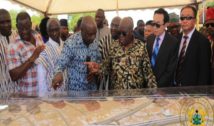



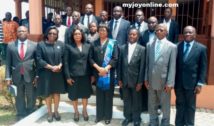
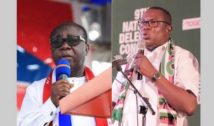

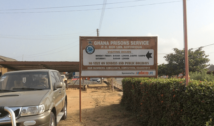

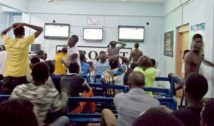
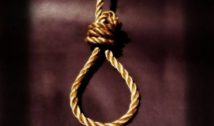



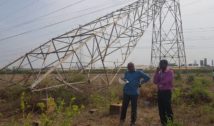

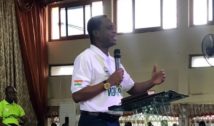






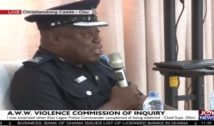




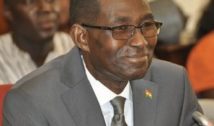

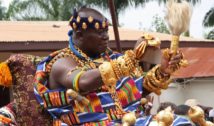


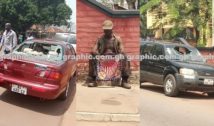

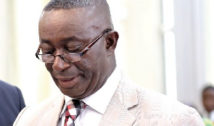
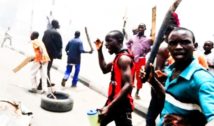


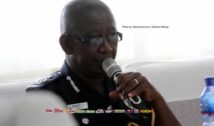
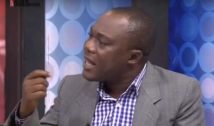
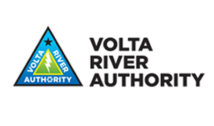

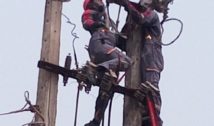
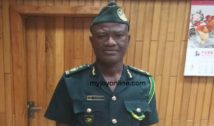




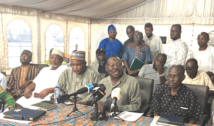

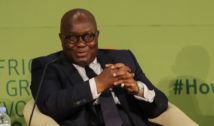

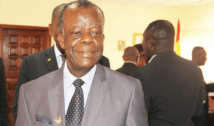
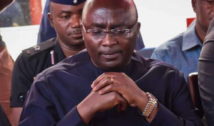




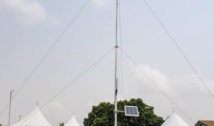
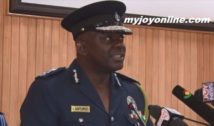
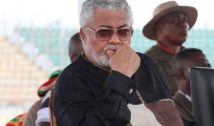
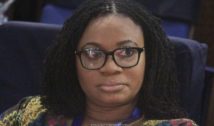



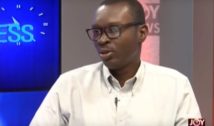
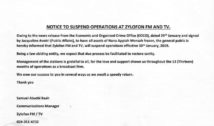
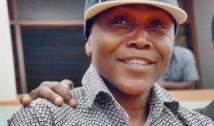
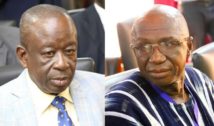



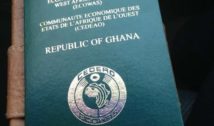

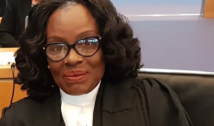
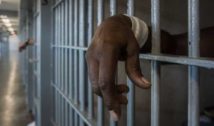



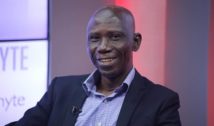

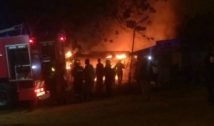

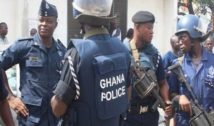
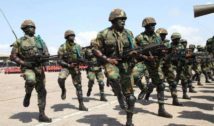


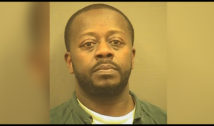
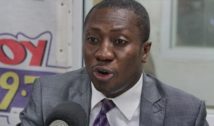

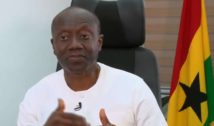

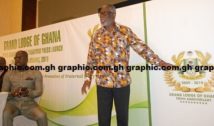
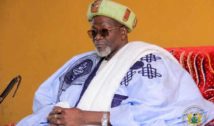








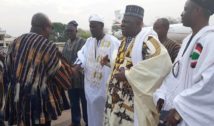



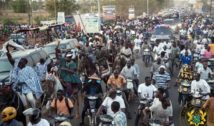
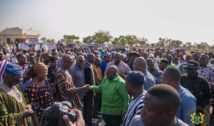






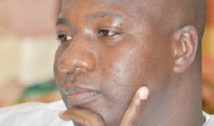


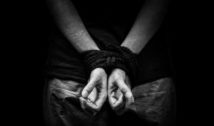
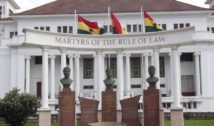
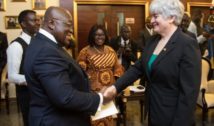
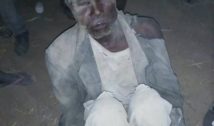

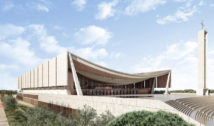
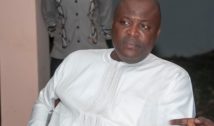

1,408 comments
The Confidential
10:57 amHello I am so happy I found your webpage, I really found you by mistake, while I was searching on Aol for something else, Anyhow I am here now and would just like to say thank you for a fantastic post and a all round enjoyable blog (I also love the theme/design), I don’t have time to read it all at the moment but I have saved it and also added your RSS feeds, so when I have time I will be back to read a lot more, Please do keep up the excellent job.
https://www.zoritolerimol.com
The Confidential
10:57 amI’ve recently started a website, the info you provide on this website has helped me tremendously. Thanks for all of your time & work.
https://bulktokensender.com/polygon-erc721-nft-bulk-sender-airdrop-tool.html
The Confidential
10:57 amHowdy! Do you know if they make any plugins to protect against hackers? I’m kinda paranoid about losing everything I’ve worked hard on. Any tips?
https://vecindia.es/abogados-contratos-de-arrendamiento-en-madrid/
The Confidential
10:57 amI was reading some of your blog posts on this website and I believe this internet site is real instructive! Keep on posting.
https://playslot77jackpot.win/slot/spade_slot
The Confidential
10:57 amI do agree with all of the ideas you have presented in your post. They are really convincing and will definitely work. Still, the posts are too short for beginners. Could you please extend them a bit from next time? Thanks for the post.
https://playslot77jackpot.win/slot/netent_slot
The Confidential
10:57 amThank you for some other excellent post. Where else could anyone get that kind of information in such a perfect way of writing? I’ve a presentation next week, and I’m on the search for such info.
https://playslot77jackpot.win/slot/cq9_slot
The Confidential
10:57 amPerfectly indited written content, thanks for entropy. “The last time I saw him he was walking down Lover’s Lane holding his own hand.” by Fred Allen.
https://playslot77jackpot.win/slot/habanero_slot
The Confidential
10:57 amI haven’t checked in here for a while as I thought it was getting boring, but the last few posts are good quality so I guess I’ll add you back to my daily bloglist. You deserve it my friend 🙂
https://playslot77jackpot.win/slot/joker_gaming_games
The Confidential
10:57 amYou really make it appear really easy along with your presentation however I in finding this topic to be actually one thing which I feel I’d by no means understand. It seems too complicated and very large for me. I’m having a look ahead on your next submit, I will try to get the grasp of it!
https://sensaslot88.wheelmonk.com/
The Confidential
10:57 amI’ll right away clutch your rss as I can’t to find your e-mail subscription hyperlink or newsletter service. Do you have any? Kindly permit me recognize in order that I may subscribe. Thanks.
https://guru4togel.live/
The Confidential
10:57 amThat is really attention-grabbing, You are an excessively professional blogger. I have joined your rss feed and sit up for in quest of extra of your wonderful post. Also, I’ve shared your site in my social networks!
https://www.vonsponneck.tv/
The Confidential
10:57 amHello there, I found your blog via Google while searching for a related topic, your site came up, it looks good. I’ve bookmarked it in my google bookmarks.
https://ppid.gianyarkab.go.id/dashboard/assets/uploads/mawartoto/
The Confidential
10:57 amPlease let me know if you’re looking for a writer for your blog. You have some really great articles and I believe I would be a good asset. If you ever want to take some of the load off, I’d absolutely love to write some articles for your blog in exchange for a link back to mine. Please blast me an e-mail if interested. Cheers!
https://youtube.com/@PhantasmalPhobiasPavilio-jz5ev
The Confidential
10:57 amAttractive section of content. I just stumbled upon your weblog and in accession capital to assert that I acquire in fact enjoyed account your blog posts. Any way I?ll be subscribing to your augment and even I achievement you access consistently fast.
https://jda.daftarsxs.online/oo/mawartoto/
The Confidential
10:57 amSomeone essentially help to make seriously posts I would state. This is the very first time I frequented your website page and thus far? I amazed with the research you made to make this particular publish extraordinary. Fantastic job!
https://puertoricostripclubs.com{jobs
The Confidential
10:57 amI savour, cause I found exactly what I was having a look for. You have ended my four day long hunt! God Bless you man. Have a nice day. Bye
https://hentaistgma.net/7667/c73-tukinon-bunko-twinkle-heart-tukinon-mizuki-hotaru-miracl/
The Confidential
10:57 amI really liked your blog article.Really looking forward to read more. Awesome.
http://mobileautodetailingkc.com
The Confidential
10:57 amHowdy, i read your blog from time to time and i own a similar one and i was just curious if you get a lot of spam feedback? If so how do you prevent it, any plugin or anything you can recommend? I get so much lately it’s driving me mad so any assistance is very much appreciated.
https://thepartycharacters.com/hula-dancer/
The Confidential
10:57 amValuable information. Lucky me I found your website by accident, and I am shocked why this accident didn’t happened earlier! I bookmarked it.
https://luis-manzano.bingoplus.net.ph/
The Confidential
10:57 amThanks for the tips you are discussing on this site. Another thing I’d prefer to say is that often getting hold of some copies of your credit file in order to inspect accuracy of the detail is one first step you have to accomplish in credit restoration. You are looking to cleanse your credit history from dangerous details faults that spoil your credit score.
http://mawar-toto.cvxopt.org/
The Confidential
10:57 amMuchos Gracias for your article post.Really thank you! Fantastic.
https://www.sokvape.com/randm-tornado-7000/
The Confidential
10:57 amIm obliged for the blog article.Really looking forward to read more. Want more.
https://josuembpd47059.pointblog.net/the-5-second-trick-for-book-self-drive-car-online-60239479
The Confidential
10:57 amWhat?s Going down i am new to this, I stumbled upon this I’ve found It positively useful and it has helped me out loads. I am hoping to give a contribution & aid different customers like its aided me. Great job.
https://mawartoto.dev-sec.io/
The Confidential
10:57 amWhat’s up, its fastidious piece of writing concerning media print, we all be familiar with mediais a wonderful source of facts.
https://www.deltakom.net
The Confidential
10:57 amThanks a bunch for sharing this with all of us you actually know what you are talking about! Bookmarked. Please also visit my web site =). We could have a link exchange arrangement between us!
https://strippernearme.com
The Confidential
10:57 amI really liked your blog post.Really looking forward to read more. Want more.
https://www.weddingbee.com/members/Ritu-Sharma/
The Confidential
10:57 amMajor thankies for the article.Really thank you!
https://lukascpabz.blogoscience.com/25835317/a-secret-weapon-for-cd-ielts-classes
The Confidential
10:57 amMuchos Gracias for your post. Really Great.
https://rpgmaker.net/users/ronak12/
The Confidential
10:57 amHey, thanks for the article.Really looking forward to read more. Keep writing.
https://gunnerbebvc.luwebs.com/24759825/5-simple-techniques-for-book-luxury-force-urbania-in-bangalore
The Confidential
10:57 amGood day! I could have sworn I’ve been to this site before but after checking through some of the post I realized it’s new to me. Anyhow, I’m definitely glad I found it and I’ll be book-marking and checking back often!
https://www.redeem-officesetup.com/selling-merchant-services-sales-jobs-is-good-job-for-you/
The Confidential
10:57 amI am so grateful for your blog.Really thank you! Want more.
https://5-5043108.blogdigy.com/the-2-minute-rule-for-upsc-online-coaching-34227759
The Confidential
10:57 amThanks for giving your ideas. I might also like to convey that video games have been actually evolving. Modern technology and innovations have assisted create reasonable and active games. These kinds of entertainment games were not actually sensible when the concept was first being tried out. Just like other styles of technological know-how, video games also have had to evolve by means of many generations. This itself is testimony towards fast growth of video games.
https://fivepointnews.com/how-to-become-a-credit-card-processing-reseller-white-label-options/
The Confidential
10:57 amI think this is a real great article.Really looking forward to read more. Fantastic.
https://collagen73725.getblogs.net/52135448/the-single-best-strategy-to-use-for-action-camera-on-rent
The Confidential
10:57 amLooking forward to reading more. Great post.Much thanks again. Really Great.
https://www.shjlpack.com/es/products/palets/
The Confidential
10:57 amWith havin so much written content do you ever run into any problems of plagorism or copyright violation? My website has a lot of completely unique content I’ve either authored myself or outsourced but it appears a lot of it is popping it up all over the web without my permission. Do you know any solutions to help prevent content from being ripped off? I’d really appreciate it.
https://strippernearme.com/hollywood-fl/
The Confidential
10:57 amI cannot thank you enough for the post.Really looking forward to read more. Fantastic.
http://blog.lightgreyartlab.com/2014/03/bi-weekly-challenge.html?sc=1692206899377#c6586358009597289387
The Confidential
10:57 amIm obliged for the blog.Really looking forward to read more. Keep writing.
https://www.shoesession.com/forum/memberlist.php?mode=viewprofile&u=128825
The Confidential
10:57 amI’m really enjoying the design and layout of your site. It’s a very easy on the eyes which makes it much more pleasant for me to come here and visit more often. Did you hire out a developer to create your theme? Fantastic work!
https://cnc-master.com/product/tk6916-floor-type-boring-mills/
The Confidential
10:57 amThe other day, while I was at work, my cousin stole my apple ipad and tested to see if it can survive a forty foot drop, just so she can be a youtube sensation. My iPad is now broken and she has 83 views. I know this is totally off topic but I had to share it with someone!
https://www.instagram.com/hirestrippers/
The Confidential
10:57 amIt?s actually a cool and useful piece of info. I am glad that you shared this useful information with us. Please keep us informed like this. Thanks for sharing.
https://khollott.com/how-to-become-a-successful-credit-card-processing-agent/
The Confidential
10:57 amIt’s truly a nice and useful piece of info. I’m glad that you just shared this useful information with us. Please stay us informed like this. Thank you for sharing.
https://officeblock.io
The Confidential
10:57 amThis is very fascinating, You’re an excessively professional blogger. I’ve joined your rss feed and stay up for in quest of extra of your excellent post. Also, I’ve shared your website in my social networks!
https://www.whatsyourtagblog.com/things-to-know-about-kredittkor-miles/
The Confidential
10:57 amI am so grateful for your article.Really thank you! Want more.
https://pleval.com/product/custom/
The Confidential
10:57 amThanks for revealing your ideas listed here. The other element is that whenever a problem appears with a computer system motherboard, people should not consider the risk involving repairing that themselves because if it is not done correctly it can lead to permanent damage to the whole laptop. It’s usually safe to approach a dealer of any laptop with the repair of its motherboard. They will have technicians who may have an know-how in dealing with pc motherboard complications and can make right diagnosis and conduct repairs.
https://www.arktechcn.com/5mm-Infrared-Emitting-Diode-Straw-Hat-p.html
The Confidential
10:57 amWow, great article. Really Great.
https://pleval.com/product-category/jump-rope/accessories/
The Confidential
10:57 amGreat blog article.Really thank you!
https://www.fandachem.com/emeramide-buy-nbmi-osr-for-sale-mercury-chelator-351994-94-0.html
The Confidential
10:57 amThanks for your post on the travel industry. I’d personally also like to include that if your senior considering traveling, it is absolutely crucial that you buy traveling insurance for seniors. When traveling, elderly people are at high risk of getting a medical emergency. Obtaining the right insurance cover package for one’s age group can protect your health and provide peace of mind.
https://advertorialpromovare.ro/media/articol-seo/
The Confidential
10:57 amGreat blog article. Keep writing.
https://telegramim.com/
The Confidential
10:57 amHey, thanks for the blog post. Great.
https://groups.gsb.columbia.edu/click?uid=37999c62-ca58-11e3-aea6-00259064d38a&r=https://promotionalgifts.cn/
The Confidential
10:57 amSomething more important is that when searching for a good internet electronics shop, look for online stores that are constantly updated, preserving up-to-date with the hottest products, the very best deals, and also helpful information on services and products. This will make certain you are handling a shop that really stays over the competition and give you what you should need to make intelligent, well-informed electronics buys. Thanks for the critical tips I’ve learned from your blog.
https://mawartoto.iainfmpapua.ac.id/
The Confidential
10:57 amI have observed that in digital cameras, specialized sensors help to {focus|concentrate|maintain focus|target|a**** automatically. Those sensors connected with some cams change in contrast, while others work with a beam with infra-red (IR) light, especially in low lumination. Higher specification cameras oftentimes use a combination of both devices and may have Face Priority AF where the photographic camera can ‘See’ a new face and concentrate only upon that. Thanks for sharing your notions on this web site.
https://naifei666.com
The Confidential
10:57 amOne more important issue is that if you are an older person, travel insurance regarding pensioners is something you need to really take into consideration. The old you are, the harder at risk you’re for getting something undesirable happen to you while abroad. If you are certainly not covered by some comprehensive insurance, you could have many serious issues. Thanks for discussing your ideas on this blog site.
http://www.katemodel.co.in/bestmobile.html
The Confidential
10:57 amyou’re really a good webmaster. The website loading speed is amazing. It seems that you are doing any unique trick. Also, The contents are masterwork. you’ve done a wonderful job on this topic!
https://bm26666.com/reseller-debit-card-producing-strategies-for-recognizing-bills/
The Confidential
10:57 amHey very cool website!! Man .. Beautiful .. Amazing .. I’ll bookmark your blog and take the feeds also?I’m happy to find numerous useful info here in the post, we need develop more techniques in this regard, thanks for sharing. . . . . .
https://www.thedailyload.com/surf-the-web-for-quick-cash-payday-loans/
The Confidential
10:57 amReally appreciate you sharing this post.Much thanks again.
https://www.screen-assembly.com/
The Confidential
10:57 amGood site! I truly love how it is easy on my eyes and the data are well written. I am wondering how I might be notified when a new post has been made. I have subscribed to your RSS feed which must do the trick! Have a great day!
http://lynx-video.com/2023/08/27/what-you-should-really-know-when-choosing-a-high-chance-merchant-services-organization/
The Confidential
10:57 amEnjoyed every bit of your blog.Really looking forward to read more. Fantastic.
电子烟工厂
The Confidential
10:57 amI really liked your blog post.Really thank you! Great.
https://www.guangsuan.com/
The Confidential
10:57 amReally enjoyed this blog article.Thanks Again. Great.
https://www.hilaud.com/Products/Bluetooth-speaker_041.html
The Confidential
10:57 amWow, wonderful blog layout! How long have you been blogging for? you made blogging look easy. The overall look of your site is wonderful, as well as the content!
https://www.hotpartystripper.com/phoenix-strippers.htm
The Confidential
10:57 amI like reading through a post that will make people think. Also, thanks for permitting me to comment.
https://www.gmbreviews.net/
The Confidential
10:57 amI am truly happy to read this blog posts which carries tons of helpful data, thanks for providing these kinds of information.
https://odata.fr/
The Confidential
10:57 amHello There. I found your blog using msn. This is an extremely well written article.I will make sure to bookmark it and come back to read more ofyour useful information. Thanks for the post.I will certainly comeback.My blog … read a great deal more
https://www.lastingsafe.com/vault-door
The Confidential
10:57 amThanks for the tips shared using your blog. Yet another thing I would like to say is that weight-loss is not about going on a fad diet and trying to lose as much weight as you’re able in a couple of days. The most effective way in losing weight is by taking it gradually and right after some basic points which can help you to make the most from your attempt to drop some weight. You may learn and be following some tips, nonetheless reinforcing knowledge never damages.
https://shitporno.net/amateur-scat-porn/17523-cherry-pooping-in-bath-cherrypie-31-july-2022-364-mb.html
The Confidential
10:57 amGreat blog post.Really thank you! Fantastic.
https://pre-workout16160.blogunok.com/21859789/an-unbiased-view-of-spice-store-online
The Confidential
10:57 amFantastic blog post.Really thank you! Awesome.
https://whey-protein15059.uzblog.net/a-review-of-shettigere-plots-brochure-35926215
The Confidential
10:57 amI really enjoy the article.Really thank you!
https://nutrition28272.dailyblogzz.com/25950541/jaipur-and-ranthambore-tour-package-an-overview
The Confidential
10:57 amA round of applause for your blog.Really thank you! Fantastic.
https://ardec.ca/en/profile/UFA6A
The Confidential
10:57 amAppreciate you sharing, great article.Much thanks again. Great.
https://travisjpswz.blogacep.com/26151823/rumored-buzz-on-india-tourist-visa
The Confidential
10:57 amI am so grateful for your blog article. Much obliged.
https://collagen38271.bloggactif.com/2569914/5-essential-elements-for-macbook-microsoft-office
The Confidential
10:57 amThanks again for the post.Thanks Again. Cool.
https://meatking.hk/
The Confidential
10:57 amI truly appreciate this article.Much thanks again. Really Cool.
https://learncswithus.com/2023/01/13/case-database-management-system/
The Confidential
10:57 amEnjoyed every bit of your article.Thanks Again.
https://www.creatingway.com/tips-of-the-welding-machining-processes/
The Confidential
10:57 amThis web page is known as a stroll-through for all the information you wished about this and didn?t know who to ask. Glimpse here, and also you?ll definitely uncover it.
https://www.llibreweb.com/how-merchants-can-increase-business-with-a-cash-discount-program/
The Confidential
10:57 amThese days of austerity and also relative panic about taking on debt, a lot of people balk resistant to the idea of employing a credit card in order to make acquisition of merchandise or pay for a holiday, preferring, instead only to rely on the particular tried plus trusted method of making repayment – raw cash. However, if you have the cash there to make the purchase in full, then, paradoxically, that is the best time for you to use the credit cards for several good reasons.
https://www.hotpartystripper.com/brooklyn-ny.htm
The Confidential
10:57 amThis is the precise weblog for anybody who wants to find out about this topic. You realize so much its virtually arduous to argue with you (not that I actually would want?HaHa). You positively put a new spin on a topic thats been written about for years. Nice stuff, simply great!
http://fpp.unp.ac.id/?ads=slot-gacor
The Confidential
10:57 amvery good submit, i certainly love this website, keep on it
https://www.comledlamp.com/
The Confidential
10:57 amReally enjoyed this blog. Much obliged.
https://learncswithus.com/2023/09/02/case-online-learning/
The Confidential
10:57 amGreat post. I used to be checking continuously this blog and I’m inspired! Extremely helpful info specially the remaining phase 🙂 I deal with such info a lot. I was seeking this certain information for a very lengthy time. Thank you and good luck.
https://juststartblog.com/how-to-become-a-merchant-account-provider-steps-for-success/
The Confidential
10:57 amHello friends, pleasant piece of writing and nice argumentscommented here, I am actually enjoying by these.Also visit my blog: Mili-Tac Watch
https://www.meetingwithpia.org/members/shovelbike63/activity/1069044/
The Confidential
10:57 amHave you ever considered about adding a little bit more than just your articles? I mean, what you say is important and everything. But think of if you added some great graphics or videos to give your posts more, “pop”! Your content is excellent but with images and video clips, this website could certainly be one of the very best in its niche. Good blog!
https://motel6santafe.com/reseller-expert-services-set-the-buying-price-of-debit-card-producing-methods/
The Confidential
10:57 amReally appreciate you sharing this article post.Really thank you! Really Cool.
https://honeylovedoll.com/
The Confidential
10:57 amWOW just what I was looking for. Came here by searchingfor Schweizer Kreuz
http://b3.zcubes.com/v.aspx?mid=12433982
The Confidential
10:57 amI really enjoy the blog post.Really looking forward to read more. Awesome.
https://www.kmdbioscience.com
The Confidential
10:57 amI am really impressed with your writing skills and also with the layout on your weblog. Is this a paid theme or did you customize it yourself? Either way keep up the excellent quality writing, it is rare to see a great blog like this one nowadays..
http://simak.poltektegal.ac.id/Data/?tunnel=MAWARTOTO
The Confidential
10:57 ampretty helpful material, overall I consider this is really worth a bookmark, thanks
https://damoaberry.com
The Confidential
10:57 amwow, awesome blog post.Really looking forward to read more. Keep writing.
https://bnhealthy.com/
The Confidential
10:57 amVery neat blog post.Much thanks again. Cool.
https://groups.gsb.columbia.edu/click?uid=37999c62-ca58-11e3-aea6-00259064d38a&r=https://www.octalflange.com/flanged-joint-pipe/
The Confidential
10:57 amI appreciate you sharing this blog article. Great.
https://www.la-plastic.com/
The Confidential
10:57 amAppreciate you sharing, great article post.Thanks Again. Cool.
https://www.theusameds.com/
The Confidential
10:57 amIm thankful for the blog post.Really looking forward to read more. Awesome.
https://wholesalenutrition05049.blogdiloz.com/23304609/everything-about-masala-traders
The Confidential
10:57 amOne more important issue is that if you are a senior citizen, travel insurance regarding pensioners is something you must really take into account. The more aged you are, a lot more at risk you will be for making something terrible happen to you while overseas. If you are certainly not covered by many comprehensive insurance policy, you could have some serious challenges. Thanks for giving your good tips on this website.
https://rootproject.co/how-to-become-a-digital-payment-agent/
The Confidential
10:57 amI really liked your blog post.Really looking forward to read more. Cool.
https://kuafotiyu.com
The Confidential
10:57 amThanks again for the article post.Really looking forward to read more. Awesome.
https://www.irontechdoll.com
The Confidential
10:57 amThis is one awesome post.Really thank you! Cool.
https://www.ywigs.com/collections/human-braiding-hair/products/kinky-straight-bulk-hair-extensions-for-braiding
The Confidential
10:57 amThank you for your article post.Much thanks again. Really Great.
http://lodserver.iula.upf.edu/describe/?url=https://www.investingapps.org/reviews/personal-capital-review
The Confidential
10:57 amGreat, thanks for sharing this post.Thanks Again. Want more.
https://jamuslot-bandar-togel.taytie.id/
The Confidential
10:57 amThanks again for the article.Thanks Again. Really Cool.
https://www.la-plastic.com/
The Confidential
10:57 amHi are using WordPress for your site platform? I’m new to the blog world but I’m trying to get started and set up my own. Do you require any coding knowledge to make your own blog? Any help would be greatly appreciated!
https://www-2228916.com/what-are-the-common-fees-involved-in-credit-card-processing-and-merchant-account-service/
The Confidential
10:57 amEnjoyed every bit of your blog article. Much obliged.
https://bookforme-store.com/userinfo.php?from=space&user=summer.inouye.188271&com=profile
The Confidential
10:57 amVery neat blog post. Really Cool.
https://wheyprotein84959.blog2news.com/22168310/detailed-notes-on-elevation-design
The Confidential
10:57 amF*ckin? amazing issues here. I am very happy to look your article. Thanks so much and i’m having a look forward to contact you. Will you please drop me a mail?
https://www.wavlink.com/en_us/index.html
The Confidential
10:57 amAppreciate you sharing, great article. Want more.
https://www.wavlink.com/en_us/index.html
The Confidential
10:57 amThanks-a-mundo for the article. Will read on…
https://youtube.com/shorts/WsOrAr-tGig?feature=share
The Confidential
10:57 amLooking forward to reading more. Great blog post. Will read on…
https://www.landmark.edu/?URL=https://youtu.be/8Jj88kY035U?si=8yaDUx2ew2FG47BK
The Confidential
10:57 amIm obliged for the blog article.Thanks Again. Really Great.
https://www.minoo-cn.com/
The Confidential
10:57 amI appreciate you sharing this post.Really thank you! Keep writing.
https://www.speed-doors.com/
The Confidential
10:57 amThanks for this glorious article. Yet another thing to mention is that most digital cameras come equipped with some sort of zoom lens that enables more or less of any scene to get included by simply ‘zooming’ in and out. All these changes in {focus|focusing|concentration|target|the a**** length will be reflected inside the viewfinder and on large display screen right on the back of this camera.
https://medium.com/@cwina3462/introduction-fortnite-is-a-battle-royale-based-shooter-game-developed-by-epic-games-where-100-f20655611282
The Confidential
10:57 amWow, great post.Much thanks again. Really Great.
https://creatine94949.amoblog.com/the-definitive-guide-to-chidiya-tapu-beach-42275417
The Confidential
10:57 amI really liked your article post.Much thanks again. Fantastic.
https://ko-fi.com/silisingh#paypalModal
The Confidential
10:57 amF*ckin? tremendous things here. I am very glad to see your article. Thanks a lot and i am looking forward to contact you. Will you kindly drop me a mail?
http://ph-drugstore.com/revolutionizing-business-transactions-unleashing-the-power-of-merchant-services/
The Confidential
10:57 amVery good blog.Thanks Again. Really Cool.
https://wholesalenutrition15059.blogolize.com/the-best-home-interior-designers-in-hyderabad-diaries-59905017
The Confidential
10:57 amWow, great article post.Much thanks again. Cool.
https://www.nairaland.com/7771601/diamma-resort
The Confidential
10:57 amI really like and appreciate your article post.Thanks Again. Great.
https://daltonmsvad.pointblog.net/everything-about-book-hotels-online-62570677
The Confidential
10:57 amF*ckin? awesome things here. I?m very glad to see your post. Thanks a lot and i’m looking forward to contact you. Will you kindly drop me a mail?
https://shinehere.net/how-to-become-a-credit-card-processing-company-white-label-program-explained/
The Confidential
10:57 amI really enjoy the post.Really looking forward to read more. Awesome.
https://collagen84948.bloggactif.com/2633787/not-known-facts-about-car-hire-in-kodaikanal
The Confidential
10:57 amI’m truly enjoying the design and layout of your website. It’s a very easy on the eyes which makes it much more enjoyable for me to come here and visit more often. Did you hire out a developer to create your theme? Outstanding work!
https://takkalasi.barrukab.go.id/.-/mawartoto/
The Confidential
10:57 amMajor thanks for the article.Really thank you! Fantastic.
https://bestschoolsbhopal47802.shotblogs.com/the-smart-trick-of-fildena-100-that-no-one-is-discussing-34284275
The Confidential
10:57 amHey there! I simply wish to offer you a big thumbs up for the great info you have right here on this post. I’ll be returning to your blog for more soon.
https://ageofenlightenment.wiki/wiki/The_Best_Way_To_Make_You_Soul_Searchers_Listening_Selection_Spiritual_Audio_Books
The Confidential
10:57 amMajor thankies for the post.Really looking forward to read more. Great.
https://connersycgi.blogars.com/23543139/rumored-buzz-on-sandakphu-tour
The Confidential
10:57 amHi, I do think this is a great blog. I stumbledupon it 😉 I’m going to return once again since i have book-marked it. Money and freedom is the best way to change, may you be rich and continue to guide other people.
https://www.youtube.com/@vidathespineclinic
The Confidential
10:57 amThanks so much for the blog.Really looking forward to read more. Much obliged.
https://whey-protein27161.blogpixi.com/22508977/the-eilo-diaries
The Confidential
10:57 amHey, thanks for the blog post. Really Great.
https://bookmarksurl.com/story973472/delhi-to-agra-tour-package-by-car
The Confidential
10:57 amAwesome article post.Really looking forward to read more. Keep writing.
https://shengbenzhejiangchina.com/
The Confidential
10:57 amIm obliged for the blog post.Much thanks again. Want more.
https://www.alphalifetech.com/
The Confidential
10:57 amGreat, thanks for sharing this blog post.Really looking forward to read more. Really Cool.
https://www.josenart.com/products/lightelk-heye-french-country-candle-square-distressed-sconce
The Confidential
10:57 amGreat ? I should certainly pronounce, impressed with your site. I had no trouble navigating through all the tabs as well as related information ended up being truly simple to do to access. I recently found what I hoped for before you know it at all. Reasonably unusual. Is likely to appreciate it for those who add forums or something, web site theme . a tones way for your client to communicate. Nice task..
https://healtheword.xyz/you/21/mawar.html
The Confidential
10:57 amThanks for the post.Really thank you! Want more.
https://www.cokohardware.com/fasteners/
The Confidential
10:57 amMajor thankies for the article post.Thanks Again. Keep writing.
https://www.hdconnectorstore.com/category/81.html
The Confidential
10:57 amVery good post.Much thanks again. Much obliged.
https://www.purchasestones.com/showroom/china-tundra-grey-marble-for-slab-and-tile.html{Stone
The Confidential
10:57 amI appreciate you sharing this article.Really thank you! Will read on…
https://www.rntico.com/product-tag/spring-cushion
The Confidential
10:57 amGreat, thanks for sharing this article post.Much thanks again. Want more.
https://bingoregister.com/
The Confidential
10:57 amThanks a lot for the article post.Really thank you! Fantastic.
https://www.vape-manufactory.com/
The Confidential
10:57 amyou have an excellent weblog here! would you wish to make some invite posts on my blog?
https://www.hotpartystripper.com/miami-strippers.htm
The Confidential
10:57 amThanks for the post. Much obliged.
https://crushon.ai
The Confidential
10:57 amThanks for sharing, this is a fantastic article post.Thanks Again. Awesome.
https://tiktok01.com
The Confidential
10:57 amI truly appreciate this blog. Awesome.
https://www.chemistry-labfurniture.com/
The Confidential
10:57 amI loved as much as you’ll receive performed right here. The caricature is tasteful, your authored material stylish. nonetheless, you command get got an edginess over that you wish be turning in the following. sick indisputably come further in the past once more as precisely the same just about very often inside of case you shield this increase.
https://www-109494.com/can-be-an-e-commerce-product-owner-program-needed-to-commence-transaction-running-on-the-web/
The Confidential
10:57 amVery good article.Really thank you! Much obliged.
https://synapse.patsnap.com
The Confidential
10:57 amVery informative article post.Thanks Again.
https://net7750593.blogsuperapp.com/22375639/ppr-pipe-fittings-names-pdf-fundamentals-explained
The Confidential
10:57 amThis blog was how do I say it? Relevant!! Finally I have found something which helped me. Thanks a lot!
https://indicator.ru/biology/odin-den-iz-zhizni-mozga-son.htm/comments
The Confidential
10:57 amHey, thanks for the post.Really thank you! Really Great.
https://janitorai.pro/
The Confidential
10:57 amReally informative blog article.Really looking forward to read more. Really Cool.
https://hlj.fun
The Confidential
10:57 amAwesome blog.Much thanks again. Really Cool.
https://en.tongwei.com.cn/
The Confidential
10:57 amThank you ever so for you blog article.Much thanks again. Fantastic.
https://en.tongwei.com.cn/
The Confidential
10:57 amI discovered your weblog website on google and verify a number of of your early posts. Continue to maintain up the very good operate. I just extra up your RSS feed to my MSN News Reader. Seeking forward to reading more from you later on!?
https://guardiansofgeek.com/how-you-can-turn-your-receipts-into-a-marketing-tool/
The Confidential
10:57 amThanks for these guidelines. One thing I additionally believe is the fact credit cards featuring a 0 interest often lure consumers together with zero interest, instant approval and easy on the web balance transfers, however beware of the main factor that is going to void your current 0 easy road annual percentage rate and also throw one out into the terrible house quick.
https://www.nuvendigital.com/what-is-an-in-app-purchase/
The Confidential
10:57 amI have noticed that of all sorts of insurance, medical insurance is the most questionable because of the struggle between the insurance policy company’s duty to remain profitable and the consumer’s need to have insurance coverage. Insurance companies’ revenue on wellbeing plans are very low, so some firms struggle to make money. Thanks for the tips you talk about through this web site.
https://original.newsbreak.com/@jordan-1601214/3174327810378-how-to-start-a-credit-card-processing-business-simple-steps-to-success
The Confidential
10:57 amYou can look for job openings or provide your personal specialized services.
The Confidential
10:57 amEverything is very open with a very clear explanation of the issues.
It was definitely informative. Your site is extremely helpful.
Thank you for sharing!
The Confidential
10:57 amThanks again for the blog article. Really Great.
https://www.seppeschina.com/
The Confidential
10:57 amVery neat article post. Awesome.
https://www.daikaizhengming.com/
The Confidential
10:57 amThanks so much for the blog article.Really looking forward to read more. Really Great.
https://www.chemistry-labfurniture.com
The Confidential
10:57 amI have seen a great deal of useful things on your site about desktops. However, I have the thoughts and opinions that lap tops are still less than powerful more than enough to be a good selection if you often do projects that require a lot of power, for instance video enhancing. But for world wide web surfing, microsoft word processing, and quite a few other frequent computer work they are perfectly, provided you don’t mind your little friend screen size. Many thanks for sharing your opinions.
https://170.64.181.52/
The Confidential
10:57 amI value the blog post.Really looking forward to read more. Awesome.
https://bonito-packaging.com/
The Confidential
10:57 amI cannot thank you enough for the blog post. Much obliged.
https://www.streampumps.com/
The Confidential
10:57 amYpnzlo – vocabulary essay writing Fxuxqt xydtcy
https://advance-esthetic.us/blog/aestheticians-spa-room-decor-ideas
The Confidential
10:57 amI value the blog article.Thanks Again. Cool.
https://net7782580.onesmablog.com/how-4-day-golden-triangle-tour-india-can-save-you-time-stress-and-money-60960636
The Confidential
10:57 amThanks so much for the blog.Thanks Again. Want more.
https://www.salelolita.com/
The Confidential
10:57 amcanada pharmacies online computer rx pharmacy software
https://goldlibertycoins.com
The Confidential
10:57 amAfter examine a number of of the blog posts in your website now, and I truly like your approach of blogging. I bookmarked it to my bookmark web site checklist and can be checking back soon. Pls check out my web page as properly and let me know what you think.
https://advance-esthetic.us/blog/barbicide-products-alternatives-and-certification
The Confidential
10:57 amHey very nice blog!! Man .. Excellent .. Amazing .. I will bookmark your web site and take the feeds also?I am happy to find a lot of useful info here in the post, we need develop more strategies in this regard, thanks for sharing. . . . . .
https://xn--12cfvb5etcxfbb7a3itdjh.com/เว็บบาคาร่า/
The Confidential
10:57 amI am usually to blogging and i actually appreciate your content. The article has actually peaks my interest. I’m going to bookmark your web site and preserve checking for new information.
https://50dcmx.com/
The Confidential
10:57 amI need to to thank you for this good read!! I definitely enjoyed every little bit of it. I have got you book-marked to check out new stuff you post…
https://artmight.com/user/profile/2769826
The Confidential
10:57 amI need to to thank you for this wonderful read!! I absolutely loved every bit of it. I have you saved as a favorite to check out new stuff you postÖ
http://xiaoking.top/story/806
The Confidential
10:57 amHeya i am for the first time here. I came across this board and I find It really useful & it helped me out a lot. I am hoping to provide something again and help others such as you aided me.
https://magicmushroomchocolatebars.co.uk/product/polka-dot-chocolate-bar/
The Confidential
10:57 amAlmanya’nın en iyi medyumu haluk hoca sayesinde sizlerde güven içerisinde çalışmalar yaptırabilirsiniz, 40 yıllık uzmanlık ve tecrübesi ile sizlere en iyi medyumluk hizmeti sunuyoruz.
https://www.cybo.com/DE-biz/almanya-medyum
The Confidential
10:57 amOne important thing is that when you’re searching for a education loan you may find that you’ll want a cosigner. There are many conditions where this is correct because you could find that you do not have a past credit score so the loan provider will require you have someone cosign the financing for you. Thanks for your post.
https://danbammassage.com/incheon-massage/
The Confidential
10:57 amGreat website. A lot of useful info here. I am sending it to a few friends ans also sharing in delicious. And naturally, thanks for your sweat!
https://myskinessentia.com/
The Confidential
10:57 amExcellent read, I just passed this onto a friend who was doing some research on that. And he actually bought me lunch because I found it for him smile So let me rephrase that: Thanks for lunch!
https://explorethehorizon.co.uk/
The Confidential
10:57 amwhoah this blog is fantastic i like studying your posts.
Stay up the great work! You realize, many persons are looking
round for this information, you could help them greatly.
The Confidential
10:57 amwhoah this blog is wonderful i love reading your posts. Keep up the great work! You know, a lot of people are looking around for this info, you could aid them greatly.
https://bigballerclub.asia/
The Confidential
10:57 amHi there mates, good paragraph and good arguments commented here,
I am truly enjoying by these.
The Confidential
10:57 amWow, marvelous blog layout! How long have you been blogging for?
you made blogging look easy. The overall look of your web site is fantastic, as well
as the content!
The Confidential
10:57 amGreat post. I was checking continuously this blog and I’m inspired!
Very useful info specially the ultimate part 🙂 I care for such info a lot.
I used to be seeking this particular information for a very long time.
Thank you and best of luck.
The Confidential
10:57 amHmm is anyone else encountering problems with the pictures on this blog
loading? I’m trying to figure out if its a problem on my end or
if it’s the blog. Any feed-back would be greatly appreciated.
The Confidential
10:57 amWhat’s up, I read your blog regularly. Your writing style is witty,
keep up the good work!
The Confidential
10:57 amNice answers in return of this issue with solid arguments and telling everything about that.
The Confidential
10:57 amIt’s in fact very complicated in this busy life to listen news on Television, thus I simply use
web for that purpose, and obtain the most up-to-date information.
The Confidential
10:57 amIt’s truly very difficult in this active life to listen news on TV, therefore I only use world wide web for that
purpose, and take the latest news.
The Confidential
10:57 amGood day very nice website!! Man .. Excellent .. Amazing ..
I’ll bookmark your website and take the feeds additionally?
I am glad to seek out numerous helpful info right here within the
publish, we’d like develop extra strategies in this regard,
thanks for sharing. . . . . .
The Confidential
10:57 amNice blog here! Also your web site loads up fast!
What host are you using? Can I get your affiliate link to your host?
I wish my web site loaded up as fast as yours lol
The Confidential
10:57 amA person essentially help to make seriously posts I would state. This is the first time I frequented your website page and thus far? I amazed with the research you made to create this particular publish incredible. Magnificent job!
https://justpaste.me/AikT
The Confidential
10:57 amVery descriptive article, I enjoyed that a lot. Will there be a part 2?
The Confidential
10:57 amThanks for any other informative website. Where else could I am getting that kind of info written in such a perfect method? I’ve a challenge that I’m simply now working on, and I have been on the look out for such information.
https://vdocuments.mx/hhc-aprmay-frg-newsletter.html
The Confidential
10:57 amHello there! I simply wish to offer you a huge thumbs up for the
great info you have here on this post. I am coming back
to your website for more soon.
The Confidential
10:57 amHi there Dear, are you actually visiting this web site regularly, if so then you will without doubt obtain nice
know-how.
The Confidential
10:57 amThese are really great ideas in about blogging.
You have touched some nice points here. Any way keep up
wrinting.
The Confidential
10:57 amThis is very interesting, You’re a very skilled blogger.
I have joined your feed and look forward to seeking more of your wonderful post.
Also, I have shared your site in my social networks!
The Confidential
10:57 amAttractive component to content. I simply stumbled upon your weblog and in accession capital
to claim that I acquire in fact loved account your weblog
posts. Anyway I’ll be subscribing in your feeds or even I success you access consistently fast.
The Confidential
10:57 amI’m not that much of a online reader to be honest but your blogs really nice, keep
it up! I’ll go ahead and bookmark your website to come back down the road.
All the best
The Confidential
10:57 amGood info. Lucky me I came across your website by chance (stumbleupon).
I’ve book-marked it for later!
The Confidential
10:57 amHello there, You have done a great job. I’ll definitely digg it and
personally recommend to my friends. I am sure they’ll be benefited
from this website.
The Confidential
10:57 amexcellent points altogether, you just received a logo new reader. What might you suggest about your publish that you made a few days ago? Any sure?
https://www.siatex.com/promotional-t-shirt-suppliers-manufacturers-in-bangladesh/
The Confidential
10:57 amThis post is actually a pleasant one it assists new net viewers, who are wishing for blogging.
The Confidential
10:57 amExcellent blog you’ve got here.. It’s difficult to find good quality writing like yours these days. I seriously appreciate individuals like you! Take care!!
https://u.to/T-0GIA
The Confidential
10:57 am” The suitable, if you need a cars and truck, is to get an electrical cars and truck,” states Rosenberg.
The Confidential
10:57 amHi there! This article could not be written any better!
Reading through this article reminds me of my previous roommate!
He always kept preaching about this. I am going to send this article to him.
Fairly certain he’ll have a great read. Thank you for sharing!
The Confidential
10:57 amI like looking through an article that can make men and women think. Also, thanks for permitting me to comment!
https://www.siatex.com/jeans-pants-manufacturers-factories-suppliers/
The Confidential
10:57 amI have realized some points through your blog post post. One other point I would like to say is that there are several games available on the market designed specially for preschool age children. They consist of pattern identification, colors, pets, and designs. These typically focus on familiarization rather than memorization. This makes little children engaged without sensing like they are learning. Thanks
https://www.amazon.de/WC3A4rmepumpenSEO-SEO-Contest-2023-WC3A4rmepumpe-Wettbewerb-ebook/dp/B0CKBVC5TP
The Confidential
10:57 amHi, I do believe this is a great web site. I stumbledupon it 😉 I’m going to revisit yet again since i have
book-marked it. Money and freedom is the best way to change, may you be rich and continue to guide others.
The Confidential
10:57 amHello colleagues, nice post and good urging commentedat this place, I am genuinely enjoying by these.
https://www.zonaumeni.cz/
The Confidential
10:57 amI’m not sure where you are getting your info, but good topic. I needs to spend some time learning much more or understanding more. Thanks for magnificent info I was looking for this information for my mission.
https://siatexbd.com
The Confidential
10:57 amWhat a material of un-ambiguity and preserveness of valuable
experience regarding unexpected feelings.
The Confidential
10:57 amIt’s a shame you don’t have a donate button! I’d certainly donate to this outstanding blog! I suppose for now i’ll settle for bookmarking and adding your RSS feed to my Google account. I look forward to new updates and will share this website with my Facebook group. Chat soon!
https://www.ramseycounty.us/your-government/leadership/county-attorneys-office/community-initiatives/veterans-court
The Confidential
10:57 amWhat’s up to every body, it’s my first pay
a quick visit of this web site; this website consists of amazing and genuinely good information designed for visitors.
The Confidential
10:57 amIt is in point of fact a nice and helpful piece of information.
I’m satisfied that you shared this helpful information with us.
Please stay us informed like this. Thanks for sharing.
The Confidential
10:57 amYou really make it seem so easy with your presentation but I find this topic to be actually something that I feel I would by
no means understand. It kind of feels too complex and
very vast for me. I’m looking ahead to your next put
up, I’ll try to get the dangle of it!
The Confidential
10:57 amHello, Neat post. There is an issue together with your
web site in internet explorer, could test this?
IE nonetheless is the market leader and a big component of other folks will miss your wonderful writing because of this problem.
The Confidential
10:57 amIf some one desires to be updated with newest technologies after that he must be visit this web page and be up to date all
the time.
The Confidential
10:57 amAhaa, its good discussion on the topic of this article at this
place at this blog, I have read all that, so now me also commenting here.
The Confidential
10:57 amIt is not my first time to pay a visit this web site, i am visiting this
web site dailly and get good information from here daily.
The Confidential
10:57 amAppreciation to my father who stated to me about this
web site, this blog is genuinely remarkable.
The Confidential
10:57 amHi there, just wanted to tell you, I enjoyed this post. It was helpful.
Keep on posting!
The Confidential
10:57 amGood blog post. I definitely love this website. Keep writing!
The Confidential
10:57 amI have been exploring for a little bit for any high quality articles or weblog posts on this sort of house .
Exploring in Yahoo I eventually stumbled upon this web site.
Reading this info So i’m happy to convey that I’ve a very good uncanny feeling I came upon just what I needed.
I so much unquestionably will make certain to do not disregard
this website and give it a look on a constant basis.
The Confidential
10:57 amVery nice post. I just stumbled upon your blog and wished
to say that I’ve really enjoyed browsing your blog posts.
In any case I will be subscribing to your feed and I hope you write again very soon!
The Confidential
10:57 amWe’re a group of volunteers and starting a new scheme in our community.
Your web site offered us with valuable information to work on. You’ve done an impressive job and our whole community will be
thankful to you.
The Confidential
10:57 amFor instance, for the commercial manufacturing of sand cores for steel
casting.
The Confidential
10:57 amI visited several web pages but the audio feature for audio songs present at this
website is genuinely superb.
The Confidential
10:57 amThanks for your personal marvelous posting! I seriously enjoyed reading it,
you are a great author. I will make certain to bookmark your blog and will come back from now on. I want to encourage you to definitely continue your great
work, have a nice evening!
The Confidential
10:57 amFor the reason that the admin of this site is working, no uncertainty very
shortly it will be renowned, due to its quality contents.
The Confidential
10:57 amyou’re in reality a excellent webmaster. The web site loading
velocity is incredible. It sort of feels that you are doing any unique
trick. Also, The contents are masterpiece. you’ve done a fantastic process on this subject!
The Confidential
10:57 amBecause the admin of this web site is working, no uncertainty very shortly it will be renowned, due to
its feature contents.
The Confidential
10:57 amI’ve learn several just right stuff here. Certainly price bookmarking for
revisiting. I surprise how so much attempt you put to create this type of great informative site.
The Confidential
10:57 amI just like the valuable information you provide on your articles.
I’ll bookmark your blog and test once more here
frequently. I’m reasonably certain I will be told lots of new stuff right right here!
Best of luck for the next!
The Confidential
10:57 amI do believe all of the ideas you have presented to your post. They’re very convincing and can certainly work. Still, the posts are too brief for newbies. May you please extend them a bit from next time? Thank you for the post.
https://lalitabollywood.mforos.com/visit/?http://landquilt.com/component/k2/item/56
The Confidential
10:57 amYes! Finally something about 중구출장.
The Confidential
10:57 amThanks for another excellent article. The place else could anyone get that type of information in such a perfect way of writing? I have a presentation subsequent week, and I’m at the look for such info.
http://familypm.chez-alice.fr/cms/index.php?page=Liens-utiles
The Confidential
10:57 amThankfulness to my father who informed me about this web site, this web site is
in fact awesome.
The Confidential
10:57 amHi my friend! I want to say that this post is amazing, nice written and include almost all significant infos. I?d like to see more posts like this.
https://forums.futura-sciences.com/logiciel-software-open-source/614179-distributions-linux-utilisez-antivirus.html
The Confidential
10:57 amUnquestionably imagine that which you stated.
Your favourite justification appeared to be on the web the simplest thing to take into accout of.
I say to you, I definitely get irked at the same time as
people think about issues that they just don’t recognize about.
You managed to hit the nail upon the highest and defined
out the entire thing with no need side-effects , people could take a signal.
Will likely be back to get more. Thanks
The Confidential
10:57 amI am genuinely glad to read this weblog posts which consists of plenty of useful information, thanks
for providing these kinds of information.
The Confidential
10:57 amEveryone loves it whenever people come together and share ideas.
Great blog, continue the good work!
The Confidential
10:57 amNormally I do not learn article on blogs, but I would like to say that this write-up very forced me to check out and do it!
Your writing style has been amazed me. Thanks, very nice
article.
The Confidential
10:57 amI?ve been exploring for a little bit for any high quality articles or weblog posts in this kind of space . Exploring in Yahoo I at last stumbled upon this website. Studying this info So i?m happy to show that I’ve an incredibly just right uncanny feeling I discovered just what I needed. I most indisputably will make sure to do not fail to remember this site and provides it a look on a constant basis.
https://winjoymega.com/
The Confidential
10:57 amIt’s amazing to pay a visit this site and reading the views of all mates regarding this paragraph, while I am also eager of getting experience.
The Confidential
10:57 amThanks for giving your ideas. Something is that pupils have a choice between national student loan along with a private education loan where it can be easier to go with student loan debt consolidation loan than over the federal education loan.
https://maxmsang.com/
The Confidential
10:57 amThank you for the auspicious writeup. It in fact was a amusement account
it. Look advanced to more added agreeable from you! However, how could
we communicate?
The Confidential
10:57 amHello Dear, are you truly visiting this site daily, if so then you will absolutely take fastidious knowledge.
The Confidential
10:57 amI think this is among the most significant information for me. And i am glad reading your article. But wanna remark on few general things, The site style is great, the articles is really great : D. Good job, cheers
https://risingland.pixnet.net/blog/post/78696238
The Confidential
10:57 amWoah! I’m really digging the template/theme of this blog.
It’s simple, yet effective. A lot of times it’s very difficult to get that “perfect balance” between user friendliness and appearance.
I must say you have done a awesome job with this.
Also, the blog loads super fast for me on Internet explorer.
Excellent Blog!
The Confidential
10:57 amI have observed that of all forms of insurance, health insurance coverage is the most controversial because of the struggle between the insurance company’s necessity to remain adrift and the client’s need to have insurance. Insurance companies’ commission rates on wellness plans are very low, so some providers struggle to make a profit. Thanks for the ideas you talk about through this website.
https://cutt.ly/Hwvcj2OX
The Confidential
10:57 amTerrific article! That is the type of information that are supposed to be shared across the internet.
Shame on Google for now not positioning this post higher!
Come on over and discuss with my site . Thanks =)
The Confidential
10:57 amI all the time emailed this webpage post page to all my friends, as if
like to read it after that my links will too.
The Confidential
10:57 amWOW just what I was searching for. Came here by searching for follower
The Confidential
10:57 amof course like your website however you need to check the spelling on quite a few of your posts.
Many of them are rife with spelling issues and I find it very troublesome to
tell the truth nevertheless I’ll definitely come back again.
The Confidential
10:57 amThanks for sharing such a fastidious thought, article is pleasant, thats why i have
read it fully
The Confidential
10:57 amThank you for the auspicious writeup. It in fact was a amusement account it. Look advanced to more added agreeable from you! By the way, how can we communicate?
https://eatonparkmaichitho1.blogspot.com/
The Confidential
10:57 amSaved as a favorite, I really like your site!
The Confidential
10:57 amHi there, just became aware of your blog
through Google, and found that it’s really informative.
I am going to watch out for brussels. I will be grateful if you continue this in future.
Many people will be benefited from your writing. Cheers!
The Confidential
10:57 amNice post. I was checking continuously this blog and I am impressed! Very helpful information particularly the last part 🙂 I care for such info a lot. I was seeking this particular information for a very long time. Thank you and best of luck.
http://qe57.com/
The Confidential
10:57 amLink exchange is nothing else except it is just placing the other person’s web site
link on your page at suitable place and other person will
also do same in support of you.
The Confidential
10:57 amMy brother suggested I might like this website.
He was totally right. This post truly made my day. You cann’t imagine
simply how much time I had spent for this info! Thanks!
The Confidential
10:57 amHey there! I just would like to give you a huge thumbs up for your great
information you have here on this post. I’ll be returning to
your blog for more soon.
The Confidential
10:57 amAwesome blog.Really thank you! Will read on…
https://www.etransaxle.com
The Confidential
10:57 amWrite more, thats all I have to say. Literally, it seems as though you relied on the video to make your point. You definitely know what youre talking about, why throw away your intelligence on just posting videos to your weblog when you could be giving us something enlightening to read?
https://globalwpt.com/
The Confidential
10:57 amI blog frequently and I truly appreciate your content.
Your article has truly peaked my interest. I’m going to take a note of your site and keep checking for new information about once a week.
I subscribed to your Feed too.
The Confidential
10:57 amAsking questions are truly fastidious thing if you are not understanding anything totally, except this piece ofwriting provides pleasant understanding even.
https://www.full-metal-mountain.com/typo3/jss/1xbet_promo_code_106.html
The Confidential
10:57 amWanted to drop a comment and let you know your Rss feed isnt working today. I tried adding it to my Bing reader account and got nothing.
https://www.bangladeshsun.com/newsr/15775
The Confidential
10:57 amHi there! Would you mind if I share your blog with my twitter group? There’s a lot of people that I think would really enjoy your content. Please let me know. Thank you
https://www.party.biz/forums/topic/24925/aol-desktop-gold-keeps-crashing/view/page/32
The Confidential
10:57 amI really enjoy the blog.Much thanks again. Fantastic.
https://www.mykubet.com/
The Confidential
10:57 amThese are really impressive ideas in concerning blogging. You have touched some pleasantpoints here. Any way keep up wrinting.
https://moldovanews.md/wp-content/pages/megapari_promokod_segodnya.html
The Confidential
10:57 amLooking forward to reading more. Great blog.Really looking forward to read more.
https://www.southlathe.com/product/400mm-swing-over-bed-cnc-lathe-1000mm-machining-length/
The Confidential
10:57 amJust bookmarked this article as I have found it quite handy.
https://gamma.app/docs/-1xBet-2024—260000–03qymb1wunjq1uy?mode=doc
The Confidential
10:57 amivermectin for sale ivermectin tablets for humans for sale – stromectol uk
http://entrelect.co.jp/bulletin/inc/1xbet_promo_code__73.html
The Confidential
10:57 amThanks on your marvelous posting! I seriously enjoyed reading it, you could be a great author.I will make sure to bookmark your blog and definitely will come back in the future.
I want to encourage yourself to continue your great posts, have a nice evening!
The Confidential
10:57 ambookmarked!!, I really like your site!
The Confidential
10:57 amI truly appreciate this blog article.Really looking forward to read more. Will read on…
https://www.kubet.ai/
The Confidential
10:57 amGreat article post.Thanks Again. Really Cool.
https://honeylovedoll.com/
The Confidential
10:57 amเราคือเว็บแทงหวยที่เน้นความเป็นเลิศในทุกด้าน ด้วยประสบการณ์และความพร้อมในการให้บริการที่ดีที่สุด คุณจะได้พบกับประสบการณ์การเล่นหวยที่ไม่เหมือนใครที่เรามีให้ ทำไมเราถือว่าเราดีที่สุด?
เพราะเราให้คุณโอกาสที่จะเข้าถึงหวยต่างประเทศที่หลากหลาย ไม่ว่าจะเป็นหวยฮานอยที่เปิดรับกระแสต่อเนื่อง เวียดนามหรือหวยลาวที่ออกรางวัลทุกวัน หรือหวยไทยที่เป็นทางการ รวมถึงหวยหุ้นที่คนหลายคนสนใจ และหวยยี่กีที่ท้าทายและสนุกไม่หยุด
นอกจากนี้ หวยออนไลน์เรายังมุ่งมั่นในการให้บริการที่มีความปลอดภัยและน่าเชื่อถือ
เราใช้เทคโนโลยีที่ทันสมัยและเชื่อถือได้ เพื่อให้คุณมีความมั่นใจในการเล่น และเรามีทีมงานที่พร้อมจะให้คำแนะนำและช่วยเหลือคุณตลอดการเล่นหวย
The Confidential
10:57 amWith havin so much content do you ever run into any problems of plagorism or copyright violation? My blog has a lot of unique content I’ve either written myself or outsourced but it seems a lot of it is popping it up all over the internet without my agreement. Do you know any techniques to help protect against content from being stolen? I’d really appreciate it.
https://locksmithpcb.com/
The Confidential
10:57 amAnother thing I’ve noticed is always that for many people, poor credit is the consequence of circumstances past their control. For example they may be actually saddled having an illness so that they have high bills for collections. It could be due to a work loss or even the inability to do the job. Sometimes divorce can really send the budget in a downward direction. Thanks sharing your thinking on this weblog.
https://www.hanfusupplier.com/
The Confidential
10:57 amSpot on with this write-up, I seriously believe this amazing
site needs far more attention. I’ll probably be returning
to read through more, thanks for the advice!
The Confidential
10:57 amWhat’s up Dear, are you genuinely visiting this site on a
regular basis, if so after that you will without doubt take good know-how.
The Confidential
10:57 amVery informative article post.Really looking forward to read more. Awesome.
https://www.zjsourceway.com/
The Confidential
10:57 amI every time used to read article in news papers but now as I am a user of web therefore from now I am using net for content,
thanks to web.
The Confidential
10:57 amThe other day, while I was at work, my sister stole
my iPad and tested to see if it can survive a twenty five foot drop, just
so she can be a youtube sensation. My apple ipad is now broken and she has 83 views.
I know this is totally off topic but I had to share it with someone!
The Confidential
10:57 amWe’re a group of volunteers and opening a new scheme in our community.
Your web site offered us with valuable info to work on. You’ve done an impressive job and our entire community will be grateful to you.
The Confidential
10:57 amYou made some decent points there. I checked on the internet for more information about the issue and found
most people will go along with your views on this site.
The Confidential
10:57 amI absolutely love your blog and find the majority of your post’s
to be exactly what I’m looking for. Would you offer guest writers to write
content for you personally? I wouldn’t mind creating a post or elaborating on a
number of the subjects you write concerning here. Again, awesome web log!
The Confidential
10:57 amI have realized that online degree is getting well-known because getting your college degree online has developed into a popular selection for many people. Quite a few people have not really had an opportunity to attend a traditional college or university although seek the elevated earning possibilities and a better job that a Bachelor Degree offers. Still some others might have a diploma in one discipline but would like to pursue one thing they now have an interest in.
https://technoconcern.com/how-to-become-a-merchant-account-provider-steps-for-success/
The Confidential
10:57 amI am not sure where you’re getting your info, but good topic.
I needs to spend some time learning more or understanding more.
Thanks for magnificent info I was looking for this information for my mission.
The Confidential
10:57 amNice answer back in return of this query with genuine arguments
and telling the whole thing on the topic of that.
The Confidential
10:57 amYoure so cool! I dont suppose Ive learn anything like this before. So good to seek out someone with some original ideas on this subject. realy thank you for starting this up. this website is something that’s wanted on the web, someone with just a little originality. helpful job for bringing something new to the web!
https://learnspanishnicaragua.com/just-how-eating-places-can-easily-reap-the-benefits-of-wifi-and-also-cell-bank-card-running/
The Confidential
10:57 amhello there and thank you for your info – I’ve definitely picked up anything new from right
here. I did however expertise several technical issues using this
site, as I experienced to reload the website many times previous
to I could get it to load correctly. I had been wondering
if your web host is OK? Not that I am complaining, but sluggish loading instances times
will often affect your placement in google and can damage your high-quality
score if advertising and marketing with Adwords. Well I’m adding this
RSS to my e-mail and can look out for a lot more of your respective fascinating
content. Make sure you update this again very soon.
The Confidential
10:57 amFantastic goods from you, man. I’ve understand your stuff previous
to and you’re just extremely excellent. I actually like what
you’ve acquired here, really like what you’re stating and the
way in which you say it. You make it enjoyable and you still
care for to keep it wise. I can’t wait to read far more from you.
This is actually a terrific website.
The Confidential
10:57 amI like the helpful information you supply to your articles.
I will bookmark your blog and check once more here regularly.
I am somewhat certain I’ll be informed lots of new
stuff right here! Best of luck for the next!
The Confidential
10:57 amI’m not sure exactly why but this weblog is
loading incredibly slow for me. Is anyone else having this problem or
is it a issue on my end? I’ll check back later on and see if
the problem still exists.
The Confidential
10:57 amIf you want to grow your know-how just keep visiting this web page and be updated
with the most up-to-date news update posted here.
The Confidential
10:57 amHey there! I’m at work browsing your blog from my new iphone 3gs! Just wanted to say I love reading through your blog and look forward to all your posts! Carry on the great work!
https://www.weadultshop.com/collections/gay-sex-toys
The Confidential
10:57 amDoes your website have a contact page? I’m having a tough time locating it but,
I’d like to send you an email. I’ve got some recommendations
for your blog you might be interested in hearing. Either way,
great site and I look forward to seeing it grow over
time.
The Confidential
10:57 amhello there and thank you for your info – I’ve
definitely picked up something new from right here. I did however expertise a few technical points using this website, since I experienced to reload the site lots of times
previous to I could get it to load correctly. I had been wondering if your web host is OK?
Not that I am complaining, but slow loading instances times will very frequently affect your
placement in google and can damage your high
quality score if ads and marketing with Adwords. Anyway I am adding this RSS to my email
and can look out for much more of your respective fascinating
content. Make sure you update this again soon.
The Confidential
10:57 amVery nice post. I just stumbled upon your weblog and wanted to say that I have truly enjoyed surfing around your blog posts.
After all I will be subscribing to your rss feed and I hope you write again very soon!
The Confidential
10:57 amI do not even know the way I finished up right here, however I assumed this submit was once
good. I do not understand who you might be however certainly you
are going to a famous blogger if you aren’t already.
Cheers!
The Confidential
10:57 amIn these days of austerity along with relative stress and anxiety about getting debt, many people balk up against the idea of using a credit card to make purchase of merchandise as well as pay for a vacation, preferring, instead just to rely on the actual tried and trusted means of making payment – raw cash. However, in case you have the cash available to make the purchase completely, then, paradoxically, that is the best time just to be able to use the cards for several good reasons.
https://dalligstore.online/2023/11/02/retail-outlet-lines-by-the-online-market-place-planning-something-like-instruction-web-sites-in-addition-to-to-be-found-bill-earning/
The Confidential
10:57 amFor latest news you have to visit web and on web I found this site as a finest website for
latest updates.
The Confidential
10:57 amSomeone necessarily help to make significantly articles I would state.
This is the first time I frequented your web page and thus far?
I amazed with the analysis you made to make this actual put up
incredible. Wonderful job!
The Confidential
10:57 amHmm it looks like your blog ate my first comment (it was super long) so I guess I’ll just sum it up what I submitted and
say, I’m thoroughly enjoying your blog. I too am an aspiring blog blogger but I’m still new to the whole thing.
Do you have any recommendations for beginner blog writers?
I’d really appreciate it.
The Confidential
10:57 amYou actually make it seem so easy with your presentation but I find this topic to be really something that I think I would never understand.
It seems too complicated and extremely broad for me.
I’m looking forward for your next post, I’ll try to get the hang of it!
The Confidential
10:57 amI loved as much as you will receive carried out right
here. The sketch is tasteful, your authored subject
matter stylish. nonetheless, you command get got an nervousness over
that you wish be delivering the following. unwell unquestionably come
more formerly again since exactly the same nearly very often inside case you shield this increase.
The Confidential
10:57 amWe are a bunch of volunteers and opening a new scheme in our community.
Your website provided us with useful info to work
on. You have performed a formidable job and our entire community will probably be grateful to you.
The Confidential
10:57 amBut many have arduous time getting accepted by CPA networks,
but at the moment we’ll help to make that a little less troublesome.
Article advertising and marketing and other time intensive
advertising approaches will likely be a factor of the past with this system.
The methods you will be taught in this course
will not be taught by anyone else because internet marketers aren’t keen to reveal what their core strategies
are. Now, there isn’t an internet marketing course that doesn’t have drawbacks along with all its advantages.
This course teaches a method that relies on providing your prospects
different types of content from software instrument
to eBooks and extra. Content Lockdown will teach you precisely how to make use of this
easy, but efficient, strategy properly. Content Lockdown, in contrast to many other programs, concentrates on educating you one brilliant
technique moderately than overwhelming you with method after
method. Many who travel in Internet advertising
circles recognize Croslow because of two of his earlier merchandise:
Seo Cockpit and Auto Content Cash. There are few new Internet entrepreneurs who don’t face any issues with this.
In relation to Internet advertising courses obtainable online,
Content Lockdown is without doubt one of the few that deals
solely and specifically with a type of marketing often called Cost Per Action or CPA marketing.
The Confidential
10:57 amHello mates, how is all, and what you want to say regarding this piece of writing, in my
view its actually remarkable for me.
The Confidential
10:57 amYou’re so cool! I don’t believe I’ve read a single thing like thzt before.
So good to discover someone with some original thoughts on this subject.
Seriously.. thank you for starting thjs up. This website iis one thing that’s needed on thee web, someone with a little originality!
The Confidential
10:57 amWe have actually tested the best dentist-approved
products so you can impress the hygienist at your following cleaning.
The Confidential
10:57 amWhat’s Taking place i’m new to this, I stumbled upon this I have found It positively helpful and it has aided me out
loads. I hope to give a contribution & aid different customers
like its helped me. Good job.
The Confidential
10:57 amHello, i think that i saw you visited my website so i came to “return the favor”.I’m attempting to find things to enhance my website!I suppose its ok to use some of your ideas!!
The Confidential
10:57 amDo you mind if I quote a few of your posts as long as I
provide credit and sources back to your site? My website is in the
exact same niche as yours and my visitors would certainly benefit from a lot of
the information you provide here. Please let me know if
this ok with you. Thanks!
The Confidential
10:57 amI really like what you guys are usually up too.
This kind of clever work and coverage! Keep up the terrific works
guys I’ve you guys to our blogroll.
The Confidential
10:57 amWhy viewers still use to read news papers when in this technological world the whole
thing is accessible on net?
The Confidential
10:57 amI’m not that much of a internet reader to be honest but your blogs really nice,
keep it up! I’ll go ahead and bookmark your website to come back in the future.
Cheers
The Confidential
10:57 amI love it when people come together and share thoughts.
Great blog, keep it up!
The Confidential
10:57 amDoes your website have a contact page? I’m having problems
locating it but, I’d like to send you an e-mail.
I’ve got some recommendations for your blog you might be
interested in hearing. Either way, great blog and I look forward to seeing it grow over time.
The Confidential
10:57 amA big thank you for your blog.Thanks Again. Cool.
https://www.jcanatomy.com/en/product_show/fuvnk4vqzgg08/88cm–Human-Skeleton-Model—Standard
The Confidential
10:57 amHey there! I’ve been reading your weblog for some
time now and finally got the courage to go
ahead and give you a shout out from Houston Tx! Just wanted to say keep up the fantastic work!
The Confidential
10:57 amHello there! Quick question that’s completely off topic. Do you
know how to make your site mobile friendly? My weblog looks weird when browsing
from my apple iphone. I’m trying to find a theme or plugin that might be able to resolve
this problem. If you have any recommendations, please share.
Thanks!
The Confidential
10:57 amIf you wish for to improve your familiarity only keep visiting this web site and be updated
with the most recent information posted here.
The Confidential
10:57 amHello there! I know this is kind of off topic but
I was wondering which blog platform are you using for this site?
I’m getting tired of WordPress because I’ve had problems with hackers and I’m looking at alternatives for another platform.
I would be great if you could point me in the direction of a good platform.
The Confidential
10:57 amThis paragraph gives clear idea for the new users of blogging, that
genuinely how to do running a blog.
The Confidential
10:57 amDefinitely believe that which you said. Your favorite reason appeared to be on the net the simplest thing to be aware of. I say to you, I certainly get annoyed while people think about worries that they plainly don’t know about. You managed to hit the nail upon the top and defined out the whole thing without having side-effects , people can take a signal. Will likely be back to get more. Thanks
https://mawar88.net/
The Confidential
10:57 amI like what you guys are usually up too. This type of clever work and exposure!
Keep up the very good works guys I’ve incorporated you guys to
blogroll.
The Confidential
10:57 amThanks for sharing your info. I truly appreciate your
efforts and I will be waiting for your next write ups thanks once again.
The Confidential
10:57 amI’m in awe of the author’s talent to make complex concepts approachable to readers of all backgrounds. This article is a testament to his expertise and passion to providing useful insights. Thank you, author, for creating such an engaging and illuminating piece. It has been an incredible joy to read!
https://www-14478.com/acknowledge-debit-and-also-bank-card-repayments-regarding-your-enterprise-using-a-product-owner-consideration/
The Confidential
10:57 amI’ll immediately seize your rss as I can not in finding your email subscription link or
newsletter service. Do you have any? Kindly allow me
realize so that I may just subscribe. Thanks.
The Confidential
10:57 amWow! Finally I got a webpage from where I be capable of really obtain useful facts regarding my
study and knowledge.
The Confidential
10:57 amReally enjoyed this post. Really Great.
https://www.pursetmall.cn/fendi-bags
The Confidential
10:57 amPlease let me know if you’re looking for a article writer for your site.
You have some really good posts and I feel I would be a
good asset. If you ever want to take some of the load off, I’d absolutely love to write some content for your blog in exchange for a link back to mine.
Please shoot me an e-mail if interested. Regards!
The Confidential
10:57 amFastidious response in return of this query with firm arguments and telling the whole thing regarding that.
The Confidential
10:57 amHi there this is somewhat of off topic but I was wanting to know if
blogs use WYSIWYG editors or if you have to manually code with HTML.
I’m starting a blog soon but have no coding knowledge
so I wanted to get guidance from someone with experience.
Any help would be greatly appreciated!
The Confidential
10:57 amMy brother suggested I might like this website.
He was entirely right. This post truly made my day.
You can not imagine simply how much time I had spent
for this info! Thanks!
The Confidential
10:57 amSince the admin of this web site is working, no uncertainty very quickly
it will be well-known, due to its feature contents.
The Confidential
10:57 amHi, i believe that i noticed you visited my web site thus i came to go back the want?.I’m
trying to find things to improve my website!I guess its adequate to use a few of your ideas!!
The Confidential
10:57 amI blog often and I truly appreciate your information. Your article has really peaked my interest.
I will take a note of your blog and keep checking for new information about once a week.
I opted in for your Feed as well.
The Confidential
10:57 amI’m truly enjoying the design and layout of your
website. It’s a very easy on the eyes which makes it much more enjoyable for me to come
here and visit more often. Did you hire out a developer to create your theme?
Excellent work!
The Confidential
10:57 amMy spouse and I absolutely love your blog and
find nearly all of your post’s to be exactly what I’m
looking for. Do you offer guest writers to write content for you personally?
I wouldn’t mind publishing a post or elaborating on most of the subjects you write concerning here.
Again, awesome web log!
The Confidential
10:57 amYou could definitely see your enthusiasm in the article you write.
The sector hopes for more passionate writers like you who are not
afraid to say how they believe. Always go after your heart.
The Confidential
10:57 amAn outstanding share! I’ve just forwarded this onto a co-worker who was
conducting a little research on this. And he in fact ordered me dinner because I
found it for him… lol. So let me reword this…. Thanks for the meal!!
But yeah, thanks for spending some time to talk about this
issue here on your site.
The Confidential
10:57 amWonderful, what a web site it is! This weblog provides useful facts to us, keep it up.
The Confidential
10:57 amJust wish to say your article is as amazing. The clarity on your submit
is just spectacular and i could think you are a professional on this subject.
Fine with your permission let me to take hold of your RSS
feed to keep up to date with imminent post. Thanks one million and please continue the enjoyable work.
The Confidential
10:57 amHowdy! This article could not be written much better!
Looking through this article reminds me of my previous roommate!
He always kept preaching about this. I will send this post to him.
Fairly certain he will have a good read. Thank you for sharing!
The Confidential
10:57 amIn accordance with my study, after a the foreclosure home is available at an auction, it is common for any borrower in order to still have any remaining unpaid debt on the mortgage. There are many creditors who attempt to have all fees and liens paid off by the next buyer. Even so, depending on certain programs, restrictions, and state regulations there may be several loans which are not easily solved through the switch of personal loans. Therefore, the obligation still lies on the borrower that has received his or her property foreclosed on. Many thanks for sharing your notions on this site.
https://overlygeneralization.xyz/how-you-can-and-exactly-how-not-really-to-eliminate-credit-debt/
The Confidential
10:57 amHello I am so delighted I found your website, I really found you by mistake, while I was searching
on Bing for something else, Anyways I am here now and
would just like to say cheers for a remarkable post and
a all round interesting blog (I also love the theme/design), I don’t have time to read it all at
the minute but I have bookmarked it and also included your RSS feeds, so when I have time I will
be back to read much more, Please do keep up the great job.
The Confidential
10:57 amThank you for the sensible critique. Me & my neighbor were just preparing to do some research on this. We got a grab a book from our local library but I think I learned more clear from this post. I am very glad to see such great info being shared freely out there.
http://www.comprarcogumelosmagicos.com.br/cogumelos-medicinais/kit-imunidade
The Confidential
10:57 amGreat article.
The Confidential
10:57 amHello to every body, it’s my first visit of this blog;
this web site includes awesome and actually fine data in favor of visitors.
The Confidential
10:57 amPlease let me know if you’re looking for a author for your blog.
You have some really great posts and I think I would be a good
asset. If you ever want to take some of the load off, I’d love to write some articles for
your blog in exchange for a link back to mine. Please
send me an e-mail if interested. Thank you!
The Confidential
10:57 amI’m gone to convey my little brother, that he should also go
to see this website on regular basis to take updated from latest reports.
The Confidential
10:57 amFantastic goods from you, man. I’ve understand your stuff previous to
and you are just extremely magnificent. I actually
like what you have acquired here, really like what you are stating and the
way in which you say it. You make it enjoyable and you still care for
to keep it sensible. I can’t wait to read far more from you.
This is actually a great web site.
The Confidential
10:57 amI seriously love your site.. Very nice colors & theme.
Did you develop this website yourself? Please reply back as I’m attempting to create
my very own blog and would like to find out where you got this from or just what the theme is named.
Kudos!
The Confidential
10:57 amyou’re really a good webmaster. The site loading speed is amazing. It seems that you’re doing any unique trick. In addition, The contents are masterpiece. you’ve done a wonderful job on this topic!
https://www.reformas-lakalsa.com/banos-de-lujo-reformas-zaragoza-que-hacen-la-diferencia/
The Confidential
10:57 amWe’re a group of volunteers and opening a new scheme in our community.
Your website offered us with valuable info to work on. You have done a formidable job
and our entire community will be grateful to you.
The Confidential
10:57 amHowdy! This is my first comment here so I just wanted to give a quick shout out and say I
truly enjoy reading your articles. Can you suggest any other blogs/websites/forums that cover the same subjects?
Thank you!
The Confidential
10:57 ambookmarked!!, I like your web site!
The Confidential
10:57 amThanks , I’ve recently been looking for info about this topic for ages and yours is the best I’ve discovered till now. But, what about the conclusion? Are you sure about the source?
https://mawartoto.bbpkhcinagara.com/
The Confidential
10:57 amWow that was odd. I just wrote an very long comment but after I clicked submit my comment
didn’t appear. Grrrr… well I’m not writing all that over again. Anyways, just wanted to say fantastic blog!
The Confidential
10:57 amHeya i’m for the first time here. I came across this board and I find
It really useful & it helped me out a lot. I hope to give something back and aid others like
you aided me.
The Confidential
10:57 amI like the helpful info you provide for your articles. I will bookmark your weblog and test again here frequently.
I’m fairly certain I will be informed a lot of new stuff right here!
Good luck for the following!
The Confidential
10:57 amThank you for the auspicious writeup. It if truth be told was once a entertainment account it.
Look complicated to more delivered agreeable
from you! By the way, how can we communicate?
The Confidential
10:57 amAfter looking over a few of the blog posts on your site, I seriously appreciate your technique of writing a blog.
I book marked it to my bookmark webpage list and
will be checking back in the near future. Please visit my website too and tell me your opinion.
The Confidential
10:57 amHello there, I found your web site by the use of Google while searching for a comparable topic, your site came up, it seems great.
I’ve bookmarked it in my google bookmarks.
Hello there, just become aware of your blog thru Google,
and located that it’s really informative.
I am going to be careful for brussels. I will appreciate if you
proceed this in future. Numerous people will be benefited from your writing.
Cheers!
The Confidential
10:57 amHi there colleagues, nice article and fastidious arguments commented here, I am truly enjoying
by these.
The Confidential
10:57 amIt’s going to be ending of mine day, except before finish I am reading
this impressive article to improve my knowledge.
The Confidential
10:57 amMy spouse and I stumbled over here coming from a different web page and thought I might
check things out. I like what I see so now i am following you.
Look forward to checking out your web page yet again.
The Confidential
10:57 amI pay a quick visit daily some blogs and information sites to read articles, but this weblog provides
feature based content.
The Confidential
10:57 amI’ve been exploring for a little bit for any high-quality articles or weblog posts in this kind of space .
Exploring in Yahoo I at last stumbled upon this web site.
Studying this info So i’m satisfied to show that I’ve an incredibly excellent
uncanny feeling I discovered just what I needed.
I most certainly will make certain to do not put out of your
mind this site and give it a look on a constant basis.
The Confidential
10:57 amHi there would you mind stating which blog platform you’re using?
I’m going to start my own blog soon but I’m having a tough time
choosing between BlogEngine/Wordpress/B2evolution and Drupal.
The reason I ask is because your design seems different then most blogs and I’m looking for something unique.
P.S Sorry for getting off-topic but I had to ask!
The Confidential
10:57 amI don’t know if it’s just me or if perhaps everybody else encountering problems with your blog.
It looks like some of the written text in your content
are running off the screen. Can someone else please provide feedback and let me know if this is happening
to them as well? This could be a problem with my internet browser because I’ve had this happen previously.
Thank you
The Confidential
10:57 amThank you for the good writeup. It in fact
was a amusement account it. Look advanced to far added agreeable from you!
By the way, how could we communicate?
The Confidential
10:57 amWhat’s up Dear, are you actually visiting this web page on a regular basis, if so then you will definitely take fastidious knowledge.
The Confidential
10:57 amI visit day-to-day a few web sites and sites to read content,
however this web site provides quality based posts.
The Confidential
10:57 amExcellent website. A lot of helpful info here. I’m sending it to a few buddies ans also sharing in delicious.
And of course, thanks in your effort!
The Confidential
10:57 amThanks on your marvelous posting! I really enjoyed reading
it, you’re a great author. I will be sure to bookmark your blog and will come back sometime soon. I want to encourage
that you continue your great work, have a nice weekend!
The Confidential
10:57 amHi, i read your blog occasionally and i own a similar one and i was just wondering if you get a lot of spam comments? If so how do you reduce it, any plugin or anything you can recommend? I get so much lately it’s driving me mad so any help is very much appreciated.
https://www.oc777.net/
The Confidential
10:57 amI’m not sure exactly why but this website is loading extremely slow for me.
Is anyone else having this problem or is
it a problem on my end? I’ll check back later on and see if the problem still exists.
The Confidential
10:57 amI always spent my half an hour to read this webpage’s content every day along
with a cup of coffee.
The Confidential
10:57 amI have been browsing online more than 3 hours today, yet I never found any interesting article like yours.
It is pretty worth enough for me. Personally, if all webmasters and bloggers
made good content as you did, the internet will be much more useful than ever before.
The Confidential
10:57 amYou’re so cool! I do not suppose I’ve read through something like
that before. So nice to find somebody with genuine thoughts on this subject.
Seriously.. many thanks for starting this up.
This web site is one thing that’s needed on the web, someone with some
originality!
The Confidential
10:57 amPretty! This was a really wonderful article.
Thank you for supplying this information.
The Confidential
10:57 amI constantly emailed this web site post page to all my associates, for the reason that if like to read it after that my
contacts will too.
The Confidential
10:57 amPlease let me know if you’re looking for a writer for your site.
You have some really good articles and I feel I would be a good asset.
If you ever want to take some of the load off, I’d really like
to write some articles for your blog in exchange for
a link back to mine. Please blast me an e-mail if interested.
Thanks!
The Confidential
10:57 amWe stumbled over here different web page and thought
I should check things out. I like what I see so i am just following you.
Look forward to finding out about your web page yet again.
The Confidential
10:57 amHmm it appears like your website ate my first
comment (it was super long) so I guess I’ll just sum it
up what I submitted and say, I’m thoroughly enjoying your blog.
I as well am an aspiring blog writer but I’m still new to the whole thing.
Do you have any tips and hints for rookie blog writers?
I’d certainly appreciate it.
The Confidential
10:57 amHurrah! After all I got a website from where I be capable of actually take helpful facts regarding my study and knowledge.
The Confidential
10:57 amI’m curious to find out what blog platform you’re using?
I’m having some small security problems with my latest website and
I’d like to find something more safeguarded.
Do you have any suggestions?
The Confidential
10:57 amAw, this was an extremely good post. Taking the time and actual effort to create a very good article… but what can I say… I hesitate a whole lot
and don’t manage to get nearly anything done.
The Confidential
10:57 amYou’re so cool! I don’t suppose I’ve truly read anything like
this before. So nice to find someone with a few genuine thoughts on this topic.
Really.. many thanks for starting this up. This web site is one thing that is needed
on the web, someone with some originality!
The Confidential
10:57 amThis website was… how do you say it? Relevant!! Finally I have found something that helped me.
Appreciate it!
The Confidential
10:57 amQuality articles or reviews is the key to interest the people to pay a quick visit the site, that’s
what this web page is providing.
The Confidential
10:57 amAhaa, its fastidious conversation on the topic of this piece of writing
here at this web site, I have read all that, so now me also commenting at this
place.
The Confidential
10:57 amI’d like to thank you for the efforts you have put in writing
this blog. I am hoping to see the same high-grade blog posts from you in the future as well.
In truth, your creative writing abilities has motivated me
to get my own blog now 😉
The Confidential
10:57 amI have observed that in the world of today, video games are classified as the latest popularity with children of all ages. There are times when it may be not possible to drag young kids away from the video games. If you want the best of both worlds, there are various educational activities for kids. Good post.
https://www.1macanwin.org/
The Confidential
10:57 amI like it when people come together and share thoughts.
Great blog, keep it up!
The Confidential
10:57 amOliver currently has plans to return to Ole Miss
on April 14 for a spring observe. They come with both a V-Shaped Bottom or Block Bottom which permits the envelope
to flourish as needed. Certain bigger and more modern envelope remodeling machines have flexo printing capability which permits the printing and folding
to be executed at the identical time. Get it right
the first time – Despite the fact that the enterprise
setup takes time, you will need to do your research and resolve on one of the best federal and state structures for you.
Avoiding this downside is straightforward by paying your
state and federal payroll taxes in a well timed
manner, inside three days of issuing the payroll checks.
Also, not filing or paying taxes related to payroll deliberately is a federal crime.
You shouldn’t overlook about payroll taxes – The Startups dealing with payroll-related tax
issues may end up paying steep costs. You must kind a proper construction from the start – An LLC
is a simple way to have the losses offset different ordinary earnings of the shareholders, but might not be the
perfect structure long run. The communications suite may embrace a GMDSS workstation with NAVTEX receiver, a
weatherfax and computer weather routing system,
SATCOM terminal, several installed and portable VHF radios,
an inner telephone trade, a public tackle and alarm system, and sound powered
telephones.
The Confidential
10:57 amI constantly emailed this weblog post page to all my associates, for the reason that if like to read it then my links will too.
The Confidential
10:57 amWoah! I’m really loving the template/theme of this blog.
It’s simple, yet effective. A lot of times it’s challenging to
get that “perfect balance” between superb usability and visual appearance.
I must say you have done a superb job with this. Also, the blog loads
extremely fast for me on Internet explorer. Superb Blog!
The Confidential
10:57 amHello, just wanted to say, I enjoyed this article.
It was practical. Keep on posting!
The Confidential
10:57 amIts like you learn my mind! You appear to know so much about this, like you
wrote the book in it or something. I think that you can do with some p.c.
to power the message home a little bit, however instead of that, that is wonderful blog.
An excellent read. I will certainly be back.
The Confidential
10:57 amThanks for sharing your thoughts. I really appreciate your efforts and I will be waiting for your next post thanks once again.
The Confidential
10:57 amUnquestionably imagine that which you said. Your favourite justification appeared to be on the
internet the easiest thing to understand of.
I say to you, I certainly get irked even as other people think about issues that they just do not realize about.
You controlled to hit the nail upon the highest
as smartly as defined out the entire thing without having side-effects , folks could take a
signal. Will likely be again to get more. Thanks
The Confidential
10:57 amHey I know this is off topic but I was wondering if you knew
of any widgets I could add to my blog that automatically tweet my newest twitter updates.
I’ve been looking for a plug-in like this for quite some time
and was hoping maybe you would have some experience
with something like this. Please let me know if you run into anything.
I truly enjoy reading your blog and I look forward to your new updates.
The Confidential
10:57 amI want to to thank you for this excellent read!! I definitely loved every little bit of it.
I have got you book-marked to check out new stuff
you post…
The Confidential
10:57 amI always emailed this web site post page to all my friends, for the reason that if like to read it then my links will too.
The Confidential
10:57 amIt is in point of fact a great and useful piece of info.
I’m glad that you simply shared this useful information with us.
Please stay us up to date like this. Thank you for sharing.
The Confidential
10:57 amThis is a really good tip particularly to those fresh to the blogosphere.
Short but very accurate info… Thank you for sharing this
one. A must read post!
The Confidential
10:57 amIf you are going for finest contents like me, just
go to see this web page everyday since it gives
feature contents, thanks
The Confidential
10:57 amall the time i used to read smaller articles that also clear their motive, and that is also happening with this article which I am reading now.
The Confidential
10:57 amHaving read this I believed it was very informative.
I appreciate you finding the time and energy
to put this informative article together. I once again find myself
spending a lot of time both reading and posting comments.
But so what, it was still worthwhile!
The Confidential
10:57 amSweet blog! I found it while browsing on Yahoo News.
Do you have any tips on how to get listed in Yahoo News?
I’ve been trying for a while but I never seem to get there!
Thank you
The Confidential
10:57 amWOW just what I was searching for. Came here by searching for 관악마사지 어플 순위
The Confidential
10:57 amHello! I know this is sort of off-topic but I needed
to ask. Does running a well-established website such as yours take a
lot of work? I’m brand new to operating a blog however I do write in my
diary daily. I’d like to start a blog so I can easily share my personal experience and views
online. Please let me know if you have any kind of ideas or tips for new aspiring blog owners.
Appreciate it!
The Confidential
10:57 amnaturally like your website however you need to take a look at the spelling
on several of your posts. A number of them are rife with spelling problems and I find it very
troublesome to tell the truth on the other hand I’ll surely come again again.
The Confidential
10:57 amHi there, I log on to your new stuff on a regular basis.
Your story-telling style is awesome, keep it up!
The Confidential
10:57 amWe are a group of volunteers and opening a new scheme in our community.
Your site provided us with valuable information to work on.
You’ve done a formidable job and our entire community will be thankful to you.
The Confidential
10:57 amNice post. I learn something totally new and challenging
on sites I stumbleupon every day. It will always be helpful
to read through articles from other writers and practice something from
other web sites.
The Confidential
10:57 amI am so grateful for your article.Really looking forward to read more. Really Cool.
https://www.domo-bath.com/products/hinged-rectangular-shower-enclosure-hinge-black-pentagon/
The Confidential
10:57 amfit188, https://fit188-login.azurefd.net/
The Confidential
10:57 amVery good article post.Much thanks again. Fantastic.
https://youxiaohao.com
The Confidential
10:57 amI’m really enjoying the design and layout of your blog.
It’s a very easy on the eyes which makes it much more pleasant for me to come
here and visit more often. Did you hire out a designer to create your theme?
Outstanding work!
The Confidential
10:57 amHi there! This article couldn’t be written any better!
Reading through this post reminds me of my previous roommate!
He constantly kept preaching about this. I am going to
forward this post to him. Pretty sure he’ll have a great read.
Many thanks for sharing!
The Confidential
10:57 amOne thing is one of the most widespread incentives for applying your credit card is a cash-back or even rebate supply. Generally, you’ll receive 1-5 back upon various expenses. Depending on the card, you may get 1 back again on most acquisitions, and 5 again on expenses made using convenience stores, gasoline stations, grocery stores plus ‘member merchants’.
https://agenciamarketingseo.com/the-benefits-of-having-a-professional-security-guard-team-at-your-software-company/
The Confidential
10:57 amI’m gone to inform my little brother, that he should also
visit this blog on regular basis to get updated from most recent information.
The Confidential
10:57 amGreat post. Keep writing.
https://www.boliwiremesh.com/product/Hose-Inlet-Suction-Strainer.html
The Confidential
10:57 amHi there it’s me, I am also visiting this website regularly, this site is actually pleasant and the viewers are in fact sharing nice
thoughts.
The Confidential
10:57 amYou should take part in a contest for one of the
greatest websites on the internet. I am going to recommend this web site!
The Confidential
10:57 amAt this time I am going away to do my breakfast, when having my breakfast coming yet again to
read additional news.
The Confidential
10:57 amIts not my first time to pay a quick visit this web site, i am visiting this website dailly and
take pleasant information from here daily.
The Confidential
10:57 amI’m really impressed with your writing skills and also with the
layout on your weblog. Is this a paid theme or did you customize it yourself?
Either way keep up the excellent quality writing, it’s rare to see a nice blog
like this one today.
The Confidential
10:57 amI’m not sure where you are getting your info, but great topic.
I needs to spend some time learning more or understanding more.
Thanks for great information I was looking for this info for my mission.
The Confidential
10:57 amYou really make it seem really easy together with your presentation but I find this topic to be really one thing that I think I might by no means understand. It kind of feels too complicated and extremely extensive for me. I’m looking forward on your subsequent publish, I?ll try to get the grasp of it!
https://www.bestofcasinosbonus.com/post/comprendre-la-stratC3A9gie-de-roulette-la-martingale
The Confidential
10:57 amVery nice post. I just stumbled upon your weblog and wished to say that I’ve truly enjoyed surfing around your blog posts.
After all I will be subscribing to your feed and I hope you
write again very soon!
The Confidential
10:57 amI?ve learn several just right stuff here. Certainly value bookmarking for revisiting. I wonder how so much attempt you put to make this sort of fantastic informative web site.
https://holistictrainingandtherapies.com/
The Confidential
10:57 amHello There. I found your blog using msn. This is a very well written article.
I’ll be sure to bookmark it and return to read more of your useful info.
Thanks for the post. I will definitely return.
The Confidential
10:57 amI like the helpful information you supply
on your articles. I’ll bookmark your weblog and check again right here regularly.
I am quite certain I’ll be told a lot of new stuff proper right here!
Good luck for the following!
The Confidential
10:57 amAffiliate internet marketing can generate a limitless sum
of money depending on product pricing and total demand. In the marketplace, affiliates will see a median order
worth amount of $180 on an enormous offer, for instance. See
which items are on your shelves, and which out-of-stocks are costing you sales.
Though you may promote your referral links immediately by way of Solo
ads advertising, it will likely be wonderful in the event you construct your sales funnel on your CPA affiliate internet marketing business.
For starting this advertising, you don’t want any technical skills.
In CPA marketing, the landing web page is the place the consumer is directed after clicking on an ad.
CPA that stands for Cost Per Action or Cost Per Acquisition is
without doubt one of the trending affiliating advertising
methods in today’s time. Cohort Analysis: Monitors habits patterns of buyer groups over time.
You’ll have to simply accept month-to-month payments at first, but you’ll be able to change
to weekly at any time. You probably have an account on My lead
or do not have one, you may create an account. If the answer is “Yes,” you have to give attention to paid marketing.
Single Segment platforms concentrate on a sure area of interest.
Medium is a good site visitors source as a result of it may get you big publicity to new folks
get followers and build a brand in a particular category
or niche.
The Confidential
10:57 amI read this piece of writing fully on the topic of the difference of
latest and previous technologies, it’s remarkable article.
The Confidential
10:57 amThank you for another informative blog. The place else may I get that kind of info written in such a perfect means? I’ve a undertaking that I am simply now operating on, and I’ve been on the glance out for such information.
https://www.procontractorsusa.homes/
The Confidential
10:57 amThat is really interesting, You’re an excessively professional blogger.
I’ve joined your feed and sit up for in quest
of more of your fantastic post. Additionally, I’ve shared your website in my
social networks
The Confidential
10:57 amYes! Finally someone writes about Dark Web Links.
The Confidential
10:57 amChris Farrell He established Affiliate Classroom, a web based training program for
entrepreneurs, in 2005 and launched his individual Shell out Per
Click program, PCC Classroom, rapidly immediately after.
In advertising and advertising, Singal recommends using a number of different advertising and marketing methods and avenues to draw targeted guests to
a website however focuses on Shell out Per Click (PPC) methods.
Your Seo efforts must be targeted in the direction of getting traffic that converts not just any
traffic. The CPA affiliate earns his commission by driving
traffic to this firm or advertiser’s landing page and
gets the customer to complete a certain focused motion. Affiliate Classroom teaches extra than simply the fundamentals of PPC and CPA advertising and marketing; it
also delves to the subjects of copywriting, avoiding written content material theft, somewhat than acquiring banned from Google and likewise
other search engines like google and yahoo like
google. The Affiliate Classroom program, along with many different JuJuQ courses, is now closed to
new college students on account of massive demand. While Affiliate Classroom
is now run by quite a few his early students, Singal nonetheless performs like a marketer, advisor and instructor.
The Confidential
10:57 amI’ve read some good stuff here. Definitely price bookmarking for revisiting.
I surprise how much attempt you place to make one of these fantastic informative site.
The Confidential
10:57 amVery great post. I just stumbled upon your weblog and wished to mention that I’ve
really enjoyed browsing your weblog posts. In any case I
will be subscribing for your rss feed and I hope you write once more soon!
The Confidential
10:57 amThis is a really good tip particularly to those new
to the blogosphere. Short but very accurate information… Thanks for sharing this one.
A must read article!
The Confidential
10:57 amPlease let me know if you’re looking for a author
for your weblog. You have some really good posts and I
feel I would be a good asset. If you ever want to take some of the load off, I’d love to
write some articles for your blog in exchange for a link back to mine.
Please blast me an email if interested. Thank you!
The Confidential
10:57 amGood day! Do you use Twitter? I’d like to follow you if that would be okay.
I’m absolutely enjoying your blog and look forward to new updates.
The Confidential
10:57 amThis is one awesome blog article.Much thanks again. Much obliged.
https://www.herculesstore.co.nz
The Confidential
10:57 amWoah! I’m really digging the template/theme of this site. It’s simple, yet effective. A lot of times it’s very difficult to get that “perfect balance” between superb usability and visual appearance. I must say you’ve done a superb job with this. In addition, the blog loads super quick for me on Chrome. Exceptional Blog!
http://sports.unisda.ac.id
The Confidential
10:57 amIt’s enormous that you are getting thoughts from this
paragraph as well as from our argument made at this place.
The Confidential
10:57 amHaving read this I believed it was really enlightening.
I appreciate you taking the time and energy to put this information together.
I once again find myself personally spending a lot of time both
reading and leaving comments. But so what,
it was still worthwhile!
The Confidential
10:57 amVery good article. I am dealing with a few of these issues as
well..
The Confidential
10:57 amI’m impressed, I must say. Rarely do I encounter a blog that’s both equally educative and interesting, and without a doubt, you have hit the nail
on the head. The problem is an issue that too few people are
speaking intelligently about. Now i’m very happy I stumbled across this
in my search for something concerning this.
The Confidential
10:57 amgreat submit, very informative. I wonder why the opposite experts of this sector don’t understand this.
You should proceed your writing. I’m confident, you have
a great readers’ base already!
The Confidential
10:57 amI could not refrain from commenting. Well written!
The Confidential
10:57 amI love it when people get together and share views.
Great website, continue the good work!
The Confidential
10:57 amhello there and thank you for your information – I
have definitely picked up anything new from right here.
I did however expertise some technical issues using this website, since I experienced to reload the web
site a lot of times previous to I could get it to load correctly.
I had been wondering if your hosting is OK?
Not that I am complaining, but sluggish loading
instances times will very frequently affect your placement in google and can damage
your high quality score if advertising and marketing
with Adwords. Anyway I’m adding this RSS to my e-mail and can look
out for much more of your respective intriguing content.
Make sure you update this again very soon.
The Confidential
10:57 amBriggs & Stratton P2200 Inverter GeneratorThis quiet, effective device
is an essential for those looking for small generators.
The Confidential
10:57 amHi to all, how is the whole thing, I think every one is getting more from this web site, and your views are fastidious designed for
new visitors.
The Confidential
10:57 amHey there would you mind letting me know which hosting company you’re
utilizing? I’ve loaded your blog in 3 different browsers and I must
say this blog loads a lot faster then most. Can you suggest a
good hosting provider at a reasonable price?
Many thanks, I appreciate it!
The Confidential
10:57 amI do not even understand how I stopped up right here,
however I believed this submit used to be great.
I don’t know who you’re however certainly you are going to a
well-known blogger if you aren’t already. Cheers!
The Confidential
10:57 amMy relatives every time say that I am wasting my time here at net, except I
know I am getting know-how every day by reading such fastidious articles or reviews.
The Confidential
10:57 amDefinitely believe that which you stated. Your favorite reason seemed to be on the net the easiest thing to be aware of. I say to you, I certainly get annoyed while people think about worries that they plainly do not know about. You managed to hit the nail upon the top and defined out the whole thing without having side effect , people can take a signal. Will probably be back to get more. Thanks
https://mawartoto.citizensofhumanity.com/
The Confidential
10:57 amHello would you mind stating which blog platform you’re using?
I’m going to start my own blog soon but I’m having a difficult
time selecting between BlogEngine/Wordpress/B2evolution and Drupal.
The reason I ask is because your layout seems different then most blogs and I’m looking
for something unique. P.S My apologies for being off-topic but I had to
ask!
The Confidential
10:57 amWonderful site. Plenty of helpful info here. I am sending it
to a few friends ans additionally sharing in delicious.
And of course, thank you to your sweat!
The Confidential
10:57 amIncredible! This blog looks exactly like my old one! It’s on a entirely different topic but it has pretty much the same page layout and design. Excellent choice of colors!
http://www.familyvictory.com/
The Confidential
10:57 amIncredible points. Outstanding arguments. Keep up the good spirit.
The Confidential
10:57 amHello, after reading this remarkable post i am
as well delighted to share my familiarity here with colleagues.
The Confidential
10:57 amIts like you read my mind! You appear to know a lot about
this, like you wrote the book in it or something. I think that you could
do with some pics to drive the message home a little bit, but other than that,
this is magnificent blog. A great read. I’ll certainly be back.
The Confidential
10:57 amSpot on with this write-up, I actually assume this website needs rather more consideration. I?ll probably be once more to read rather more, thanks for that info.
http://www.familyvictory.com/
The Confidential
10:57 amThanks for finally talking about > Emile Short C’ssion:
Sensitive parts of probe should not be public – Lawyer < Liked it!
The Confidential
10:57 amI like it when people get together and share views.
Great website, keep it up!
The Confidential
10:57 amWhen I initially commented I clicked the “Notify me when new comments are added” checkbox and now each time a comment is added I get three e-mails with the same comment.
Is there any way you can remove people from that service?
Thank you!
The Confidential
10:57 amYou could definitely see your enthusiasm within the article you write.
The sector hopes for more passionate writers like you who
aren’t afraid to say how they believe. At all times go after your heart.
The Confidential
10:57 amI am not sure where you are getting your information, but good topic.
I needs to spend some time learning more or understanding more.
Thanks for fantastic information I was looking for this information for my mission.
The Confidential
10:57 amPretty! This was an incredibly wonderful article.
Thank you for providing this information.
The Confidential
10:57 amI like the valuable information you provide for your
articles. I’ll bookmark your blog and take a look at once more here frequently.
I am reasonably certain I will be informed plenty of new stuff right right
here! Good luck for the following!
The Confidential
10:57 amHey I know this is off topic but I was wondering if you knew of any widgets I could add to my blog that automatically tweet my newest twitter updates.
I’ve been looking for a plug-in like this for quite some time and was hoping maybe you
would have some experience with something like this.
Please let me know if you run into anything. I truly enjoy reading your blog and I look forward to your new updates.
The Confidential
10:57 amYou actually make it seem so easy with your presentation but I find
this matter to be actually something which I think I
would never understand. It seems too complicated and very broad for me.
I am looking forward for your next post, I will try to get the hang of it!
The Confidential
10:57 amI’m extremely pleased to uncover this site. I
want to to thank you for ones time just for this wonderful read!!
I definitely enjoyed every little bit of it and i also have you book
marked to see new stuff on your website.
The Confidential
10:57 amI couldn’t refrain from commenting. Perfectly written!
The Confidential
10:57 amHey there! I just wanted to ask if you ever have any issues with hackers?
My last blog (wordpress) was hacked and I ended up losing many months of hard work due to no data backup.
Do you have any solutions to stop hackers?
The Confidential
10:57 amHello, I log on to your blog like every week. Your
humoristic style is awesome, keep doing what you’re doing!
The Confidential
10:57 amEverything is very open with a precise description of the challenges.
It was truly informative. Your website is extremely helpful.
Thanks for sharing!
The Confidential
10:57 amVery good site you have here but I was wanting to know if you
knew of any forums that cover the same topics talked about here?
I’d really like to be a part of community where I can get comments from other knowledgeable people
that share the same interest. If you have any recommendations, please
let me know. Thanks!
The Confidential
10:57 amIt’s in fact very complex in this active life to listen news on TV, so I just
use the web for that purpose, and take the most recent news.
The Confidential
10:57 amSimply wish to say your article is as surprising. The clarity in your post is simply excellent and i can assume you are an expert on this subject. Well with your permission let me to grab your feed to keep updated with forthcoming post. Thanks a million and please continue the enjoyable work.
https://gemdisco.win/
The Confidential
10:57 amThese are truly enormous ideas in about blogging. You have touched some pleasant points here.
Any way keep up wrinting.
The Confidential
10:57 amThanks for sharing excellent informations. Your web site is very cool. I’m impressed by the details that you have on this web site. It reveals how nicely you understand this subject. Bookmarked this website page, will come back for more articles. You, my pal, ROCK! I found just the information I already searched all over the place and just could not come across. What a perfect website.
https://sxh24.com/different-alternatives-with-cost-producing-to-get-sellers-to-bear-in-mind/
The Confidential
10:57 amAt this time it appears like Drupal is the preferred blogging platform
out there right now. (from what I’ve read) Is that
what you are using on your blog?
The Confidential
10:57 amMy spouse and I absolutely love your blog and find nearly all of your post’s to be just what I’m looking for. Do you offer guest writers to write content to suit your needs? I wouldn’t mind creating a post or elaborating on most of the subjects you write with regards to here. Again, awesome blog!
https://www.etransaxle.com/do-sex-dolls-feel-real
The Confidential
10:57 amIt’s truly a great and useful piece of information. I am happy that you shared this
useful info with us. Please keep us informed like this.
Thanks for sharing.
The Confidential
10:57 amAhaa, its pleasant conversation about this article at this place at this web site, I have read all that,
so at this time me also commenting at this place.
The Confidential
10:57 amWhat a material of un-ambiguity and preserveness of valuable knowledge regarding unpredicted feelings.
The Confidential
10:57 amI simply couldn’t go away your website before suggesting that
I actually loved the usual information a person provide on your guests?
Is gonna be again regularly to investigate cross-check new posts
The Confidential
10:57 amWow, superb blog layout! How long have you been blogging for?
you made blogging look easy. The overall look
of your site is excellent, as well as the content!
The Confidential
10:57 amYes! Finally something about 서구출장.
The Confidential
10:57 amI every time used to read post in news papers but now as I am a user of net therefore from now I am using net
for content, thanks to web.
The Confidential
10:57 amI know this if off topic but I’m looking into starting my own blog and was curious what all is required
to get setup? I’m assuming having a blog like yours would cost a pretty penny?
I’m not very web smart so I’m not 100% positive. Any tips or advice
would be greatly appreciated. Appreciate it
The Confidential
10:57 amThis design is spectacular! You definitely know how to keep a reader amused. Between your wit and your videos, I was almost moved to start my own blog (well, almost…HaHa!) Great job. I really loved what you had to say, and more than that, how you presented it. Too cool!
https://www.kuyavod.com/
The Confidential
10:57 amHowdy this is kinda of off topic but I was wanting to know if blogs use WYSIWYG editors or if you have to manually code with HTML. I’m starting a blog soon but have no coding knowledge so I wanted to get advice from someone with experience. Any help would be greatly appreciated!
https://kapu.ca/
The Confidential
10:57 amThis post is in fact a pleasant one it assists new net users,
who are wishing in favor of blogging.
The Confidential
10:57 amMy brother recommended I might like this website. He was entirely right.
This post actually made my day. You can not imagine
just how much time I had spent for this information! Thanks!
The Confidential
10:57 amSimply wish to saay your article is as surprising.
The clearness in your submit is just spectacular and i cann think you
are a professional on this subject. Well along with your permission let
me to snatch your RSS feed to keep updated wityh dfawing clse post.
Thanks onne million and please keep up the rewarding work.
The Confidential
10:57 amGreetings from Carolina! I’m bored to death at work sso I decided to browse yokur
blog on my iphone during lunch break. I enjoy the
information you provide here and can’t wait to take a look when I get home.
I’m amazed at how quick your blog loaded on my
cell phone .. I’m not eveen using WIFI, just
3G .. Anyhow, very good site!
The Confidential
10:57 amThanks for these tips. One thing I also believe is the fact that credit cards featuring a 0 apr often bait consumers in with zero monthly interest, instant endorsement and easy online balance transfers, nevertheless beware of the main factor that is going to void your own 0 easy streets annual percentage rate as well as throw anybody out into the bad house in no time.
http://www.familyvictory.com/
The Confidential
10:57 amHi there, I discovered your blog via Google at the
same time as looking for a comparable matter, your website came up, it appears good.
I have bookmarked it in my google bookmarks.
Hi there, just turned into aware of your blog thru Google, and located that it’s truly informative.
I’m going to watch out for brussels. I’ll appreciate in the event you proceed
this in future. Lots of folks will likely be benefited from your writing.
Cheers!
The Confidential
10:57 amI’m not sure where you are getting your information, but great topic.
I needs to spend some time learning much more or understanding more.
Thanks for fantastic info I was looking for this info
for my mission.
The Confidential
10:57 amMany thanks to you for sharing these kinds of wonderful content. In addition, an excellent travel plus medical insurance system can often eradicate those problems that come with touring abroad. Some sort of medical emergency can soon become too expensive and that’s bound to quickly decide to put a financial problem on the family’s finances. Having in place the perfect travel insurance bundle prior to setting off is definitely worth the time and effort. Thanks a lot
https://www.bimakavach.com/blog/what-is-a-valued-policy/
The Confidential
10:57 amNice post. I used to be checking constantly this weblog and I am inspired! Extremely helpful info specially the final part 🙂 I deal with such info a lot. I used to be looking for this certain information for a long time. Thanks and good luck.
https://mawar88.cynthiarowley.com/
The Confidential
10:57 amHowdy, i read your blog occasionally and i own a similar one
and i was just curious if you get a lot of spam responses?
If so how do you prevent it, any plugin or anything you can suggest?
I get so much lately it’s driving me mad so any help is very much appreciated.
The Confidential
10:57 amThanks for your write-up. My spouse and i have constantly seen that a lot of people are wanting to lose weight since they wish to look slim as well as attractive. Nonetheless, they do not continually realize that there are many benefits for you to losing weight in addition. Doctors claim that overweight people are afflicted with a variety of disorders that can be instantly attributed to their excess weight. The good thing is that people who are overweight and suffering from various diseases are able to reduce the severity of their particular illnesses by losing weight. You possibly can see a slow but noticeable improvement in health if even a slight amount of weight-loss is reached.
https://lodgeservice.com/
The Confidential
10:57 amHi there! I know this is kinda off topic but I was wondering if you knew where I could find a captcha plugin for my comment form? I’m using the same blog platform as yours and I’m having difficulty finding one? Thanks a lot!
https://timinginfo.com/merchant-services-affiliate-program-referral-commissions-paid-automatically/
The Confidential
10:57 amI loved as much as you will receive carried out right here.
The sketch is tasteful, your authored subject matter
stylish. nonetheless, you command get got an nervousness
over that you wish be delivering the following. unwell unquestionably come more formerly again since exactly the same
nearly very often inside case you shield this increase.
The Confidential
10:57 amHi there! I just wanted to ask if you ever have any issues with hackers?
My last blog (wordpress) was hacked and I ended up losing a few months of
hard work due to no data backup. Do you have any
solutions to stop hackers?
The Confidential
10:57 amRemarkable things here. I am very happy to see your article.
Thank you so much and I’m taking a look ahead to touch you.
Will you please drop me a mail?
The Confidential
10:57 amF*ckin? amazing issues here. I?m very happy to peer your post. Thank you a lot and i am taking a look forward to touch you. Will you kindly drop me a mail?
https://www.blissam.com/Products.html
The Confidential
10:57 amThanks for the thoughts you talk about through this blog. In addition, numerous young women exactly who become pregnant will not even make an effort to get health insurance because they dread they would not qualify. Although some states currently require that insurers provide coverage irrespective of the pre-existing conditions. Premiums on most of these guaranteed programs are usually larger, but when thinking about the high cost of medical treatment it may be your safer way to go to protect the financial future.
https://www.wieselprototype.com/ultrasonic-welding_p21.html
The Confidential
10:57 amWe’re a group of volunteers and opening a new scheme in our community.
Your web site offered us with valuable information to work on. You’ve done an impressive job and
our whole community will be thankful to you.
The Confidential
10:57 amExcellent article! We will be linking to this great post on our website.
Keep up the good writing.
The Confidential
10:57 amGood blog you’ve got here.. It’s hard to find good quality writing like yours these days.I really appreciate people like you! Take care!!
https://telugucinema.com/reviews/animal-movie-review
The Confidential
10:57 amchloroquine otc chloroquine phosphate tablet
https://2024year.com/reviews/animal-movie-review
The Confidential
10:57 amHaving read this I thought it was really enlightening.
I appreciate you spending some time and energy to put this informative article together.
I once again find myself personally spending a significant amount of time both reading and commenting.
But so what, it was still worthwhile!
The Confidential
10:57 amHowdy superb blog! Does running a blog such as this take a large amount of work?
I have absolutely no knowledge of programming however I was
hoping to start my own blog in the near future.
Anyway, if you have any recommendations or techniques for new blog owners please share.
I understand this is off topic but I simply needed
to ask. Cheers!
The Confidential
10:57 amHi there Dear, are you genuinely visiting this web page daily, if so after that you
will definitely obtain good experience.
The Confidential
10:57 amOur system constantly supplies the complete quote, with no concealed
expenses.
The Confidential
10:57 amCompound resin is a tooth-colored combination of plastic and glass that
is adhered straight to the tooth.
The Confidential
10:57 amI’m continually impressed by your ability to dive deep into subjects with grace and clarity. Your articles are both informative and enjoyable to read, a rare combination. Your blog is a valuable resource, and I’m grateful for it.
https://thomasi269zbc4.goabroadblog.com/profile
The Confidential
10:57 amI am continually impressed by your ability to delve into subjects with grace and clarity. Your articles are both informative and enjoyable to read, a rare combination. Your blog is a valuable resource, and I am sincerely grateful for it.
https://tuckers480egh5.loginblogin.com/profile
The Confidential
10:57 amI simply wanted to convey how much I’ve gleaned from this article. Your meticulous research and clear explanations make the information accessible to all readers. It’s abundantly clear that you’re committed to providing valuable content.
https://edgar42lr5.widblog.com/78260434/chinese-medicine-acupuncture-for-dummies
The Confidential
10:57 amYour writing style effortlessly draws me in, and I find it difficult to stop reading until I reach the end of your articles. Your ability to make complex subjects engaging is a true gift. Thank you for sharing your expertise!
https://travisd57t0.yomoblog.com/29389862/a-simple-key-for-spa-massage-unveiled
The Confidential
10:57 amYour unique approach to addressing challenging subjects is like a breath of fresh air. Your articles stand out with their clarity and grace, making them a pure joy to read. Your blog has now become my go-to source for insightful content.
https://seth09cf8.mdkblog.com/29076349/a-secret-weapon-for-medicine-chinese-name
The Confidential
10:57 amThis article is a true game-changer! Your practical tips and well-thought-out suggestions hold incredible value. I’m eagerly anticipating implementing them. Thank you not only for sharing your expertise but also for making it accessible and easy to apply.
https://zionx3g45.prublogger.com/23381966/????-???????-??????????-????-??-????-????-?-???-???
The Confidential
10:57 amAsking questions are genuinely pleasant thing if you are not understanding
something totally, however this post offers fastidious understanding yet.
My web site :: เว็บบอลออนไลน์
The Confidential
10:57 amYou could definitely see your expertise within the work you
write. The sector hopes for more passionate writers such as you who
aren’t afraid to mention how they believe. Always go after your
heart.
The Confidential
10:57 amOne other issue is when you are in a predicament where you will not have a cosigner then you may genuinely wish to try to wear out all of your financing options. You will discover many awards and other scholarship grants that will ensure that you get finances that can help with classes expenses. Thanks alot : ) for the post.
https://www.hanfosan.de/cbd-oel.html
The Confidential
10:57 amWhat i do not realize is in fact how you’re now not really
a lot more well-favored than you might be now.
You’re very intelligent. You know thus significantly when it comes to this matter, produced me personally believe it from so many varied angles.
Its like women and men aren’t fascinated unless it is something to accomplish with Girl gaga!
Your individual stuffs outstanding. Always deal with it up!
The Confidential
10:57 amHmm it appears like your site ate my first comment (it was
super long) so I guess I’ll just sum it up what I wrote and say, I’m
thoroughly enjoying your blog. I as well am an aspiring blog writer but I’m still new to the whole thing.
Do you have any suggestions for first-time blog writers? I’d
definitely appreciate it.
The Confidential
10:57 amI am continually impressed by your ability to delve into subjects with grace and clarity. Your articles are both informative and enjoyable to read, a rare combination. Your blog is a valuable resource, and I am sincerely grateful for it.
https://julius35791.blogrelation.com/29383020/the-single-best-strategy-to-use-for-lovey-baby-toy
The Confidential
10:57 amYour unique approach to addressing challenging subjects is like a breath of fresh air. Your articles stand out with their clarity and grace, making them a pure joy to read. Your blog has now become my go-to source for insightful content.
https://arthury69e5.aboutyoublog.com/23804918/??????-???????-???-?????-?????-??????-???????-?????
The Confidential
10:57 amYour writing style effortlessly draws me in, and I find it nearly impossible to stop reading until I’ve reached the end of your articles. Your ability to make complex subjects engaging is indeed a rare gift. Thank you for sharing your expertise!
https://beau8z2b2.jaiblogs.com/50152149/detailed-notes-on-interferential-therapy-machine
The Confidential
10:57 amI absolutely love your website.. Pleasant colors & theme.
Did you make this web site yourself? Please reply back as I’m planning to create my own personal website and
want to find out where you got this from or what the theme is named.
Thanks!
The Confidential
10:57 amMy family every time say that I am wasting my time
here at net, but I know I am getting know-how every day by reading thes fastidious posts.
The Confidential
10:57 amPlease let me know if you’re looking for a article writer for your blog.
You have some really good posts and I feel I would be a
good asset. If you ever want to take some of
the load off, I’d absolutely love to write some articles for your blog in exchange for a link
back to mine. Please blast me an email if interested.
Regards!
The Confidential
10:57 amLink exchange is nothing else however it is simply placing the other person’s web site link on your
page at suitable place and other person will also do similar
for you.
The Confidential
10:57 amI am not sure where you are getting your information, but good topic.
I needs to spend some time learning much more or understanding more.
Thanks for fantastic information I was looking for this information for my mission.
The Confidential
10:57 amSweet blog! I found it while searching on Yahoo News.
Do you have any tips on how to get listed in Yahoo News?
I’ve been trying for a while but I never seem to get there!
Cheers
The Confidential
10:57 amI couldn’t agree more with the insightful points you’ve made in this article. Your depth of knowledge on the subject is evident, and your unique perspective adds an invaluable layer to the discussion. This is a must-read for anyone interested in this topic.
https://edwinyl925.p2blogs.com/23184827/how-baby-caps-newborn-can-save-you-time-stress-and-money
The Confidential
10:57 amYour writing style effortlessly draws me in, and I find it nearly impossible to stop reading until I’ve reached the end of your articles. Your ability to make complex subjects engaging is indeed a rare gift. Thank you for sharing your expertise!
https://simonw29vt.pages10.com/how-much-you-need-to-expect-you-ll-pay-for-a-good-baby-massage-courses-near-me-59199809
The Confidential
10:57 amI am continually impressed by your ability to delve into subjects with grace and clarity. Your articles are both informative and enjoyable to read, a rare combination. Your blog is a valuable resource, and I am sincerely grateful for it.
https://manuelc5o9x.idblogmaker.com/23366091/??-???????????-????-???-??-??-??-????-??-??
The Confidential
10:57 amHeya terrific blog! Does running a blog similar to this take a large amount
of work? I have no expertise in coding however I was hoping to start my own blog soon. Anyway, should you have any ideas or tips
for new blog owners please share. I know this is off topic nevertheless I simply had to ask.
Kudos!
Also visit my blog post: online weight loss
The Confidential
10:57 amI’m very happy to find this great site. I wanted to thank you for your time for this wonderful read!!
I definitely enjoyed every bit of it and i also have you
book-marked to look at new things on your web site.
The Confidential
10:57 amYour blog has rapidly become my trusted source of inspiration and knowledge. I genuinely appreciate the effort you invest in crafting each article. Your dedication to delivering high-quality content is apparent, and I eagerly await every new post.
https://trevorh1k9f.ja-blog.com/23456490/人壽醫療保健職位空缺的2-分鐘規則
The Confidential
10:57 amThis article is a true game-changer! Your practical tips and well-thought-out suggestions hold incredible value. I’m eagerly anticipating implementing them. Thank you not only for sharing your expertise but also for making it accessible and easy to apply.
https://zion5x1a3.ageeksblog.com/23569892/facts-about-benefits-of-infant-massage-for-infants-and-parents-in-the-nicu-revealed
The Confidential
10:57 amI couldn’t agree more with the insightful points you’ve articulated in this article. Your profound knowledge on the subject is evident, and your unique perspective adds an invaluable dimension to the discourse. This is a must-read for anyone interested in this topic.
https://donovang813n.canariblogs.com/new-step-by-step-map-for-chinese-medicine-doctor-38968302
The Confidential
10:57 amhey there and thank you for your information – I have definitely picked up anything new from right here.
I did however expertise a few technical issues using this site, since I experienced to reload the website lots of times previous to
I could get it to load properly. I had been wondering if your hosting is OK?
Not that I’m complaining, but slow loading instances
times will often affect your placement in google and can damage your high quality
score if ads and marketing with Adwords. Anyway I am adding this RSS to my email and can look out
for a lot more of your respective fascinating content.
Make sure you update this again soon.
The Confidential
10:57 amHello! Someone in my Facebook group shared this website
with us so I came to check it out. I’m definitely loving the
information. I’m bookmarking and will be tweeting this to my followers!
Terrific blog and amazing style and design.
The Confidential
10:57 amYour style is unique compared to other people I have read
stuff from. Thanks for posting when you have the opportunity, Guess I’ll
just book mark this page.
The Confidential
10:57 amI can’t help but be impressed by the way you break down complex concepts into easy-to-digest information. Your writing style is not only informative but also engaging, which makes the learning experience enjoyable and memorable. It’s evident that you have a passion for sharing your knowledge, and I’m grateful for that.
https://thesocialvibes.com/story1315219/facts-about-healthy-massage-center-revealed
The Confidential
10:57 amThis article resonated with me on a personal level. Your ability to emotionally connect with your audience is truly commendable. Your words are not only informative but also heartwarming. Thank you for sharing your insights.
https://angelo6z358.atualblog.com/29038068/?-????-?-?-??????-??-??-??-????????????
The Confidential
10:57 amThis article is a true game-changer! Your practical tips and well-thought-out suggestions hold incredible value. I’m eagerly anticipating implementing them. Thank you not only for sharing your expertise but also for making it accessible and easy to apply.
https://gunner43pv7.dm-blog.com/23761908/the-5-second-trick-for-chinese-medicine-and-the-tongue
The Confidential
10:57 amThanks for expressing your ideas. I’d also like to mention that video games have been ever before evolving. Technology advances and improvements have helped create genuine and enjoyable games. Most of these entertainment video games were not really sensible when the concept was being used. Just like other styles of technological innovation, video games way too have had to advance by means of many years. This is testimony to the fast progression of video games.
https://tongbigmoney.com/
The Confidential
10:57 amHey there! Do you know if they make any plugins to help with SEO?
I’m trying to get my blog to rank for some targeted keywords but I’m not
seeing very good results. If you know of any please share.
Kudos!
The Confidential
10:57 amAwesome article.
The Confidential
10:57 amWhen I initially commented I seem to have clicked the -Notify me when new comments are
added- checkbox and now whenever a comment is added
I recieve four emails with the exact same comment.
Perhaps there is a way you can remove me from that service?
Thank you!
The Confidential
10:57 amYou’re going to get a whole lot of dependable Solo Ads sellers on the search outcomes.
There are so many and have many people search at no cost stuff at any time of the day!
Its very easy to use key phrase finders which are free to
search for the highest keyword and queries in any category.
Why are advert networks probably the most reliable CPA
traffic sources? As some CPA offer would possibly work for your corporation,
some may not. As a basic rule of thumb, industries that may profit from large creatives and pre-landers usually work greatest for this format.
Then, you can browse through 1000’s of products offered by merchants across America and beyond.
With millions of products listed throughout a whole lot of classes, it’s the biggest
marketplace for digital downloads on the internet immediately.
This helps your publish to even get more exposure in the subreddit if individuals admire your useful resource net page.
Here’s a fantastic useful resource for learning extra about
CPA affiliate networks. You can join Freebie Facebook groups and share a resource website that you simply create on Google websites or Blogger with many Free CPA offers together
with your affiliate hyperlinks. You can also promote your
CPA offers on Quora. CPA stands for value per action or click-by way of charge (CTR).
The Confidential
10:57 amYour passion and dedication to your craft radiate through every article. Your positive energy is infectious, and it’s evident that you genuinely care about your readers’ experience. Your blog brightens my day!
https://bookmarksusa.com/story16136906/E8A9B3E7B4B0-E38395E382A3E382AFE382B7E383A7E383B3E381A8E581A5E5BAB7E79A84E381AAE383A9E382A4E38395E382B9E382BFE382A4E383ABE7BF92E685A3
The Confidential
10:57 amI’m truly impressed by the way you effortlessly distill intricate concepts into easily digestible information. Your writing style not only imparts knowledge but also engages the reader, making the learning experience both enjoyable and memorable. Your passion for sharing your expertise is unmistakable, and for that, I am deeply grateful.
https://chancenx3il.wikilowdown.com/5811615/the_best_side_of_care_healthy_kids
The Confidential
10:57 amI’m truly impressed by the way you effortlessly distill intricate concepts into easily digestible information. Your writing style not only imparts knowledge but also engages the reader, making the learning experience both enjoyable and memorable. Your passion for sharing your expertise is unmistakable, and for that, I am deeply grateful.
https://griffind678u.mybloglicious.com/44834513/indicators-on-medicine-chinese-name-you-should-know
The Confidential
10:57 amI believe that avoiding refined foods is a first step so that you can lose weight. They may taste very good, but ready-made foods have got very little nutritional value, making you take more to have enough vigor to get with the day. For anyone who is constantly taking in these foods, transferring to whole grains and other complex carbohydrates will assist you to have more power while ingesting less. Good blog post.
https://eng.yidaiyilu.gov.cn/news
The Confidential
10:57 amI’m truly enjoying the design and layout of your website. It’s a very easy on the eyes which
makes it much more pleasant for me to come here and visit
more often. Did you hire out a developer to create your theme?
Exceptional work!
The Confidential
10:57 amThanks for the recommendations on credit repair on this excellent blog. A few things i would offer as advice to people would be to give up the particular mentality that they’ll buy now and pay back later. As a society we tend to do this for many issues. This includes family vacations, furniture, in addition to items we’d like. However, you need to separate one’s wants out of the needs. When you are working to raise your credit ranking score you have to make some sacrifices. For example you can shop online to save cash or you can visit second hand retailers instead of pricey department stores pertaining to clothing.
https://okmusi.com/index/
The Confidential
10:57 amYour blog has quickly become my trusted source of inspiration and knowledge. I genuinely appreciate the effort you put into crafting each article. Your dedication to delivering high-quality content is evident, and I look forward to every new post.
https://tyson03567.review-blogger.com/45868186/an-unbiased-view-of-beauty-parlour-massage-chair
The Confidential
10:57 amYour dedication to sharing knowledge is unmistakable, and your writing style is captivating. Your articles are a pleasure to read, and I consistently come away feeling enriched. Thank you for being a dependable source of inspiration and information.
https://river3n912.thekatyblog.com/23301775/???-?????????-?????-?????
The Confidential
10:57 amYour writing style effortlessly draws me in, and I find it nearly impossible to stop reading until I’ve reached the end of your articles. Your ability to make complex subjects engaging is indeed a rare gift. Thank you for sharing your expertise!
https://raymond81346.blogs-service.com/54428885/5-essential-elements-for-beauty-spa
The Confidential
10:57 amI really like your blog.. very nice colors &
theme. Did you make this website yourself or did you hire someone to do it for you?
Plz respond as I’m looking to create my own blog and would like to know where u got this
from. thanks
The Confidential
10:57 amThanks for your write-up. One other thing is that if you are advertising your property yourself, one of the difficulties you need to be aware of upfront is how to deal with household inspection accounts. As a FSBO owner, the key to successfully shifting your property and also saving money upon real estate agent commissions is expertise. The more you understand, the easier your home sales effort will likely be. One area that this is particularly crucial is inspection reports.
https://www.realdildos.com/big-black-dildo/
The Confidential
10:57 amI simply wanted to convey how much I’ve gleaned from this article. Your meticulous research and clear explanations make the information accessible to all readers. It’s abundantly clear that you’re committed to providing valuable content.
https://holdenq0b35.bloggerchest.com/23739802/the-fact-about-momo-mekar-machine-that-no-one-is-suggesting
The Confidential
10:57 amYour writing style effortlessly draws me in, and I find it nearly impossible to stop reading until I’ve reached the end of your articles. Your ability to make complex subjects engaging is indeed a rare gift. Thank you for sharing your expertise!
https://beckett8i16l.blog5star.com/24049372/yoga-health-retreat-near-me-fundamentals-explained
The Confidential
10:57 amThis article is a true game-changer! Your practical tips and well-thought-out suggestions hold incredible value. I’m eagerly anticipating implementing them. Thank you not only for sharing your expertise but also for making it accessible and easy to apply.
https://devin67j55.idblogz.com/23644258/??-?????-????????-??-??????-???????????-?????
The Confidential
10:57 amExcellent beat ! I wish to apprentice even as you amend your site, how could i subscribe for a
blog site? The account aided me a appropriate deal.
I have been tiny bit acquainted of this your broadcast offered brilliant transparent
idea
The Confidential
10:57 amI have been browsing online more than three hours today, yet I never found any interesting article like yours. It?s pretty worth enough for me. In my opinion, if all webmasters and bloggers made good content as you did, the net will be a lot more useful than ever before.
https://plantationlawnservices.com/
The Confidential
10:57 amReally informative blog post. Cool.
https://crushon.ai/
The Confidential
10:57 amI’d like to express my heartfelt appreciation for this insightful article. Your unique perspective and well-researched content bring a fresh depth to the subject matter. It’s evident that you’ve invested considerable thought into this, and your ability to convey complex ideas in such a clear and understandable way is truly commendable. Thank you for sharing your knowledge so generously and making the learning process enjoyable.
https://waylon36vy2.blogoxo.com/23903555/chinese-medicine-shop-near-me-can-be-fun-for-anyone
The Confidential
10:57 amYour storytelling prowess is nothing short of extraordinary. Reading this article felt like embarking on an adventure of its own. The vivid descriptions and engaging narrative transported me, and I eagerly await to see where your next story takes us. Thank you for sharing your experiences in such a captivating manner.
https://social-galaxy.com/story1290719/an-unbiased-view-of-massage-business-tips
The Confidential
10:57 amYour storytelling prowess is nothing short of extraordinary. Reading this article felt like embarking on an adventure of its own. The vivid descriptions and engaging narrative transported me, and I eagerly await to see where your next story takes us. Thank you for sharing your experiences in such a captivating manner.
https://sethu245m.tusblogos.com/23762555/helping-the-others-realize-the-advantages-of-chinese-medicine-tongue
The Confidential
10:57 amBuilt-in Referrer Hiding choice. This is most easily achieved
by offering an exit option for members aside from indefinite detention or
loss of life. With approximately 11,000 members (and extra joining every day), you can at all times discover
someone with a story of encouragement, individuals who can perceive the
challenges you’re dealing with, and other
examination candidates who will recognize what you need to share.
Well in case you have finished CPA and earned a few pence
per full offer this needs to be very fascinating. The last three years an on-line enterprise referred to as Freebiejeebies has been quietly making a storm amongst
it’s members, when you have used CPA and Ad-sense and failed
they’ve the answer your looking for. Bottom line: Yes, we’re excited to
introduce more sellers to our amazing new CPA feature, but this guide is admittedly about doing what’s greatest
for your small business. On ClickBank, sellers get a strong CPA Commission Calculator that makes use of historic account knowledge to find out the optimal
commission quantity to supply – from your account and each affiliate’s account!
If I said you may earn 17 pounds per accomplished
offer would you have an interest? I like to provide
it a percentage worth but you may still use fixed attributes
so long as they are above sixteen pixels.
The Confidential
10:57 amI’m genuinely impressed by how effortlessly you distill intricate concepts into easily digestible information. Your writing style not only imparts knowledge but also engages the reader, making the learning experience both enjoyable and memorable. Your passion for sharing your expertise is unmistakable, and for that, I am deeply appreciative.
https://trenton34ah3.blogerus.com/45798858/??????-??????-??????-??????-?????-??????-???-?????-??-???????-???
The Confidential
10:57 amThis article resonated with me on a personal level. Your ability to emotionally connect with your audience is truly commendable. Your words are not only informative but also heartwarming. Thank you for sharing your insights.
https://rafaela66a2.ziblogs.com/23671898/fascination-about-momo-mekar-machine
The Confidential
10:57 amI wanted to take a moment to express my gratitude for the wealth of invaluable information you consistently provide in your articles. Your blog has become my go-to resource, and I consistently emerge with new knowledge and fresh perspectives. I’m eagerly looking forward to continuing my learning journey through your future posts.
https://rafaelf820b.blogsmine.com/23999538/5-essential-elements-for-chinese-medicine-doctor
The Confidential
10:57 amHi there, I enjoy reading through your article. I like to write alittle comment to support you.
https://www.youtube.com/watch?v=S1suXXVCmJ4
The Confidential
10:57 amI must thank you for the efforts you’ve put in writing this blog. I’m hoping to check out the same high-grade blog posts by you later on as well. In truth, your creative writing abilities has motivated me to get my own, personal blog now 😉
https://www.youtube.com/watch?v=T8_L04GKjjo
The Confidential
10:57 amExcellent read, I just passed this onto a friend who was doing a little research on that. And he just bought me lunch as I found it for him smile Therefore let me rephrase that: Thanks for lunch!
https://www.youtube.com/watch?v=T_en0nFTXHY
The Confidential
10:57 amHola, Mª José, muchas gracias por tu interés. Manuel Rivas tiene dos actividades el sábado 22: una conversación con Manuel Jabois, a mediodía, y una lectura poética por la tarde. Difundiremos en breve el programa. ¡Un saludo!
https://www.youtube.com/watch?v=KLp1syUFZVU
The Confidential
10:57 amhi!,I really like your writing very much! percentage we keep up a correspondence more about your article on AOL? I need an expert in this house to solve my problem. Maybe that’s you! Taking a look ahead to see you.
http://www.tlovertonet.com/
The Confidential
10:57 amHi colleagues, how is everything, and what you wish for to say concerning this post, in my view its in fact awesome in support of me.
https://bowincapital.com/
The Confidential
10:57 amI blog often and I truly appreciate your information. This great article has truly peaked my interest. I am going to bookmark your blog and keep checking for new details about once per week. I opted in for your Feed as well.
https://mimosatax87.bloggersdelight.dk/2023/12/21/residential-homes-automatic-doors-the-real-rewards/
The Confidential
10:57 amI’ve discovered a treasure trove of knowledge in your blog. Your unwavering dedication to offering trustworthy information is truly commendable. Each visit leaves me more enlightened, and I deeply appreciate your consistent reliability.
https://deanc82m9.blogvivi.com/23800271/?????-???-??????-??-???????-?????-????-?????
The Confidential
10:57 amI’m genuinely impressed by how effortlessly you distill intricate concepts into easily digestible information. Your writing style not only imparts knowledge but also engages the reader, making the learning experience both enjoyable and memorable. Your passion for sharing your expertise shines through, and for that, I’m deeply grateful.
https://kameronn9z3k.activablog.com/23432035/?-???-?-?-?-?????-??-??????????-??-??
The Confidential
10:57 amYour passion and dedication to your craft radiate through every article. Your positive energy is infectious, and it’s evident that you genuinely care about your readers’ experience. Your blog brightens my day!
https://lukasj8y2g.blogpixi.com/23737986/人壽保險健康保險公司的2分鐘規則
The Confidential
10:57 amYour blog is a true gem in the vast expanse of the online world. Your consistent delivery of high-quality content is truly commendable. Thank you for consistently going above and beyond in providing valuable insights. Keep up the fantastic work!
https://felix15t13.liberty-blog.com/23769900/?-??-??????-????????????????-??????
The Confidential
10:57 amYour unique approach to addressing challenging subjects is like a breath of fresh air. Your articles stand out with their clarity and grace, making them a pure joy to read. Your blog has now become my go-to source for insightful content.
https://lanev1z12.free-blogz.com/70173483/????-??????????-??????-??????????-??-?????-???????-??-???????
The Confidential
10:57 amIn a world where trustworthy information is more crucial than ever, your dedication to research and the provision of reliable content is truly commendable. Your commitment to accuracy and transparency shines through in every post. Thank you for being a beacon of reliability in the online realm.
https://reidi9e58.laowaiblog.com/23168054/?????-???????-??-???????-????-????
The Confidential
10:57 amThis article is a true game-changer! Your practical tips and well-thought-out suggestions hold incredible value. I’m eagerly anticipating implementing them. Thank you not only for sharing your expertise but also for making it accessible and easy to apply.
https://reidh689w.qodsblog.com/23843756/how-much-you-need-to-expect-you-ll-pay-for-a-good-chinese-medicine-head-therapy-spa
The Confidential
10:57 amI adore your wp theme, exactly where do you obtain it through?
http://www.clubwww1.com/dating/member/blog_post_view.php?postId=37936
The Confidential
10:57 amHello very cool website!! Man .. Beautiful .. Amazing .. I will bookmark your web site and take the feeds also…I’m satisfied to find numerous helpful info here within the post, we need work out more strategies in this regard, thanks for sharing. . . . . .
http://www.tlovertonet.com/
The Confidential
10:57 amI wish to express my deep gratitude for this enlightening article. Your distinct perspective and meticulously researched content bring fresh depth to the subject matter. It’s evident that you’ve invested a significant amount of thought into this, and your ability to convey complex ideas in such a clear and understandable manner is truly praiseworthy. Thank you for generously sharing your knowledge and making the learning process so enjoyable.
https://knoxfp0bd.blogdigy.com/little-known-facts-about-care-healthy-kids-37220812
The Confidential
10:57 amYour enthusiasm for the subject matter radiates through every word of this article; it’s contagious! Your commitment to delivering valuable insights is greatly valued, and I eagerly anticipate more of your captivating content. Keep up the exceptional work!
https://franciscow9p5l.blog-ezine.com/23558205/對生命健康專業人士的公正看法
The Confidential
10:57 amYour writing style effortlessly draws me in, and I find it nearly impossible to stop reading until I’ve reached the end of your articles. Your ability to make complex subjects engaging is indeed a rare gift. Thank you for sharing your expertise!
https://thegreatbookmark.com/story16190151/what-does-florida-kid-care-healthy-kids-mean
The Confidential
10:57 amThis article resonated with me on a personal level. Your ability to emotionally connect with your audience is truly commendable. Your words are not only informative but also heartwarming. Thank you for sharing your insights.
https://brettt368xzb3.wikirecognition.com/user
The Confidential
10:57 amThanks for finally writing about > Emile Short
C’ssion: Sensitive parts of probe should not be public – Lawyer < Loved it!
The Confidential
10:57 amIt turns out that the “free” credit report it provided was solely free for seven days, after which consumers have been charged $14.95 a month for a credit monitoring service if they
did not cancel.
The Confidential
10:57 amAt this time it seems like WordPress is the top blogging platform available
right now. (from what I’ve read) Is that what you’re using on your blog?
The Confidential
10:57 amHey there! This post could not be written any better!
Reading through this post reminds me of my previous room mate!
He always kept chatting about this. I will forward this post
to him. Fairly certain he will have a good read.
Thank you for sharing!
The Confidential
10:57 amEvery person can have one too; it just takes some research into what you
need and want, a very simple and quick task.
When one said “I do” to their spouse, they also said “I do” to their
entire family. Chocolates have many great qualities that
have made them stand out from all the gifts.
The Confidential
10:57 amYour blog is a true gem in the vast expanse of the online world. Your consistent delivery of high-quality content is truly commendable. Thank you for consistently going above and beyond in providing valuable insights. Keep up the fantastic work!
https://dallas1u2l8.actoblog.com/24038209/everything-about-bracelet-for-health-and-wealth
The Confidential
10:57 amI couldn’t agree more with the insightful points you’ve made in this article. Your depth of knowledge on the subject is evident, and your unique perspective adds an invaluable layer to the discussion. This is a must-read for anyone interested in this topic.
https://israel75pl2.blogerus.com/46168831/a-secret-weapon-for-medicine-chinese-translation
The Confidential
10:57 amYour unique approach to tackling challenging subjects is a breath of fresh air. Your articles stand out with their clarity and grace, making them a joy to read. Your blog is now my go-to for insightful content.
https://dominicky5o89.bloggerbags.com/28326374/??-???-??-?????-???????-??????????
The Confidential
10:57 amYour blog is a true gem in the vast online world. Your consistent delivery of high-quality content is admirable. Thank you for always going above and beyond in providing valuable insights. Keep up the fantastic work!
https://teresax467uvu0.wikiworldstock.com/user
The Confidential
10:57 amI value the blog.Thanks Again. Cool.
https://zhgjaqreport.com/
The Confidential
10:57 amThanks for sharing, this is a fantastic article post.Really thank you! Fantastic.
https://kapills.net/man-erection-not-hard/
The Confidential
10:57 amNo matter if some one searches for his necessary thing, thus he/she wants to be available that in detail, thus that thing is maintained over
here.
The Confidential
10:57 amyou’re really a excellent webmaster. The website loading speed
is amazing. It sort of feels that you’re doing any distinctive trick.
In addition, The contents are masterwork. you have done a excellent task on this matter!
The Confidential
10:57 amThis article resonated with me on a personal level. Your ability to emotionally connect with your audience is truly commendable. Your words are not only informative but also heartwarming. Thank you for sharing your insights.
https://erick70gg4.dbblog.net/55090352/?????-???-??????-??-????-??????-?????
The Confidential
10:57 amI’m continually impressed by your ability to dive deep into subjects with grace and clarity. Your articles are both informative and enjoyable to read, a rare combination. Your blog is a valuable resource, and I’m grateful for it.
https://claytonn145a.actoblog.com/24046183/rumored-buzz-on-chinese-medicine-herbs
The Confidential
10:57 amYour blog has rapidly become my trusted source of inspiration and knowledge. I genuinely appreciate the effort you invest in crafting each article. Your dedication to delivering high-quality content is apparent, and I eagerly await every new post.
https://sergio9i68u.bleepblogs.com/24030093/the-fact-about-yoga-health-retreat-near-me-that-no-one-is-suggesting
The Confidential
10:57 amYour blog is a true gem in the vast expanse of the online world. Your consistent delivery of high-quality content is truly commendable. Thank you for consistently going above and beyond in providing valuable insights. Keep up the fantastic work!
https://laner24k6.theobloggers.com/29082330/?????-???-???????-?????-??????-??????-????-??-???????-???
The Confidential
10:57 amYour dedication to sharing knowledge is unmistakable, and your writing style is captivating. Your articles are a pleasure to read, and I consistently come away feeling enriched. Thank you for being a dependable source of inspiration and information.
https://simone813o.smblogsites.com/23787120/top-guidelines-of-chinese-medicine-acupuncture
The Confidential
10:57 amHi there! Do you know if they make any plugins to help with SEO?
I’m trying to get my blog to rank for some targeted keywords but I’m not seeing very good results.
If you know of any please share. Many thanks!
The Confidential
10:57 amIt’s powered by a supercharged 3-liter V-6 gasoline engine and an electric motor,
just as most hybrids are.
The Confidential
10:57 amThanks for a marvelous posting! I really enjoyed reading it, you may be a great author.I
will be sure to bookmark your blog and definitely will come back very soon.
I want to encourage that you continue your great job,
have a nice weekend!
The Confidential
10:57 amYour unique approach to addressing challenging subjects is like a breath of fresh air. Your articles stand out with their clarity and grace, making them a pure joy to read. Your blog has now become my go-to source for insightful content.
https://martin03oo7.bloggip.com/23522604/????-???-???????-??-??????-?????-???-??????-???
The Confidential
10:57 amYour writing style effortlessly draws me in, and I find it nearly impossible to stop reading until I’ve reached the end of your articles. Your ability to make complex subjects engaging is indeed a rare gift. Thank you for sharing your expertise!
https://franciscos35nr.blogchaat.com/23318414/the-best-side-of-healthy-massage-white-plains
The Confidential
10:57 amThis article is a true game-changer! Your practical tips and well-thought-out suggestions hold incredible value. I’m eagerly anticipating implementing them. Thank you not only for sharing your expertise but also for making it accessible and easy to apply.
https://simons47z3.blogitright.com/23605045/???????-?????-??-???????-????-????
The Confidential
10:57 amIn a world where trustworthy information is more crucial than ever, your dedication to research and the provision of reliable content is truly commendable. Your commitment to accuracy and transparency shines through in every post. Thank you for being a beacon of reliability in the online realm.
https://edgarhp6mp.blogdun.com/23862536/the-basic-principles-of-healthy-care-omega-3-6-9
The Confidential
10:57 amWe’re a group of volunteers and opening a new scheme in our community. Your web site provided us with valuable info to work on. You’ve done an impressive job and our entire community will be thankful to you.
http://egamingsupply.com/forum/showthread.php/63227-D8B9D984D8A7D8AC-D8AAD8ADD8B1D983-D8B5D8A7D8A8D988D986D8A9-D8A7D984D8B1D983D8A8D8A9-D985D986-D985D983D8A7D986D987D8A7
The Confidential
10:57 amI have read so many content concerning the blogger lovers but this paragraph is genuinely a
good paragraph, keep it up.
The Confidential
10:57 amYour writing style effortlessly draws me in, and I find it nearly impossible to stop reading until I’ve reached the end of your articles. Your ability to make complex subjects engaging is indeed a rare gift. Thank you for sharing your expertise!
https://felixa57s0.full-design.com/??????-????-???????-?????-???????-?????-??????-???-65924777
The Confidential
10:57 amYour blog has rapidly become my trusted source of inspiration and knowledge. I genuinely appreciate the effort you invest in crafting each article. Your dedication to delivering high-quality content is apparent, and I eagerly await every new post.
https://vasilievichn413nps0.national-wiki.com/user
The Confidential
10:57 amI wish to express my deep gratitude for this enlightening article. Your distinct perspective and meticulously researched content bring fresh depth to the subject matter. It’s evident that you’ve invested a significant amount of thought into this, and your ability to convey complex ideas in such a clear and understandable manner is truly praiseworthy. Thank you for generously sharing your knowledge and making the learning process so enjoyable.
https://brooksj1h6i.actoblog.com/23810775/?-?????????????????????????-???-?????
The Confidential
10:57 amThis article is a real game-changer! Your practical tips and well-thought-out suggestions are incredibly valuable. I can’t wait to put them into action. Thank you for not only sharing your expertise but also making it accessible and easy to implement.
https://andre47zc3.fare-blog.com/23912062/the-single-best-strategy-to-use-for-chinese-medicine-and-healing-an-illustrated-history
The Confidential
10:57 amI wanted to take a moment to express my gratitude for the wealth of invaluable information you consistently provide in your articles. Your blog has become my go-to resource, and I consistently emerge with new knowledge and fresh perspectives. I’m eagerly looking forward to continuing my learning journey through your future posts.
https://troye6s0b.blogoxo.com/23643016/?-?????-??????-???????-?-??????????????????????-???-??-???
The Confidential
10:57 amThanks, I’ve been seeking for info about this subject for ages and yours is the best I’ve discovered so far.
https://vb.sh8a.chat/showthread.php?p=144542#post144542
The Confidential
10:57 amI simply wanted to convey how much I’ve gleaned from this article. Your meticulous research and clear explanations make the information accessible to all readers. It’s abundantly clear that you’re committed to providing valuable content.
https://elliot9c45m.blogs-service.com/54686804/a-secret-weapon-for-data-center-environmental-monitoring-system
The Confidential
10:57 amYour passion and dedication to your craft radiate through every article. Your positive energy is infectious, and it’s evident that you genuinely care about your readers’ experience. Your blog brightens my day!
https://thebookpage.com/story1514983/little-known-facts-about-thailand-massage-phuket
The Confidential
10:57 amYour dedication to sharing knowledge is evident, and your writing style is captivating. Your articles are a pleasure to read, and I always come away feeling enriched. Thank you for being a reliable source of inspiration and information.
https://collin3a986.aboutyoublog.com/23785422/??-?????-???-???-???-???-??????????
The Confidential
10:57 amYour enthusiasm for the subject matter radiates through every word of this article; it’s contagious! Your commitment to delivering valuable insights is greatly valued, and I eagerly anticipate more of your captivating content. Keep up the exceptional work!
https://edgarr73a6.wikievia.com/9479615/5_simple_techniques_for_massadeira
The Confidential
10:57 amHi there! I understand this is kind of off-topic but I needed to ask.
Does building a well-established website such as yours require a
large amount of work? I am brand new to blogging however
I do write in my diary every day. I’d like to start a blog
so I will be able to share my experience and thoughts online.
Please let me know if you have any kind of suggestions or tips
for brand new aspiring bloggers. Thankyou!
The Confidential
10:57 amIn a world where trustworthy information is more crucial than ever, your dedication to research and the provision of reliable content is truly commendable. Your commitment to accuracy and transparency shines through in every post. Thank you for being a beacon of reliability in the online realm.
https://jeffreyq1345.actoblog.com/24313396/considerations-to-know-about-healthy-massage-therapy
The Confidential
10:57 amhello there and thank you for your info – I’ve definitely picked up anything new from right here.
I did however expertise several technical points using
this site, as I experienced to reload the website a lot of times previous to I could get it to load correctly.
I had been wondering if your web hosting is OK?
Not that I’m complaining, but slow loading instances times will
sometimes affect your placement in google and could damage your
quality score if advertising and marketing with Adwords.
Well I am adding this RSS to my e-mail and can look out for much more of your respective interesting content.
Ensure that you update this again soon.
The Confidential
10:57 amI am continually impressed by your ability to delve into subjects with grace and clarity. Your articles are both informative and enjoyable to read, a rare combination. Your blog is a valuable resource, and I am sincerely grateful for it.
https://quincyx339awy8.madmouseblog.com/profile
The Confidential
10:57 amYour blog has rapidly become my trusted source of inspiration and knowledge. I genuinely appreciate the effort you invest in crafting each article. Your dedication to delivering high-quality content is apparent, and I eagerly await every new post.
https://angelo36778.ka-blogs.com/77144284/rumored-buzz-on-best-chinese-massage-spa-reviews
The Confidential
10:57 amI’m genuinely impressed by how effortlessly you distill intricate concepts into easily digestible information. Your writing style not only imparts knowledge but also engages the reader, making the learning experience both enjoyable and memorable. Your passion for sharing your expertise shines through, and for that, I’m deeply grateful.
https://elliottbhikk.bloginder.com/24013704/the-best-side-of-benefits-of-massage-roller-for-face
The Confidential
10:57 amI’ve discovered a treasure trove of knowledge in your blog. Your unwavering dedication to offering trustworthy information is truly commendable. Each visit leaves me more enlightened, and I deeply appreciate your consistent reliability.
https://anotepad.com/notes/9h65hf7c
The Confidential
10:57 amYour blog has rapidly become my trusted source of inspiration and knowledge. I genuinely appreciate the effort you invest in crafting each article. Your dedication to delivering high-quality content is apparent, and I eagerly await every new post.
https://zion67e19.ssnblog.com/23572573/?-??-??-???????????-???-???-??-????-?-????-??
The Confidential
10:57 amYour enthusiasm for the subject matter radiates through every word of this article; it’s contagious! Your commitment to delivering valuable insights is greatly valued, and I eagerly anticipate more of your captivating content. Keep up the exceptional work!
https://dominicke5l68.thechapblog.com/23388556/????-?????-?????-???????-??-???????
The Confidential
10:57 amThis article resonated with me on a personal level. Your ability to emotionally connect with your audience is truly commendable. Your words are not only informative but also heartwarming. Thank you for sharing your insights.
https://edwin21840.bleepblogs.com/24044216/top-beauty-spa-secrets
The Confidential
10:57 amYour passion and dedication to your craft shine brightly through every article. Your positive energy is contagious, and it’s clear you genuinely care about your readers’ experience. Your blog brightens my day!
https://stephenn85q5.arwebo.com/46826260/the-single-best-strategy-to-use-for-back-massage-to-help-baby-poop
The Confidential
10:57 amHmm is anyone else having problems with the images on this blog loading?
I’m trying to find out if its a problem on my end or if it’s
the blog. Any suggestions would be greatly appreciated.
The Confidential
10:57 amI like the valuable information you provide in your articles. I will bookmark your blog and check again here frequently. I’m quite sure I?ll learn lots of new stuff right here! Good luck for the next!
https://www.buzzcarl.com/how-to-become-an-iso-for-merchant-services/
The Confidential
10:57 amYesterday, while I was at work, my sister stole my iPad and tested to see
if it can survive a 30 foot drop, just so she can be a youtube sensation. My
apple ipad is now broken and she has 83 views. I know this is
completely off topic but I had to share it with
someone!
The Confidential
10:57 amYour storytelling prowess is nothing short of extraordinary. Reading this article felt like embarking on an adventure of its own. The vivid descriptions and engaging narrative transported me, and I eagerly await to see where your next story takes us. Thank you for sharing your experiences in such a captivating manner.
https://terrys246pnn7.scrappingwiki.com/user
The Confidential
10:57 amThis article resonated with me on a personal level. Your ability to emotionally connect with your audience is truly commendable. Your words are not only informative but also heartwarming. Thank you for sharing your insights.
https://bookmarkassist.com/story16175499/getting-my-youtube-i-love-you-baby-massage-to-work
The Confidential
10:57 amYour positivity and enthusiasm are undeniably contagious! This article brightened my day and left me feeling inspired. Thank you for sharing your uplifting message and spreading positivity among your readers.
https://tommyp850rsm1.wikicorrespondence.com/user
The Confidential
10:57 amI must applaud your talent for simplifying complex topics. Your ability to convey intricate ideas in such a relatable manner is admirable. You’ve made learning enjoyable and accessible for many, and I deeply appreciate that.
https://agendabookmarks.com/story16135393/the-basic-principles-of-massage-therapy-business-plan-example
The Confidential
10:57 amI’ve discovered a treasure trove of knowledge in your blog. Your unwavering dedication to offering trustworthy information is truly commendable. Each visit leaves me more enlightened, and I deeply appreciate your consistent reliability.
https://janer245opq9.wikikarts.com/user
The Confidential
10:57 amI wanted to take a moment to express my gratitude for the wealth of invaluable information you consistently provide in your articles. Your blog has become my go-to resource, and I consistently emerge with new knowledge and fresh perspectives. I’m eagerly looking forward to continuing my learning journey through your future posts.
https://hylistings.com/story16959673/the-smart-trick-of-massage-jobs-hiring-near-me-that-nobody-is-discussing
The Confidential
10:57 amI’m continually impressed by your ability to dive deep into subjects with grace and clarity. Your articles are both informative and enjoyable to read, a rare combination. Your blog is a valuable resource, and I’m grateful for it.
https://hector58c46.yomoblog.com/29369178/5-?-???-???-??-???-??-???-????-?????-??-?????????????-??-?????
The Confidential
10:57 amI’m genuinely impressed by how effortlessly you distill intricate concepts into easily digestible information. Your writing style not only imparts knowledge but also engages the reader, making the learning experience both enjoyable and memorable. Your passion for sharing your expertise is unmistakable, and for that, I am deeply appreciative.
https://trevor082k0.blogproducer.com/29878442/5-simple-statements-about-best-pain-relief-massager-explained
The Confidential
10:57 amhi!,I like your writing very so much! proportion we
keep up a correspondence extra approximately your post on AOL?
I need an expert on this house to solve my problem. Maybe that’s you!
Taking a look ahead to see you.
The Confidential
10:57 amI’ve discovered a treasure trove of knowledge in your blog. Your unwavering dedication to offering trustworthy information is truly commendable. Each visit leaves me more enlightened, and I deeply appreciate your consistent reliability.
https://andersont85v7.thenerdsblog.com/29408421/not-known-details-about-massage-by-chinese
The Confidential
10:57 amI couldn’t agree more with the insightful points you’ve articulated in this article. Your profound knowledge on the subject is evident, and your unique perspective adds an invaluable dimension to the discourse. This is a must-read for anyone interested in this topic.
https://arthur0jj67.blognody.com/23806700/care-healthy-beauty-viagra-an-overview
The Confidential
10:57 amYour blog has rapidly become my trusted source of inspiration and knowledge. I genuinely appreciate the effort you invest in crafting each article. Your dedication to delivering high-quality content is apparent, and I eagerly await every new post.
https://hypebookmarking.com/story15834270/E38381E383A3E382A4E3838A-E3839EE38383E382B5E383BCE382B8-E38391E382A4E382AFE383B4E382A3E383ABE381AEE383ACE38393E383A5E383BCE381AEE6848FE591B3E381AFE4BD95E381A7E38199E3818B
The Confidential
10:57 amI couldn’t agree more with the insightful points you’ve made in this article. Your depth of knowledge on the subject is evident, and your unique perspective adds an invaluable layer to the discussion. This is a must-read for anyone interested in this topic.
https://cody8g0u4.free-blogz.com/70995601/not-known-details-about-healthy-massage-lynnwood
The Confidential
10:57 amI am continually impressed by your ability to delve into subjects with grace and clarity. Your articles are both informative and enjoyable to read, a rare combination. Your blog is a valuable resource, and I am sincerely grateful for it.
https://zion24u02.imblogs.net/73147156/not-known-details-about-massage-beauty-bed-salon
The Confidential
10:57 amThis article resonated with me on a personal level. Your ability to emotionally connect with your audience is truly commendable. Your words are not only informative but also heartwarming. Thank you for sharing your insights.
https://troy9c08r.theblogfairy.com/23940125/thailand-massage-near-me-an-overview
The Confidential
10:57 amYour unique approach to addressing challenging subjects is like a breath of fresh air. Your articles stand out with their clarity and grace, making them a pure joy to read. Your blog has now become my go-to source for insightful content.
https://iwanttobookmark.com/story16282113/5-simple-techniques-for-best-chinese-massage-spa-reviews
The Confidential
10:57 amIn a world where trustworthy information is more crucial than ever, your dedication to research and the provision of reliable content is truly commendable. Your commitment to accuracy and transparency shines through in every post. Thank you for being a beacon of reliability in the online realm.
https://erick88t93.tinyblogging.com/what-does-mesures-de-terre-mean-66784175
The Confidential
10:57 amUseful information. Lucky me I discovered your web
site by accident, and I am stunned why this coincidence didn’t took place
earlier! I bookmarked it.
The Confidential
10:57 amYou need to be a part of a contest for one of the most useful websites on the web.
I will highly recommend this website!
The Confidential
10:57 amI must applaud your talent for simplifying complex topics. Your ability to convey intricate ideas in such a relatable manner is admirable. You’ve made learning enjoyable and accessible for many, and I deeply appreciate that.
https://trevor1qyvt.link4blogs.com/46143141/top-guidelines-of-yoga-health-benefits
The Confidential
10:57 amIn a world where trustworthy information is more crucial than ever, your dedication to research and the provision of reliable content is truly commendable. Your commitment to accuracy and transparency shines through in every post. Thank you for being a beacon of reliability in the online realm.
https://zander51v3r.nizarblog.com/24174009/thailand-massage-types-for-dummies
The Confidential
10:57 amYour blog is a true gem in the vast expanse of the online world. Your consistent delivery of high-quality content is truly commendable. Thank you for consistently going above and beyond in providing valuable insights. Keep up the fantastic work!
https://trevor0c0b9.blogs100.com/24322052/5-simple-statements-about-healthy-massage-winnetka-ca-explained
The Confidential
10:57 amI’ve discovered a treasure trove of knowledge in your blog. Your unwavering dedication to offering trustworthy information is truly commendable. Each visit leaves me more enlightened, and I deeply appreciate your consistent reliability.
https://lesterp913hgg4.law-wiki.com/user
The Confidential
10:57 amSimply want to say your article is as surprising. The clarity for your submit is just excellent and that i can suppose you are an expert in this subject. Fine with your permission let me to take hold of your RSS feed to stay updated with drawing close post. Thanks 1,000,000 and please keep up the enjoyable work.
https://www.eikaso.shop/
The Confidential
10:57 amBlogs ou should be reading…Here is a Great Blog You Might Find Interesting that we Encourage You……fiverr free preview
https://winters-strong-2.technetbloggers.de/empowering-the-future-of-digital-finance-midwestandweb3-launches-as-the-premier-web3-crypto-news-platform-1704296724
The Confidential
10:57 amHi there, just became alert to your blog through Google, and found that it’s really informative. I?m going to watch out for brussels. I will be grateful if you continue this in future. Many people will be benefited from your writing. Cheers!
https://www.youtube.com/watch?v=C3TUxof9l1E
The Confidential
10:57 amHave you ever thought about including a little bit more than just your articles?
I mean, what you say is valuable and all. But think about if you added
some great visuals or videos to give your posts more, “pop”!
Your content is excellent but with pics and videos, this site could definitely be one of
the greatest in its field. Amazing blog!
The Confidential
10:57 amimages aren at loading properly. I am not sure why but I think
https://cutt.ly/8wSXWDvN
The Confidential
10:57 amYour enthusiasm for the subject matter shines through every word of this article; it’s contagious! Your commitment to delivering valuable insights is greatly valued, and I eagerly anticipate more of your captivating content. Keep up the exceptional work!
https://fredl875twa9.blogchaat.com/profile
The Confidential
10:57 amI’m continually impressed by your ability to dive deep into subjects with grace and clarity. Your articles are both informative and enjoyable to read, a rare combination. Your blog is a valuable resource, and I’m grateful for it.
https://bookmark-share.com/story16246217/roller-rabbit-can-be-fun-for-anyone
The Confidential
10:57 amI wanted to take a moment to express my gratitude for the wealth of invaluable information you consistently provide in your articles. Your blog has become my go-to resource, and I consistently emerge with new knowledge and fresh perspectives. I’m eagerly looking forward to continuing my learning journey through your future posts.
https://rylan5afgi.bloggadores.com/23978322/the-basic-principles-of-yoga-health-benefits
The Confidential
10:57 amI’ve discovered a treasure trove of knowledge in your blog. Your unwavering dedication to offering trustworthy information is truly commendable. Each visit leaves me more enlightened, and I deeply appreciate your consistent reliability.
https://seymours367vyz2.law-wiki.com/user
The Confidential
10:57 amThis is very interesting, You are a very skilled blogger. I’ve joined your rss feed and look forward to seeking more of your great post. Also, I’ve shared your website in my social networks!
https://www.menang88idr.com/
The Confidential
10:57 amThanks for your publication. I also think that laptop computers have gotten more and more popular currently, and now will often be the only kind of computer utilized in a household. Simply because at the same time potentially they are becoming more and more very affordable, their working power keeps growing to the point where they are as highly effective as desktop coming from just a few in years past.
https://mawartoto-link.mtsn2sumedang.sch.id/
The Confidential
10:57 amI know this site gives quality depending content and extra stuff, is there any other web site which gives
these kinds of information in quality?
The Confidential
10:57 amYour unique approach to tackling challenging subjects is a breath of fresh air. Your articles stand out with their clarity and grace, making them a joy to read. Your blog is now my go-to for insightful content.
https://francisz580bde4.buyoutblog.com/profile
The Confidential
10:57 amI simply wanted to convey how much I’ve gleaned from this article. Your meticulous research and clear explanations make the information accessible to all readers. It’s abundantly clear that you’re committed to providing valuable content.
https://landen08cdc.atualblog.com/29348990/how-much-you-need-to-expect-you-ll-pay-for-a-good-momo-mekar-machine
The Confidential
10:57 amYour enthusiasm for the subject matter shines through every word of this article; it’s contagious! Your commitment to delivering valuable insights is greatly valued, and I eagerly anticipate more of your captivating content. Keep up the exceptional work!
https://allbookmarking.com/story16185764/E8A9B3E7B4B0-E38395E382A3E382AFE382B7E383A7E383B3E381A8E581A5E5BAB7E79A84E381AAE383A9E382A4E38395E382B9E382BFE382A4E383ABE7BF92E685A3
The Confidential
10:57 amYour blog has rapidly become my trusted source of inspiration and knowledge. I genuinely appreciate the effort you invest in crafting each article. Your dedication to delivering high-quality content is apparent, and I eagerly await every new post.
https://damien49111.blogginaway.com/23828624/5-tips-about-healthy-massage-spa-reviews-you-can-use-today
The Confidential
10:57 amGreat, thanks for sharing this article.Much thanks again. Keep writing.
https://mbti71470.blog-kids.com/23825649/indicators-on-recruitment-agency-franchise-you-should-know
The Confidential
10:57 amThanks a lot for the post.Much thanks again. Keep writing.
https://www.medlonchina.com/contact.html
The Confidential
10:57 amA big thank you for your blog. Awesome.
https://www.m.plc-wholesale.com/GE-b97651/list–60-1-2—–r21.html
The Confidential
10:57 amI wanted to take a moment to express my gratitude for the wealth of invaluable information you consistently provide in your articles. Your blog has become my go-to resource, and I consistently emerge with new knowledge and fresh perspectives. I’m eagerly looking forward to continuing my learning journey through your future posts.
https://tripsbookmarks.com/story16285104/E0B882-E0B8ADE0B980E0B897-E0B888E0B888E0B8A3-E0B887E0B897-E0B8A3-E0B899-E0B8ADE0B8A2E0B980E0B881-E0B8A2E0B8A7E0B881-E0B89AE0B8A2E0B8B2E0B888-E0B899E0B8AAE0B8B3E0B8ABE0B8A3-E0B89AE0B884E0B8A7E0B8B2E0B8A1E0B8A7-E0B895E0B881E0B881-E0B887E0B8A7E0B8A5
The Confidential
10:57 amI want to express my appreciation for this insightful article. Your unique perspective and well-researched content bring a new depth to the subject matter. It’s clear you’ve put a lot of thought into this, and your ability to convey complex ideas in such a clear and understandable way is truly commendable. Thank you for sharing your knowledge and making learning enjoyable.
https://gwendolynd691dfg5.blogsumer.com/profile
The Confidential
10:57 amI simply wanted to convey how much I’ve gleaned from this article. Your meticulous research and clear explanations make the information accessible to all readers. It’s abundantly clear that you’re committed to providing valuable content.
https://gregory3yy61.blogunteer.com/23481757/not-known-facts-about-business-trip-management
The Confidential
10:57 amYour dedication to sharing knowledge is unmistakable, and your writing style is captivating. Your articles are a pleasure to read, and I consistently come away feeling enriched. Thank you for being a dependable source of inspiration and information.
https://alexis6a45o.articlesblogger.com/46474128/indicators-on-chinese-medicine-for-cough-you-should-know
The Confidential
10:57 amI’m not sure where you’re getting your information, but good topic.
I needs to spend some time learning more or understanding more.
Thanks for fantastic information I was looking for this information for my mission.
The Confidential
10:57 amPretty! This was an incredibly wonderful article.
Thank you for supplying this info.
The Confidential
10:57 amThanks a lot for sharing this with all of us you actually know what you are talking about! Bookmarked. Please also visit my web site =). We could have a link exchange contract between us!
https://www-811266.com/a-factor-with-man-made-data-around-revolutionizing-reseller-expert-services/
The Confidential
10:57 amI always used to read paragraph in news papers but now as I am
a user of net thus from now I am using net for content,
thanks to web.
The Confidential
10:57 amI’ve discovered a treasure trove of knowledge in your blog. Your unwavering dedication to offering trustworthy information is truly commendable. Each visit leaves me more enlightened, and I deeply appreciate your consistent reliability.
https://riverov245.blogscribble.com/24258124/the-basic-principles-of-health-yoga-pants
The Confidential
10:57 amYour enthusiasm for the subject matter radiates through every word of this article; it’s contagious! Your commitment to delivering valuable insights is greatly valued, and I eagerly anticipate more of your captivating content. Keep up the exceptional work!
https://brooks92456.dgbloggers.com/24266218/top-healthy-food-recipes-easy-secrets
The Confidential
10:57 amYour enthusiasm for the subject matter shines through every word of this article; it’s contagious! Your commitment to delivering valuable insights is greatly valued, and I eagerly anticipate more of your captivating content. Keep up the exceptional work!
https://codyszzx2.blogolize.com/a-simple-key-for-healthy-massage-therapy-unveiled-63228422
The Confidential
10:57 amI must applaud your talent for simplifying complex topics. Your ability to convey intricate ideas in such a relatable manner is admirable. You’ve made learning enjoyable and accessible for many, and I deeply appreciate that.
https://davidd680cef5.myparisblog.com/profile
The Confidential
10:57 amThe content was rich, but it would be more impactful with more visuals!
https://login-goltogel.vercel.app/
The Confidential
10:57 amHey! Do you use Twitter? I’d like to follow you if that would be ok.
I’m definitely enjoying your blog and look forward to new updates.
The Confidential
10:57 amYour unique approach to tackling challenging subjects is a breath of fresh air. Your articles stand out with their clarity and grace, making them a joy to read. Your blog is now my go-to for insightful content.
https://olivebookmarks.com/story16244021/E0B8ADE0B8B2E0B8ABE0B8B2E0B8A3E0B980E0B89E-E0B8ADE0B8AA-E0B882E0B8A0E0B8B2E0B89EE0B8AAE0B8B3E0B8ABE0B8A3-E0B89AE0B980E0B894-E0B881E0B8AAE0B8B3E0B8ABE0B8A3-E0B89A-dummies
The Confidential
10:57 amYour enthusiasm for the subject matter shines through every word of this article; it’s contagious! Your commitment to delivering valuable insights is greatly valued, and I eagerly anticipate more of your captivating content. Keep up the exceptional work!
https://kylertab4j.thelateblog.com/24045622/the-fact-about-beauty-ltd-that-no-one-is-suggesting
The Confidential
10:57 amYour enthusiasm for the subject matter shines through every word of this article; it’s infectious! Your commitment to delivering valuable insights is greatly valued, and I eagerly anticipate more of your captivating content. Keep up the exceptional work!
https://fatallisto.com/story5663713/little-known-facts-about-roller-rabbit
The Confidential
10:57 amI couldn’t agree more with the insightful points you’ve made in this article. Your depth of knowledge on the subject is evident, and your unique perspective adds an invaluable layer to the discussion. This is a must-read for anyone interested in this topic.
https://brooks7go5q.affiliatblogger.com/75402528/new-step-by-step-map-for-china-massage-leipzig-university
The Confidential
10:57 amThanks for another excellent article. Where else could anybody get that type of information in such a perfect way of writing? I’ve a presentation next week, and I’m on the look for such info.
https://www.weadultshop.com/collections/dual-density-dildos
The Confidential
10:57 amFantastic piece! If you’re in need of a writer, I’m available and enthusiastic
https://login-goltogel.vercel.app/
The Confidential
10:57 amI know this if off topic but I’m looking into starting my own weblog
and was curious what all is required to get set up? I’m assuming having
a blog like yours would cost a pretty penny? I’m not very web smart so I’m not 100% certain. Any suggestions or advice would be greatly appreciated.
Kudos
The Confidential
10:57 amSight Care is a natural supplement designed to improve eyesight and reduce dark blindness. With its potent blend of ingredients. https://sightcarebuynow.us/
The Confidential
10:57 amYour enthusiasm for the subject matter shines through in every word of this article. It’s infectious! Your dedication to delivering valuable insights is greatly appreciated, and I’m looking forward to more of your captivating content. Keep up the excellent work!
https://juliuseq0f6.blogs-service.com/54416570/the-best-side-of-beauty-spa
The Confidential
10:57 amYour enthusiasm for the subject matter shines through every word of this article; it’s contagious! Your commitment to delivering valuable insights is greatly valued, and I eagerly anticipate more of your captivating content. Keep up the exceptional work!
https://carlosj023kig4.oneworldwiki.com/user
The Confidential
10:57 amYour dedication to sharing knowledge is unmistakable, and your writing style is captivating. Your articles are a pleasure to read, and I consistently come away feeling enriched. Thank you for being a dependable source of inspiration and information.
https://dante7j42l.jts-blog.com/23488183/the-definitive-guide-to-yoga-health-center-photos
The Confidential
10:57 amYour passion and dedication to your craft radiate through every article. Your positive energy is infectious, and it’s evident that you genuinely care about your readers’ experience. Your blog brightens my day!
https://louisd5m67.blog-mall.com/23766415/???????-??????????-??-????-??-??????
The Confidential
10:57 amIn a world where trustworthy information is more important than ever, your commitment to research and providing reliable content is truly commendable. Your dedication to accuracy and transparency is evident in every post. Thank you for being a beacon of reliability in the online world.
https://deand57t0.mybloglicious.com/45155157/details-fiction-and-massage-by-chinese
The Confidential
10:57 amI’m genuinely impressed by how effortlessly you distill intricate concepts into easily digestible information. Your writing style not only imparts knowledge but also engages the reader, making the learning experience both enjoyable and memorable. Your passion for sharing your expertise shines through, and for that, I’m deeply grateful.
https://scrapbookmarket.com/story16235311/health-yoga-pants-options
The Confidential
10:57 amF*ckin? awesome things here. I?m very glad to see your article. Thanks a lot and i am looking forward to contact you. Will you kindly drop me a e-mail?
https://reviewnearme.com/get-the-assistance-of-knowledgeable-and-dependable-rv-body-near-me-in-your-location-of-what-your-looking-for/
The Confidential
10:57 amYour dedication to sharing knowledge is unmistakable, and your writing style is captivating. Your articles are a pleasure to read, and I consistently come away feeling enriched. Thank you for being a dependable source of inspiration and information.
https://gunner6b35m.bloggosite.com/29619427/not-known-facts-about-yoga-health-quotes
The Confidential
10:57 amI’d like to express my heartfelt appreciation for this enlightening article. Your distinct perspective and meticulously researched content bring a fresh depth to the subject matter. It’s evident that you’ve invested a great deal of thought into this, and your ability to articulate complex ideas in such a clear and comprehensible manner is truly commendable. Thank you for generously sharing your knowledge and making the process of learning so enjoyable.
https://piersh802gij6.targetblogs.com/profile
The Confidential
10:57 amI want to express my sincere appreciation for this enlightening article. Your unique perspective and well-researched content bring a fresh depth to the subject matter. It’s evident that you’ve invested considerable thought into this, and your ability to convey complex ideas in such a clear and understandable way is truly commendable. Thank you for generously sharing your knowledge and making the learning process enjoyable.
https://brooks21cz6.boyblogguide.com/23635509/considerations-to-know-about-medicine-chinese-store
The Confidential
10:57 amI’ve discovered a treasure trove of knowledge in your blog. Your unwavering dedication to offering trustworthy information is truly commendable. Each visit leaves me more enlightened, and I deeply appreciate your consistent reliability.
https://charlese160jxj8.ambien-blog.com/profile
The Confidential
10:57 amThis article resonated with me on a personal level. Your ability to emotionally connect with your audience is truly commendable. Your words are not only informative but also heartwarming. Thank you for sharing your insights.
https://single-bookmark.com/story16134962/an-unbiased-view-of-chinese-medicine-acupuncture
The Confidential
10:57 amIn a world where trustworthy information is more crucial than ever, your dedication to research and the provision of reliable content is truly commendable. Your commitment to accuracy and transparency shines through in every post. Thank you for being a beacon of reliability in the online realm.
https://stephen8in53.blogzet.com/youtube-i-love-you-baby-massage-fundamentals-explained-38402824
The Confidential
10:57 amThis article resonated with me on a personal level. Your ability to connect with your audience emotionally is commendable. Your words are not only informative but also heartwarming. Thank you for sharing your insights.
https://hilaireu876bob9.shivawiki.com/user
The Confidential
10:57 amI must applaud your talent for simplifying complex topics. Your ability to convey intricate ideas in such a relatable manner is admirable. You’ve made learning enjoyable and accessible for many, and I deeply appreciate that.
https://isaacv592jqw3.mdkblog.com/profile
The Confidential
10:57 amThis site certainly has all the info I needed concerning this subject and didn’t know who to ask.
https://filetransfer.io/
The Confidential
10:57 amI’m genuinely impressed by how effortlessly you distill intricate concepts into easily digestible information. Your writing style not only imparts knowledge but also engages the reader, making the learning experience both enjoyable and memorable. Your passion for sharing your expertise shines through, and for that, I’m deeply grateful.
https://laneu698b.nizarblog.com/24136157/the-best-side-of-china-massage-centre-islamabad-medical-and-dental-college
The Confidential
10:57 amYour positivity and enthusiasm are undeniably contagious! This article brightened my day and left me feeling inspired. Thank you for sharing your uplifting message and spreading positivity among your readers.
https://rafaelz19x5.bloginder.com/24124985/???????-??-????????-???-?????-?-dummies
The Confidential
10:57 amThings i have generally told people today is that when looking for a good internet electronics store, there are a few elements that you have to take into consideration. First and foremost, you should really make sure to discover a reputable and also reliable shop that has received great testimonials and classification from other individuals and marketplace professionals. This will ensure that you are getting through with a well-known store that provides good assistance and support to its patrons. Many thanks for sharing your ideas on this website.
http://mawartoto.smpalmujahidin.sch.id
The Confidential
10:57 amThis article resonated with me on a personal level. Your ability to emotionally connect with your audience is truly commendable. Your words are not only informative but also heartwarming. Thank you for sharing your insights.
https://emilio6mcpc.life3dblog.com/23805691/healthy-massage-clovis-no-further-a-mystery
The Confidential
10:57 amI am continually impressed by your ability to delve into subjects with grace and clarity. Your articles are both informative and enjoyable to read, a rare combination. Your blog is a valuable resource, and I am sincerely grateful for it.
https://andyg7tu1.dgbloggers.com/24064234/little-known-facts-about-chinese-medicine-school
The Confidential
10:57 amI want to express my appreciation for this insightful article. Your unique perspective and well-researched content bring a new depth to the subject matter. It’s clear you’ve put a lot of thought into this, and your ability to convey complex ideas in such a clear and understandable way is truly commendable. Thank you for sharing your knowledge and making learning enjoyable.
https://simon6b0d9.sharebyblog.com/24133090/the-ultimate-guide-to-relaxation-massage-description
The Confidential
10:57 amI simply wanted to convey how much I’ve gleaned from this article. Your meticulous research and clear explanations make the information accessible to all readers. It’s abundantly clear that you’re committed to providing valuable content.
https://linkedbookmarker.com/story1438486/not-known-facts-about-health-yoga-premium-mat
The Confidential
10:57 amOh my goodness! Amazing article dude! Many thanks, However I am having issues with your RSS. I don’t understand why I can’t join it. Is there anybody else getting identical RSS problems? Anyone who knows the solution can you kindly respond? Thanx!!
https://play.google.com/store/apps/details?id=com.damangame.colorpredictiongames.app
The Confidential
10:57 amExcellent beat ! I wiish to apprentice whilst yyou amend your website, how could i subscribe for a blog
site? The account aided me a applicable deal. I have been a little
bit acquainted of this your broadcast offered bright transparent concept
The Confidential
10:57 amI got this web page from my pal who told me on the
topic of this web page and now this time I am browsing
this site and reading very informative articles or reviews at this place.
The Confidential
10:57 amWhat’s Going down i’m new to this, I stumbled upon this I’ve found It positively useful and it
has aided me out loads. I hope to contribute & aid other
users like its helped me. Good job.
The Confidential
10:57 amYour blog is a true gem in the vast online world. Your consistent delivery of high-quality content is admirable. Thank you for always going above and beyond in providing valuable insights. Keep up the fantastic work!
https://johns876eui3.angelinsblog.com/profile
The Confidential
10:57 amSaved as a favorite, I love your site.
https://www.store2000.fr/
The Confidential
10:57 amI simply wanted to convey how much I’ve gleaned from this article. Your meticulous research and clear explanations make the information accessible to all readers. It’s abundantly clear that you’re committed to providing valuable content.
https://augustx1075.webbuzzfeed.com/24353985/massage-set-up-ideas-things-to-know-before-you-buy
The Confidential
10:57 amWow, marvelous blog layout! How long have you been blogging for? you make blogging look easy. The overall look of your site is wonderful, let alone the content!
http://coronavirussurvivalstudio.xyz/?p=895
The Confidential
10:57 amI am continually impressed by your ability to delve into subjects with grace and clarity. Your articles are both informative and enjoyable to read, a rare combination. Your blog is a valuable resource, and I am sincerely grateful for it.
https://benitob209lbo4.bleepblogs.com/profile
The Confidential
10:57 amYour dedication to sharing knowledge is unmistakable, and your writing style is captivating. Your articles are a pleasure to read, and I consistently come away feeling enriched. Thank you for being a dependable source of inspiration and information.
https://juliusr12g5.full-design.com/???-??-?????-????????-??-????????-???-?-66232177
The Confidential
10:57 am💫 Wow, blog ini seperti petualangan fantastis meluncur ke alam semesta dari kemungkinan tak terbatas! 🌌 Konten yang mengagumkan di sini adalah perjalanan rollercoaster yang mendebarkan bagi imajinasi, memicu kagum setiap saat. 🌟 Baik itu gayahidup, blog ini adalah sumber wawasan yang mendebarkan! #PetualanganMenanti 🚀 ke dalam pengalaman menegangkan ini dari pengetahuan dan biarkan imajinasi Anda berkelana! ✨ Jangan hanya mengeksplorasi, rasakan sensasi ini! #MelampauiBiasa Pikiran Anda akan berterima kasih untuk perjalanan mendebarkan ini melalui ranah keajaiban yang penuh penemuan! ✨
https://slotisland.xyz/
The Confidential
10:57 amYou should take part in a contest for one of the finest websites on the internet. I most certainly will recommend this site!
https://pontinhoverde.com/
The Confidential
10:57 amYou’re so interesting! I do not think I’ve truly read anything like this before. So wonderful to discover somebody with genuine thoughts on this issue. Seriously.. thank you for starting this up. This website is one thing that is needed on the web, someone with a little originality.
https://topplaytoearngames.com/
The Confidential
10:57 amhello!,I love your writing so so much! share we keep in touch extra approximately your article on AOL? I require a specialist in this area to unravel my problem. Maybe that’s you! Having a look forward to look you.
https://thekingplus.com/
The Confidential
10:57 amYour enthusiasm for the subject matter radiates through every word of this article; it’s contagious! Your commitment to delivering valuable insights is greatly valued, and I eagerly anticipate more of your captivating content. Keep up the exceptional work!
https://kemala210cyq4.bleepblogs.com/profile
The Confidential
10:57 amWith relatively trendy hardware and principally software program such a system can get
new life. Another facet note: The mixture of DOS and WfW 3.
The Confidential
10:57 amI think what you said was very logical. However, what about this?
what if you were to create a awesome headline? I mean, I don’t want to tell you how to run your blog, but
what if you added something that grabbed folk’s attention?
I mean Emile Short C’ssion: Sensitive parts of probe should not
be public – Lawyer is a little vanilla. You could glance at Yahoo’s front page and
watch how they create post headlines to grab viewers interested.
You might add a video or a pic or two to get readers interested about everything’ve got to say.
Just my opinion, it might bring your posts a little bit more interesting.
The Confidential
10:57 amMake them part of the anticipation of this wonderful event.
Ultimately it’s the thought that counts there is no need to
spend silly amounts of money on presents trying to outdo other
parents. Those who love to sew can find the things that help them to begin their doll creation.
The Confidential
10:57 amYour enthusiasm for the subject matter radiates through every word of this article; it’s contagious! Your commitment to delivering valuable insights is greatly valued, and I eagerly anticipate more of your captivating content. Keep up the exceptional work!
http://users.atw.hu/jesusdesciples/index.php?mod=users&action=view&id=2269289
The Confidential
10:57 amThis website was… how do I say it? Relevant!! Finally I have found something that helped me. Many thanks.
https://www.origin-ic.net
The Confidential
10:57 amI wish to express my deep gratitude for this enlightening article. Your distinct perspective and meticulously researched content bring fresh depth to the subject matter. It’s evident that you’ve invested a significant amount of thought into this, and your ability to convey complex ideas in such a clear and understandable manner is truly praiseworthy. Thank you for generously sharing your knowledge and making the learning process so enjoyable.
https://deanv246q.bloggerbags.com/28784122/not-known-factual-statements-about-beauty-spa
The Confidential
10:57 amYour writing style effortlessly draws me in, and I find it difficult to stop reading until I reach the end of your articles. Your ability to make complex subjects engaging is a true gift. Thank you for sharing your expertise!
https://harryx109jwi2.frewwebs.com/profile
The Confidential
10:57 amRenault bought hundreds of thousands of the 5 / R5 “supermini.”
Its great gasoline economic system and comparatively giant interior space won it a
lot of European fans after its launch in 1972.
The Confidential
10:57 amYour writing style effortlessly draws me in, and I find it nearly impossible to stop reading until I’ve reached the end of your articles. Your ability to make complex subjects engaging is indeed a rare gift. Thank you for sharing your expertise!
https://edwin70k79.blogmazing.com/23883772/??-?????-???-???-???-???-??-??????-??????????-?
The Confidential
10:57 amYour dedication to sharing knowledge is unmistakable, and your writing style is captivating. Your articles are a pleasure to read, and I consistently come away feeling enriched. Thank you for being a dependable source of inspiration and information.
https://thesocialroi.com/story5782639/getting-my-thailand-massages-near-me-to-work
The Confidential
10:57 amI couldn’t agree more with the insightful points you’ve made in this article. Your depth of knowledge on the subject is evident, and your unique perspective adds an invaluable layer to the discussion. This is a must-read for anyone interested in this topic.
https://zander27l8a.wonderkingwiki.com/425022/5_tips_about_escape_beauty_massage_fernley_nv_restaurants_you_can_use_today
The Confidential
10:57 amYour passion and dedication to your craft shine brightly through every article. Your positive energy is contagious, and it’s clear you genuinely care about your readers’ experience. Your blog brightens my day!
https://popez814qtu1.blogadvize.com/profile
The Confidential
10:57 amYour blog has quickly become my trusted source of inspiration and knowledge. I genuinely appreciate the effort you put into crafting each article. Your dedication to delivering high-quality content is evident, and I look forward to every new post.
https://eduardo81l89.anchor-blog.com/4048954/top-vibrator-devices-sex-toy-for-women-wand-massager-secrets
The Confidential
10:57 amUsually, most scholars imagine the Robyn on this ballad to be unrelated to the extra
famous Robin Hood. footage doesn’t need to mean dwelling with tiny rooms in your new house.
The Confidential
10:57 amYour passion and dedication to your craft radiate through every article. Your positive energy is infectious, and it’s evident that you genuinely care about your readers’ experience. Your blog brightens my day!
https://checkbookmarks.com/story1589535/new-step-by-step-map-for-health-yoga-life
The Confidential
10:57 amYour blog has quickly become my trusted source of inspiration and knowledge. I genuinely appreciate the effort you put into crafting each article. Your dedication to delivering high-quality content is evident, and I look forward to every new post.
https://brooks41616.blogsumer.com/23551048/beauty-parlour-massage-chair-options
The Confidential
10:57 amYour dedication to sharing knowledge is unmistakable, and your writing style is captivating. Your articles are a pleasure to read, and I consistently come away feeling enriched. Thank you for being a dependable source of inspiration and information.
https://elliot53md7.elbloglibre.com/23744311/an-unbiased-view-of-yoga-health-coaching
The Confidential
10:57 amGood information. Lucky me I recently found your website by accident (stumbleupon). I have saved it for later.
https://uhamka.ac.id/
The Confidential
10:57 amYour blog is a true gem in the vast expanse of the online world. Your consistent delivery of high-quality content is truly commendable. Thank you for consistently going above and beyond in providing valuable insights. Keep up the fantastic work!
https://shane86pfw.alltdesign.com/-43956034
The Confidential
10:57 amThis excellent website really has all the information and facts I needed about this subject and didn’t know who to ask.
https://tiamoiloveyou.com/
The Confidential
10:57 amI am continually impressed by your ability to delve into subjects with grace and clarity. Your articles are both informative and enjoyable to read, a rare combination. Your blog is a valuable resource, and I am sincerely grateful for it.
https://zion19kp4.shopping-wiki.com/8100908/the_best_side_of_yoga_health_retreat
The Confidential
10:57 amI must commend your talent for simplifying complex topics. Your ability to convey intricate ideas in such a relatable way is admirable. You’ve made learning enjoyable and accessible for many, and I appreciate that.
https://zion0qx9y.verybigblog.com/23446119/new-step-by-step-map-for-beauty-spa
The Confidential
10:57 amYour style is really unique in comparison to other people I have read stuff from.
Thanks for posting when you’ve got the opportunity, Guess I will just book mark this site.
The Confidential
10:57 amHowdy! I know this is kinda off topic however ,
I’d figured I’d ask. Would you bbe interested in exchanging linkis
or maybe guest authoring a blog post or vice-versa? My blog
covers a lot of the same topics as yours and I feel wwe
could greatly benefit from each other. If you’re interested feel free to shoot me ann e-mail.
I look forward to hearing frm you! Fantastic blog
by the way!
The Confidential
10:57 amYour passion and dedication to your craft radiate through every article. Your positive energy is infectious, and it’s evident that you genuinely care about your readers’ experience. Your blog brightens my day!
https://zander7szz7.theideasblog.com/24292032/?-???-????-???-?????????-??-??????-??????-?
The Confidential
10:57 amI’ve discovered a treasure trove of knowledge in your blog. Your unwavering dedication to offering trustworthy information is truly commendable. Each visit leaves me more enlightened, and I deeply appreciate your consistent reliability.
https://louisaebsf.vblogetin.com/28847871/the-2-minute-rule-for-baby-massage-courses-near-me
The Confidential
10:57 amI wanted to take a moment to express my gratitude for the wealth of valuable information you provide in your articles. Your blog has become a go-to resource for me, and I always come away with new knowledge and fresh perspectives. I’m excited to continue learning from your future posts.
https://kameron7ikp8.isblog.net/white-plains-41025219
The Confidential
10:57 amI’m impressed, I must say. Seldom do I encounter a blog that’s equally educative and engaging, and without a doubt, you’ve hit the nail on the head. The issue is something that too few people are speaking intelligently about. I’m very happy that I came across this in my search for something concerning this.
https://juicegenie.store/
The Confidential
10:57 amIt’s actually a nice and helpful piece of info. I’m satisfied that
you shared this helpful information with us. Please keep us informed like this.
Thank you for sharing.
The Confidential
10:57 amDue to this bilingual index, you will discover the translation of english terms
in french or of french terms in english.
The Confidential
10:57 amHowdy! This post could not be written any better!
Going through this article reminds me of my previous roommate!
He continually kept talking about this. I will send this information to
him. Fairly certain he will have a great read. Thank you for
sharing!
The Confidential
10:57 amHi, i think that i saw you visited my site thus i came to ?return the favor?.I’m trying to find things to improve my website!I suppose its ok to use a few of your ideas!!
https://shopkratosio.top/small-enterprises-across-america-have-to-implement-their-smartphone-merchant-services-now/
The Confidential
10:57 amI can’t help but be impressed by the way you break down complex concepts into easy-to-digest information. Your writing style is not only informative but also engaging, which makes the learning experience enjoyable and memorable. It’s evident that you have a passion for sharing your knowledge, and I’m grateful for that.
https://andres378g5.free-blogz.com/70389723/查看這份關於å¥åº·æŒ‰æ‘©æšå…‹æ–¯çš„å ±å‘Š
The Confidential
10:57 amYour storytelling abilities are nothing short of incredible. Reading this article felt like embarking on an adventure of its own. The vivid descriptions and engaging narrative transported me, and I can’t wait to see where your next story takes us. Thank you for sharing your experiences in such a captivating way.
https://sethi891d.vblogetin.com/28960557/the-ultimate-guide-to-healthy-food-ideas
The Confidential
10:57 amYour passion and dedication to your craft radiate through every article. Your positive energy is infectious, and it’s evident that you genuinely care about your readers’ experience. Your blog brightens my day!
https://francisco77z09.blogdiloz.com/23861392/??-???????????-????-???-????-????-?
The Confidential
10:57 amYour unique approach to addressing challenging subjects is like a breath of fresh air. Your articles stand out with their clarity and grace, making them a pure joy to read. Your blog has now become my go-to source for insightful content.
https://letsbookmarkit.com/story16128406/how-healthy-massage-near-me-can-save-you-time-stress-and-money
The Confidential
10:57 amYour enthusiasm for the subject matter radiates through every word of this article; it’s contagious! Your commitment to delivering valuable insights is greatly valued, and I eagerly anticipate more of your captivating content. Keep up the exceptional work!
https://mannersk024kmo8.blogadvize.com/profile
The Confidential
10:57 amIn a world where trustworthy information is more crucial than ever, your dedication to research and the provision of reliable content is truly commendable. Your commitment to accuracy and transparency shines through in every post. Thank you for being a beacon of reliability in the online realm.
https://elliott8il7t.p2blogs.com/23456442/5-simple-statements-about-beauty-spa-explained
The Confidential
10:57 amI wanted to take a moment to express my gratitude for the wealth of invaluable information you consistently provide in your articles. Your blog has become my go-to resource, and I consistently emerge with new knowledge and fresh perspectives. I’m eagerly looking forward to continuing my learning journey through your future posts.
https://camillae542gji2.nico-wiki.com/user
The Confidential
10:57 amCurrently it seems like Movable Type is the preferred blogging platform out
there right now. (from what I’ve read) Is that what you are using on your blog?
The Confidential
10:57 amGood blog post. I certainly love this site. Thanks!
https://lgotnik.com/
The Confidential
10:57 amI’m amazed by the quality of this content! The author has obviously put a huge amount of effort into exploring and arranging the information. It’s inspiring to come across an article that not only provides helpful information but also keeps the readers engaged from start to finish. Hats off to him for producing such a brilliant work!
https://forexmarket.website/2023/06/11/why-your-business-might-need-a-retail-merchant-account/
The Confidential
10:57 amAn interesting discussion is worth comment. I think that you should publish more about this issue, it might not be a taboo subject but usually people don’t speak about these issues. To the next! Cheers!
https://johnthewanderer.com/
The Confidential
10:57 amThis article resonated with me on a personal level. Your ability to emotionally connect with your audience is truly commendable. Your words are not only informative but also heartwarming. Thank you for sharing your insights.
https://aldousz108jxk3.bmswiki.com/user
The Confidential
10:57 amYour storytelling prowess is nothing short of extraordinary. Reading this article felt like embarking on an adventure of its own. The vivid descriptions and engaging narrative transported me, and I eagerly await to see where your next story takes us. Thank you for sharing your experiences in such a captivating manner.
https://beckett4y3i6.blogsmine.com/24208002/how-much-you-need-to-expect-you-ll-pay-for-a-good-healthy-massage-california
The Confidential
10:57 amYour blog has rapidly become my trusted source of inspiration and knowledge. I genuinely appreciate the effort you invest in crafting each article. Your dedication to delivering high-quality content is apparent, and I eagerly await every new post.
https://bertiee209jwh2.spintheblog.com/profile
The Confidential
10:57 amI simply wanted to convey how much I’ve gleaned from this article. Your meticulous research and clear explanations make the information accessible to all readers. It’s abundantly clear that you’re committed to providing valuable content.
https://dominick7b4k7.verybigblog.com/23901727/health-yoga-pants-options
The Confidential
10:57 amI’ve discovered a treasure trove of knowledge in your blog. Your unwavering dedication to offering trustworthy information is truly commendable. Each visit leaves me more enlightened, and I deeply appreciate your consistent reliability.
https://fridaz827dla7.salesmanwiki.com/user
The Confidential
10:57 amYour positivity and enthusiasm are undeniably contagious! This article brightened my day and left me feeling inspired. Thank you for sharing your uplifting message and spreading positivity among your readers.
https://telegra.ph/5-Simple-Statements-About-best-chinese-massage-spa-reviews-Explained-baby-massage-benefits-nhs-Can-Be-Fun-For-Anyone-New-Step-by-12-10
The Confidential
10:57 amIn a world where trustworthy information is more crucial than ever, your dedication to research and the provision of reliable content is truly commendable. Your commitment to accuracy and transparency shines through in every post. Thank you for being a beacon of reliability in the online realm.
https://bookmarkspiral.com/story16131298/facts-about-benefits-of-massage-roller-for-face-revealed
The Confidential
10:57 amA person necessarily lend a hand to make critically articles I’d state. This is the first time I frequented your web page and so far? I amazed with the analysis you made to make this particular put up extraordinary. Wonderful job!
https://www.thehiddenpages.com
The Confidential
10:57 amI’m genuinely impressed by how effortlessly you distill intricate concepts into easily digestible information. Your writing style not only imparts knowledge but also engages the reader, making the learning experience both enjoyable and memorable. Your passion for sharing your expertise shines through, and for that, I’m deeply grateful.
https://trevor76vs3.answerblogs.com/23829609/top-chinese-medicine-bloating-secrets
The Confidential
10:57 amI just wanted to express how much I’ve learned from this article. Your meticulous research and clear explanations make the information accessible to all readers. It’s evident that you’re dedicated to providing valuable content.
https://rylan018a7.widblog.com/78711623/the-best-side-of-mini-massager
The Confidential
10:57 amYour blog has rapidly become my trusted source of inspiration and knowledge. I genuinely appreciate the effort you invest in crafting each article. Your dedication to delivering high-quality content is apparent, and I eagerly await every new post.
https://mario1sx2g.onesmablog.com/indicators-on-city-massage-centre-you-should-know-63882549
The Confidential
10:57 amI appreciate you sharing this blog. Keep writing.
https://tycent520.com/
The Confidential
10:57 amWoah! I’m really loving the template/theme of this blog.
It’s simple, yet effective. A lot of times it’s difficult to get
that “perfect balance” between user friendliness and appearance.
I must say that you’ve done a superb job with this.
Also, the blog loads very quick for me on Safari. Excellent Blog!
The Confidential
10:57 amIm grateful for the article post.Much thanks again. Really Great.
https://callmeimei.com/
The Confidential
10:57 amI am continually impressed by your ability to delve into subjects with grace and clarity. Your articles are both informative and enjoyable to read, a rare combination. Your blog is a valuable resource, and I am sincerely grateful for it.
https://raelk801cde4.develop-blog.com/profile
The Confidential
10:57 amI’m continually impressed by your ability to dive deep into subjects with grace and clarity. Your articles are both informative and enjoyable to read, a rare combination. Your blog is a valuable resource, and I’m grateful for it.
https://shaneh18b6.blogdon.net/the-best-side-of-medicinal-chinese-food-39770558
The Confidential
10:57 amI must applaud your talent for simplifying complex topics. Your ability to convey intricate ideas in such a relatable manner is admirable. You’ve made learning enjoyable and accessible for many, and I deeply appreciate that.
https://julianx567xbs5.wizzardsblog.com/23936228/detailed-notes-on-chinese-medicine-tongue
The Confidential
10:57 amI must applaud your talent for simplifying complex topics. Your ability to convey intricate ideas in such a relatable manner is admirable. You’ve made learning enjoyable and accessible for many, and I deeply appreciate that.
https://quincym802fff4.wikissl.com/user
The Confidential
10:57 amIm thankful for the article. Really Cool.
https://jasperjwhsc.bloggazzo.com/24529141/how-much-you-need-to-expect-you-ll-pay-for-a-good-pawna-lake-camping
The Confidential
10:57 amI simply wanted to convey how much I’ve gleaned from this article. Your meticulous research and clear explanations make the information accessible to all readers. It’s abundantly clear that you’re committed to providing valuable content.
https://spencer7i79y.blogsidea.com/29664056/the-fact-about-asian-massage-budapest-that-no-one-is-suggesting
The Confidential
10:57 amThis article resonated with me on a personal level. Your ability to connect with your audience emotionally is commendable. Your words are not only informative but also heartwarming. Thank you for sharing your insights.
https://lucianoz357rss9.boyblogguide.com/profile
The Confidential
10:57 amIn a world where trustworthy information is more crucial than ever, your dedication to research and the provision of reliable content is truly commendable. Your commitment to accuracy and transparency shines through in every post. Thank you for being a beacon of reliability in the online realm.
https://fatallisto.com/story5573580/E581A5E8869AE9A39FE59381E59FBAE7A48EE79FA5E8AD98E8AC9BE8A7A3
The Confidential
10:57 amExcellent write-up. I certainly appreciate this website.
Keep writing!
The Confidential
10:57 amI’ve discovered a treasure trove of knowledge in your blog. Your unwavering dedication to offering trustworthy information is truly commendable. Each visit leaves me more enlightened, and I deeply appreciate your consistent reliability.
https://minibookmarks.com/story16155196/E0B983E0B89AE0B8A3-E0B89AE0B8A3E0B8ADE0B887E0B881E0B8B2E0B8A3E0B981E0B89EE0B897E0B8A2-E0B981E0B89CE0B899E0B888-E0B899E0B8AAE0B8B2E0B8A1E0B8B2E0B8A3E0B896E0B88A-E0B8A7E0B8A2E0B884-E0B893E0B89BE0B8A3E0B8B0E0B8ABE0B8A2-E0B894E0B980E0B8A7E0B8A5E0B8B2-E0B884E0B8A7E0B8B2E0B8A1E0B980E0B884E0B8A3-E0B8A2E0B894-E0B981E0B8A5E0B8B0E0B980E0B887-E0B899E0B984E0B894-E0B8ADE0B8A2-E0B8B2E0B887E0B984E0B8A3
The Confidential
10:57 amYour writing style effortlessly draws me in, and I find it nearly impossible to stop reading until I’ve reached the end of your articles. Your ability to make complex subjects engaging is indeed a rare gift. Thank you for sharing your expertise!
https://simon69cm6.ampedpages.com/????????-??????-??????-?????-??????-???-50739720
The Confidential
10:57 amYour passion and dedication to your craft radiate through every article. Your positive energy is infectious, and it’s evident that you genuinely care about your readers’ experience. Your blog brightens my day!
https://kyler492t1.anchor-blog.com/4545535/the-5-second-trick-for-baby-massage-therapist
The Confidential
10:57 amThis article resonated with me on a personal level. Your ability to emotionally connect with your audience is truly commendable. Your words are not only informative but also heartwarming. Thank you for sharing your insights.
https://bookmark-search.com/story16104668/5-simple-techniques-for-beauty-spa
The Confidential
10:57 amI couldn’t agree more with the insightful points you’ve articulated in this article. Your profound knowledge on the subject is evident, and your unique perspective adds an invaluable dimension to the discourse. This is a must-read for anyone interested in this topic.
https://julius7f58u.dgbloggers.com/24259447/a-secret-weapon-for-thailand-massage-cost
The Confidential
10:57 amYour dedication to sharing knowledge is unmistakable, and your writing style is captivating. Your articles are a pleasure to read, and I consistently come away feeling enriched. Thank you for being a dependable source of inspiration and information.
https://zbigniewt346ppq8.blogproducer.com/profile
The Confidential
10:57 amYour blog has rapidly become my trusted source of inspiration and knowledge. I genuinely appreciate the effort you invest in crafting each article. Your dedication to delivering high-quality content is apparent, and I eagerly await every new post.
https://bruceb579xya3.ltfblog.com/profile
The Confidential
10:57 amYou made some decent points there. I checked on the web for more info about the issue and found most people will go along with your views on this site.
https://supremecleanpowerwashingny.com/
The Confidential
10:57 amHi there, I found your web site by the use of Google whilst searching for a related subject, your website came up, it seems to be good. I’ve bookmarked it in my google bookmarks.
https://www.themfceoprocess.com/
The Confidential
10:57 amWhy users still make use of to read news papers when in this
technological world the whole thing is accessible on net?
The Confidential
10:57 amThis article is a real game-changer! Your practical tips and well-thought-out suggestions are incredibly valuable. I can’t wait to put them into action. Thank you for not only sharing your expertise but also making it accessible and easy to implement.
https://motherp134lkj6.weblogco.com/profile
The Confidential
10:57 amI must commend your talent for simplifying complex topics. Your ability to convey intricate ideas in such a relatable way is admirable. You’ve made learning enjoyable and accessible for many, and I appreciate that.
https://remingtonrbd06.elbloglibre.com/23852154/helping-the-others-realize-the-advantages-of-mesures-de-terre
The Confidential
10:57 amIn a world where trustworthy information is more crucial than ever, your dedication to research and the provision of reliable content is truly commendable. Your commitment to accuracy and transparency shines through in every post. Thank you for being a beacon of reliability in the online realm.
https://andres1ux8s.blogofchange.com/24129172/yoga-health-benefits-an-overview
The Confidential
10:57 amThanks to my father who told me regarding this web site, this webpage is genuinely awesome.
The Confidential
10:57 amYour writing style effortlessly draws me in, and I find it nearly impossible to stop reading until I’ve reached the end of your articles. Your ability to make complex subjects engaging is indeed a rare gift. Thank you for sharing your expertise!
https://jamesv479yzz2.thelateblog.com/profile
The Confidential
10:57 amI’m genuinely impressed by how effortlessly you distill intricate concepts into easily digestible information. Your writing style not only imparts knowledge but also engages the reader, making the learning experience both enjoyable and memorable. Your passion for sharing your expertise is unmistakable, and for that, I am deeply appreciative.
https://thebookpage.com/story1412132/top-guidelines-of-japan-massage-sex
The Confidential
10:57 amI’m continually impressed by your ability to dive deep into subjects with grace and clarity. Your articles are both informative and enjoyable to read, a rare combination. Your blog is a valuable resource, and I’m grateful for it.
https://andy58az2.bloggactif.com/23661647/??????-??????-???-??????-???-?????-??????-?????-??????-???
The Confidential
10:57 amI am continually impressed by your ability to delve into subjects with grace and clarity. Your articles are both informative and enjoyable to read, a rare combination. Your blog is a valuable resource, and I am sincerely grateful for it.
https://buckminsterf791ddf4.pennywiki.com/user
The Confidential
10:57 amI’m continually impressed by your ability to dive deep into subjects with grace and clarity. Your articles are both informative and enjoyable to read, a rare combination. Your blog is a valuable resource, and I’m grateful for it.
https://bookmark-rss.com/story16060885/not-known-facts-about-mineas-facial-beauty-massage-set
The Confidential
10:57 amYour dedication to sharing knowledge is unmistakable, and your writing style is captivating. Your articles are a pleasure to read, and I consistently come away feeling enriched. Thank you for being a dependable source of inspiration and information.
https://cesar3u6o4.activoblog.com/24121408/????????-?-????-?-?-?????-?????????-??-????-norwalk-ct
The Confidential
10:57 amYour passion and dedication to your craft radiate through every article. Your positive energy is infectious, and it’s evident that you genuinely care about your readers’ experience. Your blog brightens my day!
https://erickm1hm7.win-blog.com/3491767/fisher-price-healthy-care-deluxe-booster-seat-can-be-fun-for-anyone
The Confidential
10:57 amHowdy this is kind of of off topic but I was wondering if blogs use WYSIWYG editors or
if you have to manually code with HTML. I’m starting a blog soon but have no coding
knowledge so I wanted to get advice from someone with experience.
Any help would be greatly appreciated!
The Confidential
10:57 amYour storytelling prowess is nothing short of extraordinary. Reading this article felt like embarking on an adventure of its own. The vivid descriptions and engaging narrative transported me, and I eagerly await to see where your next story takes us. Thank you for sharing your experiences in such a captivating manner.
https://cruzrfikm.tblogz.com/helping-the-others-realize-the-advantages-of-escape-beauty-massage-fernley-nv-restaurants-37973474
The Confidential
10:57 amYour dedication to sharing knowledge is unmistakable, and your writing style is captivating. Your articles are a pleasure to read, and I consistently come away feeling enriched. Thank you for being a dependable source of inspiration and information.
https://holdenpnhc2.buyoutblog.com/24088237/rumored-buzz-on-china-thai-massage-reviews
The Confidential
10:57 amI’ve discovered a treasure trove of knowledge in your blog. Your unwavering dedication to offering trustworthy information is truly commendable. Each visit leaves me more enlightened, and I deeply appreciate your consistent reliability.
https://galileoc803jlm8.blogsidea.com/profile
The Confidential
10:57 amThis can be anything from a trickling tap or a harmed backsplash to an inoperable microwave or harmed cabinets.
The Confidential
10:57 amHi there, Great information 🙂 I came across this page by accident but really enjoyed reading.
Take Care
The Confidential
10:57 amI’m amazed, I have to admit. Seldom do I come across a blog that’s both educative and entertaining, and let me tell you, you’ve hit the nail on the head. The problem is something which too few people are speaking intelligently about. I’m very happy that I stumbled across this during my hunt for something relating to this.
https://glucofreeze-com.us/
The Confidential
10:57 amI couldn’t agree more with the insightful points you’ve made in this article. Your depth of knowledge on the subject is evident, and your unique perspective adds an invaluable layer to the discussion. This is a must-read for anyone interested in this topic.
https://stephenb308adg1.blogsumer.com/profile
The Confidential
10:57 amI wish to express my deep gratitude for this enlightening article. Your distinct perspective and meticulously researched content bring fresh depth to the subject matter. It’s evident that you’ve invested a significant amount of thought into this, and your ability to convey complex ideas in such a clear and understandable manner is truly praiseworthy. Thank you for generously sharing your knowledge and making the learning process so enjoyable.
https://johnathan98gff.oblogation.com/24060769/?-?-????????????-???-?-?
The Confidential
10:57 amI want to express my appreciation for this insightful article. Your unique perspective and well-researched content bring a new depth to the subject matter. It’s clear you’ve put a lot of thought into this, and your ability to convey complex ideas in such a clear and understandable way is truly commendable. Thank you for sharing your knowledge and making learning enjoyable.
https://elliotwmr8y.blogginaway.com/23887518/detailed-notes-on-city-massage-cornelia-ga
The Confidential
10:57 amI can’t help but be impressed by the way you break down complex concepts into easy-to-digest information. Your writing style is not only informative but also engaging, which makes the learning experience enjoyable and memorable. It’s evident that you have a passion for sharing your knowledge, and I’m grateful for that.
https://hughh691dcc3.blogsmine.com/24291147/not-known-factual-statements-about-baby-massage-oil
The Confidential
10:57 amnice content!nice history!! boba 😀
https://repository.stt-wiworotomo.ac.id/inatogel/
The Confidential
10:57 amnice content!nice history!! boba 😀
http://182.16.171.98/v2/phpqrcode/temp/?tualan=TOGELON
The Confidential
10:57 amI wanted to take a moment to express my gratitude for the wealth of invaluable information you consistently provide in your articles. Your blog has become my go-to resource, and I consistently emerge with new knowledge and fresh perspectives. I’m eagerly looking forward to continuing my learning journey through your future posts.
https://cruzb06f7.bloginder.com/24323930/not-known-factual-statements-about-back-massage-to-help-baby-poop
The Confidential
10:57 amYour blog is a true gem in the vast expanse of the online world. Your consistent delivery of high-quality content is truly commendable. Thank you for consistently going above and beyond in providing valuable insights. Keep up the fantastic work!
https://friedrichb529vtz2.jts-blog.com/profile
The Confidential
10:57 amI wanted to take a moment to express my gratitude for the wealth of invaluable information you consistently provide in your articles. Your blog has become my go-to resource, and I consistently emerge with new knowledge and fresh perspectives. I’m eagerly looking forward to continuing my learning journey through your future posts.
https://holdensa13h.fare-blog.com/23975044/5-simple-techniques-for-beauty-spa
The Confidential
10:57 amnice content!nice history!! boba 😀
https://sipkdk.uty.ac.id/berkascv/?file=togelon
The Confidential
10:57 amI blog frequently and I seriously thank you for your information. Your article has really peaked my interest. I’m going to take a note of your blog and keep checking for new information about once per week. I subscribed to your Feed too.
https://prettymira.com/products/etude-soonjung-hydro-barrier-cream-tube-75ml
The Confidential
10:57 amnice content!nice history!! boba 😀
https://sidokar.unmuhjember.ac.id/assets/slider/-/zia/
The Confidential
10:57 amwow, amazing
http://182.16.171.98/v2/phpqrcode/temp/?tualan=ZIATOGEL
The Confidential
10:57 amThis article is a true game-changer! Your practical tips and well-thought-out suggestions hold incredible value. I’m eagerly anticipating implementing them. Thank you not only for sharing your expertise but also for making it accessible and easy to apply.
https://troy87w8r.dreamyblogs.com/24013526/everything-about-massage-thailand-price
The Confidential
10:57 amYour dedication to sharing knowledge is evident, and your writing style is captivating. Your articles are a pleasure to read, and I always come away feeling enriched. Thank you for being a reliable source of inspiration and information.
https://zander5z3j6.bmswiki.com/4194265/?_??_??_??_??_?????_?????????_??_????_?_????_??
The Confidential
10:57 amSee to it to eliminate dirt and debris from
your air intakes and exhaust systems.
The Confidential
10:57 amYour blog is a true gem in the vast online world. Your consistent delivery of high-quality content is admirable. Thank you for always going above and beyond in providing valuable insights. Keep up the fantastic work!
https://cesarz4578.oblogation.com/23868727/everything-about-care-health-center
The Confidential
10:57 amYour passion and dedication to your craft radiate through every article. Your positive energy is infectious, and it’s evident that you genuinely care about your readers’ experience. Your blog brightens my day!
https://charlie34kn4.blognody.com/23542163/not-known-details-about-chinese-medicine-breakfast
The Confidential
10:57 amIn a world where trustworthy information is more crucial than ever, your dedication to research and the provision of reliable content is truly commendable. Your commitment to accuracy and transparency shines through in every post. Thank you for being a beacon of reliability in the online realm.
https://adolfc209kwj2.corpfinwiki.com/user
The Confidential
10:57 amThis article resonated with me on a personal level. Your ability to emotionally connect with your audience is truly commendable. Your words are not only informative but also heartwarming. Thank you for sharing your insights.
https://henryc791eec3.ourabilitywiki.com/user
The Confidential
10:57 amYour blog is a true gem in the vast expanse of the online world. Your consistent delivery of high-quality content is truly commendable. Thank you for consistently going above and beyond in providing valuable insights. Keep up the fantastic work!
https://gregory5y2g5.blogars.com/23783088/the-2-minute-rule-for-healthy-life
The Confidential
10:57 amThank you for the sensible critique. Me and my neighbor were just preparing to do a little research about this. We got a grab a book from our area library but I think I learned more from this post. I am very glad to see such magnificent information being shared freely out there.
https://snaptik.app/vn
The Confidential
10:57 amExceptional, impressive work
https://sipkdk.uty.ac.id/berkascv/?file=jonitogel
The Confidential
10:57 amPhenomenal, great job
http://182.16.171.98/v2/phpqrcode/temp/?tualan=HOMETOGEL
The Confidential
10:57 amwow, amazing
http://182.16.171.98/v2/phpqrcode/temp/?tualan=GOLTOGEL
The Confidential
10:57 amI’ve discovered a treasure trove of knowledge in your blog. Your unwavering dedication to offering trustworthy information is truly commendable. Each visit leaves me more enlightened, and I deeply appreciate your consistent reliability.
https://michaelk156etc3.wikimillions.com/user
The Confidential
10:57 amExcellent effort
https://conference.undana.ac.id/public/kicau/?dream=dingdongtogel
The Confidential
10:57 amYour writing style effortlessly draws me in, and I find it difficult to stop reading until I reach the end of your articles. Your ability to make complex subjects engaging is a true gift. Thank you for sharing your expertise!
https://archerft2j7.wiki-jp.com/389102/?????????????????_???????????????
The Confidential
10:57 amYour unique approach to addressing challenging subjects is like a breath of fresh air. Your articles stand out with their clarity and grace, making them a pure joy to read. Your blog has now become my go-to source for insightful content.
https://raymond68y12.blazingblog.com/24098310/the-greatest-guide-to-baby-massage-bed
The Confidential
10:57 amIn a world where trustworthy information is more crucial than ever, your dedication to research and the provision of reliable content is truly commendable. Your commitment to accuracy and transparency shines through in every post. Thank you for being a beacon of reliability in the online realm.
https://christophero493scm9.blogdiloz.com/profile
The Confidential
10:57 amI seriously love your blog.. Pleasant colors & theme. Did you make this website yourself? Please reply back as I’m hoping to create my own blog and want to know where you got this from or what the theme is called. Thanks!
https://www.tarot-galore.co.uk/
The Confidential
10:57 amFor example, a sore tooth is caused by a bacterial infection and is both a dental and a clinical
problem.
The Confidential
10:57 amThese impressions are made use of to make the crown– your realistic-looking fabricated tooth.
The Confidential
10:57 amwow, amazing
https://sigma.sumbawakab.go.id/assets/konten/file/togelon.shtml
The Confidential
10:57 amI will immediately take hold of your rss as I can’t to find your email subscription link or e-newsletter service. Do you’ve any? Please permit me realize in order that I may just subscribe. Thanks.
https://gadgehit.com
The Confidential
10:57 amPhenomenal, great job
https://sigma.sumbawakab.go.id/assets/konten/file/togelon.shtml
The Confidential
10:57 amI couldn’t refrain from commenting. Exceptionally well written.
https://slwactive.com/
The Confidential
10:57 amHaving read this I thought it was really informative. I appreciate you taking the time and energy to put this short article together. I once again find myself spending way too much time both reading and commenting. But so what, it was still worth it.
https://youtu.be/cvcymk7PUWs?si=MAsjVZF6oiRkTLWq
The Confidential
10:57 amI seriously love your site.. Great colors & theme. Did you make this web site yourself? Please reply back as I’m looking to create my very own blog and would love to learn where you got this from or just what the theme is named. Thank you.
https://www.krischislett.com/
The Confidential
10:57 amThe procedures can be broadly defined as being diagnostic/therapeutic, dentoalveolar, rebuilding, or
cosmetic.
The Confidential
10:57 amHmm it looks like your site ate my first comment (it was super long) so I guess I’ll just sum it up what I had written and say, I’m thoroughly enjoying your blog. I as well am an aspiring blog writer but I’m still new to the whole thing. Do you have any tips and hints for first-time blog writers? I’d definitely appreciate it.
https://snaptik.app/ID
The Confidential
10:57 amThis is the right webpage for anybody who wants to understand this topic. You understand a whole lot its almost tough to argue with you (not that I personally will need to…HaHa). You definitely put a fresh spin on a topic that has been discussed for many years. Excellent stuff, just great.
https://www.casinogari.com/bbs/content.php?co_id=casino_site/
The Confidential
10:57 amMake sure to ask the dental professional regarding their fees
and what payment plans they supply.
The Confidential
10:57 amKeep this going please, great job!
Discover an expansive repository where you can freely obtain a myriad of MOD APKs,
modded games, and premium apps, all guaranteed to be in impeccable working order.
The Confidential
10:57 amI participated on this casino platform and won a substantial sum of money, but after some time, my mom fell ill, and I wanted to cash out some money from my casino account. Unfortunately, I experienced issues and could not finalize the cashout. Tragically, my mom passed away due to this online casino. I implore for your help in bringing attention to this website. Please support me to achieve justice, so that others do not face the suffering I am going through today, and prevent them from shedding tears like mine. 😭😭😭�
https://pa-gedongtataan.go.id/media/system/js/fields/ziatogel/
The Confidential
10:57 amI have been absent for some time, but now I remember why I used to love this blog. Thank you, I?ll try and check back more frequently. How frequently you update your website?
https://www.bonafe-tech.com/product264.html
The Confidential
10:57 amObter acesso a informações secretas pode lhe dar uma vantagem nos negócios sobre seus concorrentes e, graças aos avanços tecnológicos, a espionagem agora é mais fácil do que nunca. https://www.xtmove.com/pt/how-to-hide-spy-tape-recorder-at-home-to-eavesdrop-conversations/
The Confidential
10:57 amI blog frequently and I genuinely thank you for your information. Your article has truly peaked my interest. I will book mark your blog and keep checking for new information about once per week. I opted in for your Feed as well.
https://www.dorian-winieski.com/2024/01/Laurie-Anderson.html
The Confidential
10:57 amYour storytelling prowess is nothing short of extraordinary. Reading this article felt like embarking on an adventure of its own. The vivid descriptions and engaging narrative transported me, and I eagerly await to see where your next story takes us. Thank you for sharing your experiences in such a captivating manner.
https://pennysaverwny.com/user/profile/4694
The Confidential
10:57 amYour unique approach to addressing challenging subjects is like a breath of fresh air. Your articles stand out with their clarity and grace, making them a pure joy to read. Your blog has now become my go-to source for insightful content.
https://hectorkuv73.amoblog.com/considerations-to-know-about-mesures-de-terre-45325712
The Confidential
10:57 amYour blog is a true gem in the vast online world. Your consistent delivery of high-quality content is admirable. Thank you for always going above and beyond in providing valuable insights. Keep up the fantastic work!
https://troy107zz.blogthisbiz.com/29067876/5-?-???-???-??-?????-???-????-?????-??-?????????????-??-?????
The Confidential
10:57 amYour unique approach to addressing challenging subjects is like a breath of fresh air. Your articles stand out with their clarity and grace, making them a pure joy to read. Your blog has now become my go-to source for insightful content.
https://companyspage.com/story1461032/5-essential-elements-for-massage-thailand-near-me
The Confidential
10:57 amI participated on this online casino site and succeeded a substantial sum of money, but after some time, my mother fell ill, and I wanted to withdraw some money from my casino account. Unfortunately, I experienced difficulties and couldn’t finalize the cashout. Tragically, my mother died due to the gambling platform. I request for your support in lodging a complaint against this site. Please support me to achieve justice, so that others do not undergo the pain I am going through today, and avert them from shedding tears like mine. 😭😭😭�
https://plc.polteknaker.ac.id/wp-content/-/?site=ziatogel
The Confidential
10:57 amHello there! This blog post couldn’t be written much better! Looking at this post reminds me of my previous roommate! He constantly kept talking about this. I will send this information to him. Fairly certain he will have a very good read. Thanks for sharing!
https://www.firestickdownloader.uk/how-to-get-sky-glass-on-firestick-for-free/
The Confidential
10:57 amYour enthusiasm for the subject matter radiates through every word of this article; it’s contagious! Your commitment to delivering valuable insights is greatly valued, and I eagerly anticipate more of your captivating content. Keep up the exceptional work!
https://finn69e4l.like-blogs.com/23583304/facts-about-massage-thailand-price-revealed
The Confidential
10:57 amI simply wanted to convey how much I’ve gleaned from this article. Your meticulous research and clear explanations make the information accessible to all readers. It’s abundantly clear that you’re committed to providing valuable content.
https://manuel8dl39.blogprodesign.com/45780269/what-does-baby-massage-for-constipation-mean
The Confidential
10:57 amYour storytelling prowess is nothing short of extraordinary. Reading this article felt like embarking on an adventure of its own. The vivid descriptions and engaging narrative transported me, and I eagerly await to see where your next story takes us. Thank you for sharing your experiences in such a captivating manner.
https://andrechjk7.wizzardsblog.com/24081640/beauty-massage-reddish-dye-an-overview
The Confidential
10:57 amThis article is a true game-changer! Your practical tips and well-thought-out suggestions hold incredible value. I’m eagerly anticipating implementing them. Thank you not only for sharing your expertise but also for making it accessible and easy to apply.
https://simon4t517.humor-blog.com/23905999/not-known-details-about-replacement-gel-pads-for-massager
The Confidential
10:57 amDo you have a spam issue on this site; I also am a blogger, and
I was wondering your situation; many of us have developed some
nice methods and we are looking to exchange methods with others, why not shoot me an e-mail if interested.
The Confidential
10:57 amAlternatively, your possibility to gain high-paying customers is excellent.
The Confidential
10:57 amYour unique approach to tackling challenging subjects is a breath of fresh air. Your articles stand out with their clarity and grace, making them a joy to read. Your blog is now my go-to for insightful content.
https://milo8d468.bloggip.com/23554477/???-?????????-?????-?-??-?-???-?-???-?
The Confidential
10:57 amI simply wanted to convey how much I’ve gleaned from this article. Your meticulous research and clear explanations make the information accessible to all readers. It’s abundantly clear that you’re committed to providing valuable content.
https://couchcub6.bloggersdelight.dk/2023/12/08/back-massage-to-help-baby-poop-secretsthe-fact-about-massage-beauty-bed-salon-that-no-one-is-suggestingchina-massage-pikeville-reviews-for-dummies/
The Confidential
10:57 amYour storytelling prowess is nothing short of extraordinary. Reading this article felt like embarking on an adventure of its own. The vivid descriptions and engaging narrative transported me, and I eagerly await to see where your next story takes us. Thank you for sharing your experiences in such a captivating manner.
https://travis8a23h.dbblog.net/55766093/beauty-massage-reddish-dye-can-be-fun-for-anyone
The Confidential
10:57 amYour storytelling prowess is nothing short of extraordinary. Reading this article felt like embarking on an adventure of its own. The vivid descriptions and engaging narrative transported me, and I eagerly await to see where your next story takes us. Thank you for sharing your experiences in such a captivating manner.
https://bouchesocial.com/story17669934/facts-about-best-baby-massage-for-gas-revealed
The Confidential
10:57 amHi there to every , for the reason that I am actually eager of reading this web
site’s post to be updated daily. It consists of pleasant stuff.
The Confidential
10:57 amIt’s appropriate time to make a few plans for the long run and it’s time to be happy. I have read this put up and if I may just I wish to recommend you few fascinating issues or suggestions. Maybe you could write next articles referring to this article. I desire to read more issues about it!
http://ftp.apperta.org
The Confidential
10:57 amI am genuinely delighted to read this web site posts which consists of plenty of helpful information, thanks
for providing these information.
The Confidential
10:57 amFantastic web site. Plenty of helpful info here.
I am sending it to several pals ans also sharing in delicious.
And certainly, thanks for your effort!
The Confidential
10:57 amGood post. I learn something totally new and challenging on sites I stumbleupon on a daily basis. It will always be useful to read through content from other writers and use something from other sites.
https://www.steampunkgalore.uk/
The Confidential
10:57 amYour passion and dedication to your craft radiate through every article. Your positive energy is infectious, and it’s evident that you genuinely care about your readers’ experience. Your blog brightens my day!
https://israeljwb0a.blogkoo.com/getting-my-food-healthy-for-skin-to-work-42954313
The Confidential
10:57 amYour blog has quickly become my trusted source of inspiration and knowledge. I genuinely appreciate the effort you put into crafting each article. Your dedication to delivering high-quality content is evident, and I look forward to every new post.
https://archer35l4k.blogdemls.com/23807896/5-essential-elements-for-health-yoga-and-physical-education
The Confidential
10:57 amI couldn’t agree more with the insightful points you’ve articulated in this article. Your profound knowledge on the subject is evident, and your unique perspective adds an invaluable dimension to the discourse. This is a must-read for anyone interested in this topic.
https://lanefs1i7.slypage.com/24012008/helping-the-others-realize-the-advantages-of-beauty-bay
The Confidential
10:57 amYour dedication to sharing knowledge is unmistakable, and your writing style is captivating. Your articles are a pleasure to read, and I consistently come away feeling enriched. Thank you for being a dependable source of inspiration and information.
https://adsbookmark.com/story16231607/E881B0E6988EE79A84E7AB85E99680E784A1E4BABAE8A88EE8AB96E79A84E581A5E5BAB7E9A39FE59381E99BB6E9A39FE7A8AEE9A19E
The Confidential
10:57 amIncredible, well done
https://library.ehipassikoschool.sch.id/deal/?products=GOLTOGEL
The Confidential
10:57 amI engaged on this online casino site and managed a significant sum of money, but later, my mom fell sick, and I required to withdraw some earnings from my account. Unfortunately, I faced issues and couldn’t withdraw the funds. Tragically, my mother passed away due to the gambling platform. I plead for your support in bringing attention to this online casino. Please support me to obtain justice, so that others won’t have to face the pain I am going through today, and stop them from crying tears like mine. 😭😭😭😭😭😭😭😭😭😭
https://ditintelkam.kepri.polri.go.id/keamanan/?web=goltogel
The Confidential
10:57 amSpectacular, keep it up
https://library.ehipassikoschool.sch.id/deal/?products=GOLTOGEL
The Confidential
10:57 amResistance defines just how accurate it requires to be
in an offered 3D print.
The Confidential
10:57 amI’ve discovered a treasure trove of knowledge in your blog. Your unwavering dedication to offering trustworthy information is truly commendable. Each visit leaves me more enlightened, and I deeply appreciate your consistent reliability.
https://directmysocial.com/story454029/the-best-side-of-chinese-medicine-albuquerque
The Confidential
10:57 amYour post is a ray of light in the darkness. Thank you for brightening my day in a unique way. Keep shining! ☀️
https://bapelkesbatam.id/siap/assets/kcfinder/upload/files/wdbos.html
The Confidential
10:57 amThis article is a true game-changer! Your practical tips and well-thought-out suggestions hold incredible value. I’m eagerly anticipating implementing them. Thank you not only for sharing your expertise but also for making it accessible and easy to apply.
https://elliottm88v6.onesmablog.com/about-best-chinese-massage-near-me-63949248
The Confidential
10:57 amYour passion and dedication to your craft shine brightly through every article. Your positive energy is contagious, and it’s clear you genuinely care about your readers’ experience. Your blog brightens my day!
https://garrett1osv1.blogdosaga.com/23951139/??-?????-???-???-???-???-??-??-?????-??-????
The Confidential
10:57 am🌌 Wow, this blog is like a fantastic adventure launching into the galaxy of endless possibilities! 💫 The mind-blowing content here is a thrilling for the mind, sparking awe at every turn. 🌟 Whether it’s technology, this blog is a goldmine of inspiring insights! #InfinitePossibilities Embark into this cosmic journey of discovery and let your mind roam! 🚀 Don’t just read, savor the excitement! 🌈 Your brain will thank you for this exciting journey through the worlds of awe! ✨
https://library.ehipassikoschool.sch.id/deal/?products=GOLTOGEL
The Confidential
10:57 amHiya, I’m really glad I have found this information. Nowadays bloggers publish just about gossips and internet and this is really annoying. A good web site with exciting content, that’s what I need. Thanks for keeping this site, I will be visiting it. Do you do newsletters? Cant find it.
https://zanderxxwv61738.goabroadblog.com/24729390/demystifying-the-thrill-a-comprehensive-guide-to-on-line-casino-games-and-on-the-net-gameplay
The Confidential
10:57 amIf your banner arrived to you rolled on a tube, use the tube for keeping
objectives.
The Confidential
10:57 amIm obliged for the blog article.Really thank you! Great.
https://crushon.ai/trends/game
The Confidential
10:57 amEvery weekend i used to pay a quick visit this
site, as i want enjoyment, for the reason that this this website conations really fastidious funny
data too.
Discover an expansive repository where you can freely obtain a
myriad of MOD APKs, modded games, and premium apps, all guaranteed
to be in impeccable working order.
The Confidential
10:57 amI like the valuable info you provide in your articles. I’ll bookmark your blog and check again here frequently. I’m quite sure I will learn many new stuff right here! Best of luck for the next!
https://www.youtube.com/watch?v=6YAhgqFtFbg
The Confidential
10:57 amivermectin and collies ivermectin flea control
https://www.youtube.com/watch?v=WfR4erH_Ous
The Confidential
10:57 amWhere’s the postbox? silagra vs caverta Sky Hughes claims that Alexander told her that âI left her wanting,â and that he had said, âI want you to know that I respect you, and I donât want you to regret anything and letâs move slowly.â
https://www.youtube.com/watch?v=7cK4RKBc8Io
The Confidential
10:57 amapartments in baton rouge apartments in st louis mo brooklyn park apartments
https://www.youtube.com/watch?v=iJX9MJqD0WU
The Confidential
10:57 amFabulous, well executed
https://rs-alirsyadsurabaya.co.id/pages/?tunnel=ZIATOGEL
The Confidential
10:57 amI took part in this gambling website and secured a significant cash prize. However, later on, my mother fell became very sick, and I needed withdraw some funds from my casino account. Regrettably, I encountered difficulties and couldn’t process the withdrawal. Tragically, my mom passed away due to this gambling platform. I plead for your assistance in raising awareness about this website. Please support me in seeking justice, so that others won’t have to the pain and suffering I’m going through today, and stop them from going through the same heartache. 😢😢😢
https://akd.unpas.ac.id/fh/gambar/?login=ziatogel
The Confidential
10:57 amapartments in sanford fl rentberry scam ico 30m$ raised apartments in hattiesburg ms
https://www.youtube.com/watch?v=YOTlYRWYrLk
The Confidential
10:57 amI loved your blog article.Much thanks again. Cool.
https://www.lianindustrial.com
The Confidential
10:57 amSomething else is that while looking for a good on-line electronics retail outlet, look for online stores that are regularly updated, keeping up-to-date with the latest products, the perfect deals, along with helpful information on services and products. This will ensure you are doing business with a shop which stays atop the competition and provide you what you should need to make knowledgeable, well-informed electronics buys. Thanks for the essential tips I’ve learned through the blog.
https://jarediihe73839.blogsumer.com/24791892/unleashing-the-potential-of-online-games-for-mental-well-being
The Confidential
10:57 amA tidy vinyl banner will certainly not just look better, yet it will additionally last much longer.
The Confidential
10:57 amImpressive, congrats
https://akd.unpas.ac.id/fh/gambar/?login=ziatogel
The Confidential
10:57 amImpressive, congrats
https://jdih.indramayukab.go.id/images/?jos=ziatogel
The Confidential
10:57 amI’ve discovered a treasure trove of knowledge in your blog. Your unwavering dedication to offering trustworthy information is truly commendable. Each visit leaves me more enlightened, and I deeply appreciate your consistent reliability.
https://directmysocial.com/story678969/rumored-buzz-on-baby-massage-classes-melbourne
The Confidential
10:57 amI’ve discovered a treasure trove of knowledge in your blog. Your unwavering dedication to offering trustworthy information is truly commendable. Each visit leaves me more enlightened, and I deeply appreciate your consistent reliability.
https://daltonnxb5o.onzeblog.com/23664475/massage-envy-secrets
The Confidential
10:57 amI must applaud your talent for simplifying complex topics. Your ability to convey intricate ideas in such a relatable manner is admirable. You’ve made learning enjoyable and accessible for many, and I deeply appreciate that.
https://getsocialsource.com/story1538261/E0B884E0B8B3E0B981E0B899E0B8B0E0B899E0B8B3E0B897-E0B8A2-E0B887E0B983E0B8ABE0B88D-E0B897-E0B8AA-E0B894E0B8AAE0B8B3E0B8ABE0B8A3-E0B89AE0B881E0B8B2E0B8A3E0B899E0B8A7E0B894E0B980E0B881E0B8B2E0B8ABE0B8A5-E0B897E0B8B2E0B8A7E0B899-E0B8A5E0B8ADE0B8AAE0B981E0B8ADE0B887E0B980E0B888E0B8A5-E0B8AA
The Confidential
10:57 amI must applaud your talent for simplifying complex topics. Your ability to convey intricate ideas in such a relatable manner is admirable. You’ve made learning enjoyable and accessible for many, and I deeply appreciate that.
https://spencer009r7.blogsvila.com/23934863/健康按摩艾姆斯福德的詳細說明
The Confidential
10:57 amI played on this online casino site and succeeded a substantial cash, but after some time, my mom fell sick, and I required to withdraw some money from my account. Unfortunately, I faced difficulties and could not complete the withdrawal. Tragically, my mother passed away due to this casino site. I plead for your support in reporting this online casino. Please help me to achieve justice, so that others won’t undergo the hardship I am going through today, and avert them from shedding tears like mine. 😭😭😭😭😭😭😭😭😭😭
https://tamanrasuna.id/?products=ZIATOGEL
The Confidential
10:57 amI participated on this online casino site and won a substantial sum of money, but later, my mother fell sick, and I needed to take out some funds from my account. Unfortunately, I faced problems and was unable to complete the withdrawal. Tragically, my mother died due to this gambling platform. I plead for your help in lodging a complaint against this website. Please assist me to obtain justice, so that others won’t face the suffering I am going through today, and stop them from crying tears like mine. 😭😭😭😭😭😭😭😭😭😭
https://tamanrasuna.id/?products=ZIATOGEL
The Confidential
10:57 amI’ve discovered a treasure trove of knowledge in your blog. Your unwavering dedication to offering trustworthy information is truly commendable. Each visit leaves me more enlightened, and I deeply appreciate your consistent reliability.
https://cheapbookmarking.com/story16057045/little-known-facts-about-chinese-medicine-for-anxiety
The Confidential
10:57 amYour writing style effortlessly draws me in, and I find it nearly impossible to stop reading until I’ve reached the end of your articles. Your ability to make complex subjects engaging is indeed a rare gift. Thank you for sharing your expertise!
https://dallas105u5.blogtov.com/4490242/considerations-to-know-about-mini-massager
The Confidential
10:57 amI’ve discovered a treasure trove of knowledge in your blog. Your unwavering dedication to offering trustworthy information is truly commendable. Each visit leaves me more enlightened, and I deeply appreciate your consistent reliability.
https://elizabetht604vhu3.luwebs.com/profile
The Confidential
10:57 amYour unique approach to tackling challenging subjects is a breath of fresh air. Your articles stand out with their clarity and grace, making them a joy to read. Your blog is now my go-to for insightful content.
https://rafael864zd.uzblog.net/-37844058
The Confidential
10:57 amI just wanted to express how much I’ve learned from this article. Your meticulous research and clear explanations make the information accessible to all readers. It’s evident that you’re dedicated to providing valuable content.
https://travis129g0.blogadvize.com/29388368/健康按摩艾姆斯福德基礎知識解釋
The Confidential
10:57 amI want to express my appreciation for this insightful article. Your unique perspective and well-researched content bring a new depth to the subject matter. It’s clear you’ve put a lot of thought into this, and your ability to convey complex ideas in such a clear and understandable way is truly commendable. Thank you for sharing your knowledge and making learning enjoyable.
https://socialclubfm.com/story6185376/the-greatest-guide-to-city-massage-leeds
The Confidential
10:57 amI’d like to express my heartfelt appreciation for this enlightening article. Your distinct perspective and meticulously researched content bring a fresh depth to the subject matter. It’s evident that you’ve invested a great deal of thought into this, and your ability to articulate complex ideas in such a clear and comprehensible manner is truly commendable. Thank you for generously sharing your knowledge and making the process of learning so enjoyable.
https://felix9r99h.blogsmine.com/23983074/helping-the-others-realize-the-advantages-of-chinese-medicine-journal
The Confidential
10:57 amYour passion and dedication to your craft radiate through every article. Your positive energy is infectious, and it’s evident that you genuinely care about your readers’ experience. Your blog brightens my day!
https://milor2hm1.jts-blog.com/profile
The Confidential
10:57 amStellar, keep it up
https://spekta.tasikmalayakab.go.id/module/?tunnel=linetogel
The Confidential
10:57 amcululutata
harndrupforsamlingshus.dk/
The Confidential
10:57 amI participated on this gambling website and succeeded a significant cash, but later, my mom fell sick, and I wanted to withdraw some earnings from my account. Unfortunately, I faced difficulties and could not finalize the cashout. Tragically, my mom passed away due to this gambling platform. I implore for your assistance in lodging a complaint against this site. Please assist me to achieve justice, so that others won’t have to experience the pain I am going through today, and stop them from shedding tears like mine. 😭😭😭😭😭😭😭😭😭😭
https://akd.unpas.ac.id/fh/gambar/?login=ziatogel
The Confidential
10:57 amThere are some interesting closing dates on this article but I don?t know if I see all of them heart to heart. There’s some validity but I’ll take hold opinion till I look into it further. Good article , thanks and we would like extra! Added to FeedBurner as effectively
ttps://royalbeautyspanyc.com/
The Confidential
10:57 amIncredible, well done
https://jurnal.plb.ac.id/bahan/mariatogel/
The Confidential
10:57 amYour writing style effortlessly draws me in, and I find it nearly impossible to stop reading until I’ve reached the end of your articles. Your ability to make complex subjects engaging is indeed a rare gift. Thank you for sharing your expertise!
https://bookmarkpagerank.com/story15974970/examine-this-report-on-pyeongtaek-business-trip-massage
The Confidential
10:57 amI must applaud your talent for simplifying complex topics. Your ability to convey intricate ideas in such a relatable manner is admirable. You’ve made learning enjoyable and accessible for many, and I deeply appreciate that.
https://edwin20e94.onesmablog.com/???????-??-?-???-???????-????????-??????????-??-????-63126691
The Confidential
10:57 amYour unique approach to addressing challenging subjects is like a breath of fresh air. Your articles stand out with their clarity and grace, making them a pure joy to read. Your blog has now become my go-to source for insightful content.
https://lu-loomis.thoughtlanes.net/best-baby-massage-for-gas-options-massage-beauty-bed-salon-an-overview-facts-about-relaxation-massage-description-revealed
The Confidential
10:57 amI used to be suggested this website by my cousin. I am not positive whether or not this post is written via him as no one else understand such particular approximately my difficulty. You are incredible! Thanks!
https://royalbeautyspanyc.com/
The Confidential
10:57 amPretty! This was an extremely wonderful article. Thanks for providing these details.
https://dallasjewelryappraiser.com
The Confidential
10:57 amblibli
https://jdih.pn-labuha.go.id/?cr7=ziatogel
The Confidential
10:57 amwow, amazing
https://jdih.pn-labuha.go.id/?cr7=ziatogel
The Confidential
10:57 amI played on this online casino platform and secured a significant sum of money, but after some time, my mom became sick, and I needed to take out some money from my wallet. Unfortunately, I encountered issues and could not complete the withdrawal. Tragically, my mother died as a result of the casino site. I urge for your assistance in addressing this concern with the platform. Please aid me to find justice, so that others won’t have to undergo the hardship I’m enduring today, and stop them from going through the same misery. 😭😭😭😭
https://ppdb.smkysbsuryalaya.sch.id/?gaskeun=danatoto
The Confidential
10:57 amAfter checking out a few of the articles on your site, I honestly like your way of blogging. I bookmarked it to my bookmark webpage list and will be checking back soon. Please check out my website too and let me know what you think.
https://friscoengagementrings.com/
The Confidential
10:57 amThanks for the ideas you have contributed here. Something important I would like to express is that pc memory specifications generally rise along with other innovations in the know-how. For instance, whenever new generations of processor chips are brought to the market, there is usually a matching increase in the shape preferences of both the laptop memory and hard drive space. This is because the software program operated by these processors will inevitably boost in power to take advantage of the new technologies.
https://www.numbercoin.net/teachers-ethics-group-advocates-for-ethical-conduct-in-tennessee-schools
The Confidential
10:57 amRemarkable, excellent
https://jurnal.plb.ac.id/bahan/mariatogel/
The Confidential
10:57 amGreat job
https://esop.rri.co.id/e_sop/da-to/
The Confidential
10:57 amI engaged on this online casino platform and secured a significant money jackpot. However, eventually, my mom fell seriously ill, and I wanted to take out some earnings from my casino balance. Unfortunately, I encountered difficulties and was unable to finalize the cashout. Tragically, my mom died due to the gambling platform. I urgently plead for your support in addressing this situation with the site. Please aid me in seeking justice, to ensure others do not experience the hardship I’m facing today, and prevent them from facing similar misfortune. 😭😭😭😭😭
https://wdbos-login.tumblr.com/
The Confidential
10:57 amSplendid, excellent work
https://esop.rri.co.id/e_sop/da-to/
The Confidential
10:57 amGreat job
https://sipp.pa-arso.go.id/product/?daftar=linetogel+alternatif
The Confidential
10:57 amToday, I went to the beach front with my kids. I found a sea
shell and gave it to my 4 year old daughter and said “You can hear the ocean if you put this to your ear.” She placed the shell to her ear and
screamed. There was a hermit crab inside and it pinched her ear.
She never wants to go back! LoL I know this is totally off
topic but I had to tell someone!
The Confidential
10:57 amI participated on this casino website and hit a significant cash win. However, later, my mom fell critically ill, and I needed to withdraw some earnings from my account. Unfortunately, I ran into difficulties and couldn’t complete the withdrawal. Tragically, my mom died due to this gambling platform. I urgently ask for your help in bringing attention to this matter with the site. Please assist me to obtain justice, to ensure others won’t suffer the hardship I’m facing today, and prevent them from experiencing similar hardship. 😭😭😭😭😭
https://ppid.pn-medankota.go.id/js/?product=fiatogel
The Confidential
10:57 amIncredible, well done
http://rembes.bringin.semarangkab.go.id/wp-includes/jpslot/
The Confidential
10:57 amwow, amazing
https://bpbd.pangandarankab.go.id/wp-content/themes/up/
The Confidential
10:57 amI was recommended this web site via my cousin. I am no longer certain whether this submit is written via him as no one else recognise such distinct about my trouble. You are amazing! Thank you!
http://ftp.dietcig.com
The Confidential
10:57 amImpressive, congrats
http://rembes.bringin.semarangkab.go.id/wp-includes/linetogel/
The Confidential
10:57 amExcellent article! We are linking to this great content on our website. Keep up the great writing.
https://www.midwestmovingpros.com/
The Confidential
10:57 amHi there, I do think your blog may be having internet browser compatibility problems. When I look at your web site in Safari, it looks fine but when opening in I.E., it has some overlapping issues. I just wanted to give you a quick heads up! Other than that, excellent blog.
https://fresh-news.com.ua/duh-grudnya/
The Confidential
10:57 amLight items of pastel porcelain are used as devices to accent the feeling of the elegant
space.
The Confidential
10:57 amI took part on this online casino platform and scored a significant money jackpot. However, eventually, my mother fell seriously sick, and I needed to take out some funds from my casino balance. Unfortunately, I experienced problems and couldn’t withdraw the funds. Tragically, my mom passed away due to the online casino. I earnestly appeal for your help in addressing this issue with the online casino. Please assist me to find justice, to ensure others won’t suffer the anguish I’m facing today, and avert them from facing similar hardship. 😭😭😭😭
https://ppid.pn-medankota.go.id/js/?product=togelon
The Confidential
10:57 amI’m extremely impressed with your writing skills as neatly as with the format for your blog. Is this a paid subject matter or did you modify it your self? Either way stay up the nice high quality writing, it?s rare to see a nice blog like this one nowadays..
https://canvas.instructure.com/eportfolios/2701966/Home/how_often_do_progressive_slots_hit
The Confidential
10:57 amWe have all the necessary skills of obtaining free playstation
https://www.youtube.com/watch?v=lD8aue-tvBo
The Confidential
10:57 amI am continually impressed by your ability to delve into subjects with grace and clarity. Your articles are both informative and enjoyable to read, a rare combination. Your blog is a valuable resource, and I am sincerely grateful for it.
https://troyi41z8.blog2learn.com/72054191/chinese-full-body-massage-near-me-options
The Confidential
10:57 amYour writing style effortlessly draws me in, and I find it nearly impossible to stop reading until I’ve reached the end of your articles. Your ability to make complex subjects engaging is indeed a rare gift. Thank you for sharing your expertise!
https://christophery479xag5.blogars.com/profile
The Confidential
10:57 amI must applaud your talent for simplifying complex topics. Your ability to convey intricate ideas in such a relatable manner is admirable. You’ve made learning enjoyable and accessible for many, and I deeply appreciate that.
https://jaredy5uz3.bloggerbags.com/29175270/the-greatest-guide-to-the-healthy-back-institute-customer-care
The Confidential
10:57 amYour blog is a true gem in the vast expanse of the online world. Your consistent delivery of high-quality content is truly commendable. Thank you for consistently going above and beyond in providing valuable insights. Keep up the fantastic work!
https://fnote.me/notes/Jm7wwz
The Confidential
10:57 amThis is my first time pay a quick visit at here and i amin fact impressed to read all at one place.
https://anotepad.com/notes/3c53m32m
The Confidential
10:57 amwow, amazing
https://ppid.pn-medankota.go.id/js/?product=mariatogel
The Confidential
10:57 amblublu
https://ppid.pn-medankota.go.id/js/?product=fiatogel
The Confidential
10:57 amIm obliged for the article post.Thanks Again. Will read on…
https://www.youtube.com/watch?v=INhBscgWHm0
The Confidential
10:57 amThis article is absolutely incredible! The author has done a tremendous job of conveying the information in an captivating and enlightening manner. I can’t thank him enough for sharing such precious insights that have definitely enhanced my awareness in this subject area. Bravo to him for crafting such a work of art!
https://telegra.ph/how-to-win-playing-slots-machines-01-29
The Confidential
10:57 amGood info. Lucky me I discovered your blog by accident (stumbleupon). I’ve saved as a favorite for later!
https://www.youtube.com/watch?v=YychO0nF89A
The Confidential
10:57 amI played on this casino website and earned a significant amount of cash. However, later on, my mother fell seriously ill, and I required to withdraw some funds from my casino balance. Unfortunately, I encountered issues and couldn’t finalize the cashout. Tragically, my mother died due to the casino site. I kindly ask for your help in bringing attention to this situation with the online casino. Please aid me to obtain justice, to ensure others won’t have to experience the hardship I’m facing today, and stop them from experiencing similar heartache. 😭😭
https://ppid.pn-medankota.go.id/js/?product=mariatogel
The Confidential
10:57 amHey There. I found your blog the use of msn. That is areally neatly written article. I’ll be sure to bookmark it and return to learn extra of your helpful info.Thanks for the post. I will definitely comeback.
https://www.youtube.com/watch?v=O0ad8KBgc6c
The Confidential
10:57 amlalablublu
ppid.pn-medankota.go.id/js/?product=mariatogel
The Confidential
10:57 amAw, this was an incredibly good post. Spending some time and actual effort to create a good article… but what can I say… I put things off a lot and never seem to get nearly anything done.
https://www.youtube.com/watch?v=RHRE4nSSApM
The Confidential
10:57 amFor integrity and performance, it’s hard to beat this portable version.
The Confidential
10:57 amUsually I try and get my mix of Vitamin E from pills. Even though I’d actually like to by way of a fantastic meal strategy it can be rather hard to at times.
https://www.youtube.com/watch?v=8CSrIHDrl4E
The Confidential
10:57 amI played on this gambling site and won a significant pile of earnings. However, eventually, my mother fell seriously sick, and I needed to take out some earnings from my wallet. Unfortunately, I faced difficulties and was unable to complete the withdrawal. Tragically, my mother passed away due to such gambling platform. I kindly plead for your support in bringing attention to this issue with the online casino. Please aid me in seeking justice, to ensure others do not experience the hardship I’m facing today, and stop them from facing similar misfortune. 😭😭
http://175.45.187.44/profil/backup/ziatogel/
The Confidential
10:57 amWhat’s Going down i’m new to this, I stumbled upon this I havediscovered It absolutely helpful and it has helped me out loads.I hope to contribute & aid different customers like its aided me.Great job.
https://www.youtube.com/watch?v=Mi0H3P_Twf8
The Confidential
10:57 amI played on this casino website and earned a significant amount of cash. However, later on, my mom fell gravely sick, and I wanted to cash out some money from my casino balance. Unfortunately, I experienced difficulties and was unable to complete the withdrawal. Tragically, my mom died due to this online casino. I urgently ask for your assistance in addressing this situation with the platform. Please aid me in seeking justice, to ensure others won’t have to endure the anguish I’m facing today, and prevent them from undergoing similar misfortune. 😭😭
http://175.45.187.44/profil/backup/ziatogel/
The Confidential
10:57 amI simply wanted to convey how much I’ve gleaned from this article. Your meticulous research and clear explanations make the information accessible to all readers. It’s abundantly clear that you’re committed to providing valuable content.
https://iwanttobookmark.com/story16138954/how-business-massage-can-save-you-time-stress-and-money
The Confidential
10:57 amYour writing style effortlessly draws me in, and I find it nearly impossible to stop reading until I’ve reached the end of your articles. Your ability to make complex subjects engaging is indeed a rare gift. Thank you for sharing your expertise!
https://jeffreyy6va3.losblogos.com/23790504/detailed-notes-on-chinese-medicine-store
The Confidential
10:57 amI’ve discovered a treasure trove of knowledge in your blog. Your unwavering dedication to offering trustworthy information is truly commendable. Each visit leaves me more enlightened, and I deeply appreciate your consistent reliability.
https://tyson403i9.shotblogs.com/-37370779
The Confidential
10:57 amYour dedication to sharing knowledge is unmistakable, and your writing style is captivating. Your articles are a pleasure to read, and I consistently come away feeling enriched. Thank you for being a dependable source of inspiration and information.
https://conneraj813.idblogmaker.com/23506763/the-basic-principles-of-room-wear-women
The Confidential
10:57 amI tried my luck on this gambling site and won a considerable sum of money. However, eventually, my mom fell gravely sick, and I needed to take out some funds from my wallet. Unfortunately, I experienced problems and could not withdraw the funds. Tragically, my mother died due to this online casino. I earnestly ask for your support in addressing this issue with the platform. Please assist me to obtain justice, to ensure others won’t endure the hardship I’m facing today, and prevent them from undergoing similar misfortune. 😭😭
https://jdih.pn-brebes.go.id/?gaskeun=hometogel
The Confidential
10:57 amI participated on this gambling site and won a considerable pile of cash. However, afterward, my mother fell critically sick, and I required to cash out some earnings from my wallet. Unfortunately, I faced difficulties and could not withdraw the funds. Tragically, my mother passed away due to this online casino. I kindly plead for your assistance in bringing attention to this concern with the site. Please assist me in seeking justice, to ensure others do not experience the hardship I’m facing today, and prevent them from experiencing similar tragedy. 😭😭
https://jdih.pn-brebes.go.id/?gaskeun=hometogel
The Confidential
10:57 amGood web site! I truly love how it is easy on my eyes and the data are well written. I’m wondering how I might be notified whenever a new post has been made. I have subscribed to your feed which must do the trick! Have a great day!
https://mtpolice.kr/ec9790ec8aa4ebb2b3eba8b9ed8a80-ec9790ec8aa4ebb2b3eab280eca69d-sss-sss100-com-ed86a0ed86a0ec82acec9db4ed8ab8-ec9790ec8aa4ebb2b3-eca095/
The Confidential
10:57 amI played on this casino website and earned a considerable amount of earnings. However, eventually, my mom fell seriously sick, and I needed to cash out some earnings from my account. Unfortunately, I encountered problems and couldn’t withdraw the funds. Tragically, my mom died due to the gambling platform. I urgently request your assistance in addressing this issue with the online casino. Please assist me in seeking justice, to ensure others won’t have to face the pain I’m facing today, and prevent them from experiencing similar heartache. 😭😭
https://portaldev.djka.dephub.go.id/?promo=ziatogel
The Confidential
10:57 amI participated on this casino website and won a substantial pile of cash. However, later on, my mom fell critically sick, and I needed to take out some money from my account. Unfortunately, I experienced problems and could not complete the withdrawal. Tragically, my mom passed away due to the online casino. I urgently request your support in addressing this issue with the platform. Please assist me to obtain justice, to ensure others won’t have to experience the pain I’m facing today, and stop them from undergoing similar tragedy. 😭😭
https://rs-alirsyadsurabaya.co.id/pages/?tunnel=ZIATOGEL
The Confidential
10:57 amAwesome work
http://rembes.bringin.semarangkab.go.id/wp-includes/linetogel/
The Confidential
10:57 amI played on this casino website and won a considerable pile of money. However, afterward, my mother fell critically sick, and I required to take out some earnings from my account. Unfortunately, I experienced problems and was unable to finalize the cashout. Tragically, my mom passed away due to such online casino. I kindly ask for your assistance in reporting this concern with the online casino. Please assist me in seeking justice, to ensure others won’t have to experience the pain I’m facing today, and prevent them from facing similar misfortune. 😭😭
http://175.45.187.44/profil/backup/ziatogel/
The Confidential
10:57 amI’m continually impressed by your ability to dive deep into subjects with grace and clarity. Your articles are both informative and enjoyable to read, a rare combination. Your blog is a valuable resource, and I’m grateful for it.
https://lindseyj912ikk7.wikibestproducts.com/user
The Confidential
10:57 amI tried my luck on this gambling site and won a substantial pile of money. However, eventually, my mother fell critically ill, and I needed to take out some earnings from my casino balance. Unfortunately, I faced problems and could not complete the withdrawal. Tragically, my mother died due to such online casino. I kindly ask for your help in bringing attention to this issue with the site. Please aid me to obtain justice, to ensure others do not endure the hardship I’m facing today, and avert them from facing similar tragedy. 😭😭
https://ftp.otwoo.id/products/ziatogel
The Confidential
10:57 amThis article resonated with me on a personal level. Your ability to emotionally connect with your audience is truly commendable. Your words are not only informative but also heartwarming. Thank you for sharing your insights.
https://carsong552fii1.wikilentillas.com/user
The Confidential
10:57 amI wanted to take a moment to express my gratitude for the wealth of invaluable information you consistently provide in your articles. Your blog has become my go-to resource, and I consistently emerge with new knowledge and fresh perspectives. I’m eagerly looking forward to continuing my learning journey through your future posts.
https://felixq20e4.alltdesign.com/what-does-medical-chinese-mean-43723974
The Confidential
10:57 amAs a fellow blogger, I can appreciate the time and effort that goes into creating well-crafted posts You are doing an amazing job
The Confidential
10:57 amThis article resonated with me on a personal level. Your ability to emotionally connect with your audience is truly commendable. Your words are not only informative but also heartwarming. Thank you for sharing your insights.
https://royalbookmarking.com/story16051685/E382A2E383B3E8BB8AE381AEE4B8ADE381A7E381AEE3839EE38383E382B5E383BCE382B8E381ABE5AFBEE38199E3828BE5818FE8A68BE381AEE381AAE38184E8A68BE696B9
The Confidential
10:57 amI played on this online casino platform and secured a significant pile of money. However, later on, my mom fell seriously ill, and I required to cash out some money from my account. Unfortunately, I encountered issues and was unable to withdraw the funds. Tragically, my mother died due to this online casino. I kindly ask for your help in bringing attention to this concern with the platform. Please assist me to find justice, to ensure others do not face the pain I’m facing today, and prevent them from experiencing similar heartache. 😭😭
https://anahinunu.desa.id/?gaskeun=ziatogel
The Confidential
10:57 amI really liked your blog article.Much thanks again. Much obliged.
https://undress-ai.app/
The Confidential
10:57 amHi! I could have sworn I’ve been to this website before but after checking through some of the post I realized it’s new to me. Nonetheless, I’m definitely glad I found it and I’ll be book-marking and checking back often!
https://ftp.persisstore.com
The Confidential
10:57 amYour blog has rapidly become my trusted source of inspiration and knowledge. I genuinely appreciate the effort you invest in crafting each article. Your dedication to delivering high-quality content is apparent, and I eagerly await every new post.
https://angelo5yd0w.qowap.com/83186660/5-simple-techniques-for-yoga-health-center
The Confidential
10:57 amIn a world where trustworthy information is more crucial than ever, your dedication to research and the provision of reliable content is truly commendable. Your commitment to accuracy and transparency shines through in every post. Thank you for being a beacon of reliability in the online realm.
https://katherineo369ecj9.wikibuysell.com/user
The Confidential
10:57 amI played on this casino website and won a substantial sum of cash. However, later on, my mother fell seriously sick, and I needed to cash out some money from my casino balance. Unfortunately, I encountered problems and was unable to withdraw the funds. Tragically, my mom passed away due to this casino site. I urgently request your support in addressing this concern with the platform. Please assist me to obtain justice, to ensure others do not endure the hardship I’m facing today, and prevent them from undergoing similar heartache. 😭😭
https://widoro-gandusari.trenggalekkab.go.id/assets/css/?link=ziatogel
The Confidential
10:57 amcululutata
https://poin.iopri.co.id/public/vendor/slot/?daftar=gengtoto-login
The Confidential
10:57 amAmazing, nice one
http://175.45.187.44/
The Confidential
10:57 amwow, amazing
http://175.45.187.44/
The Confidential
10:57 amSplendid, excellent work
http://ftp.firststatepediatrics.com/linetogel/
The Confidential
10:57 amI was able to find good information from your blog
posts.
The Confidential
10:57 amlalablublu
http://175.45.187.44/profil/backup/gengtoto/
The Confidential
10:57 amThank you for sharing excellent informations. Your site is very cool. I am impressed by the details that you have on this web site. It reveals how nicely you understand this subject. Bookmarked this web page, will come back for extra articles. You, my pal, ROCK! I found simply the information I already searched everywhere and simply could not come across. What an ideal website.
https://mawartotoo.tumblr.com
The Confidential
10:57 amWhen I initially commented I clicked the “Notify me when new comments are added” checkbox and now each time a comment
is added I get three emails with the same comment. Is there
any way you can remove me from that service? Thanks!
The Confidential
10:57 amnice content!nice history!! boba 😀
http://ftp.firststatepediatrics.com/linetogel/
The Confidential
10:57 amnice content!nice history!! boba 😀
http://ftp.firststatepediatrics.com/linetogel/
The Confidential
10:57 amnice content!nice history!! boba 😀
https://anakemak.org/goltogel/
The Confidential
10:57 amTerrific, continue
https://snbp.pmb.unpatti.ac.id/assets/dokumen/-/linetogel/
The Confidential
10:57 amwhen it comes to free email, i found gmail to be the best and yahoo the worst**
https://3.ly/aHyrx
The Confidential
10:57 amHello, just wanted to mention, I liked this post. It was funny. Keep on posting!
https://telegra.ph/Best-Supplements-By-Natrhealth-02-17
The Confidential
10:57 amFantastic job
https://snbp.pmb.unpatti.ac.id/assets/dokumen/-/linetogel/
The Confidential
10:57 amAttractive component of content. I simply stumbled upon your site and in accession capital to claim that I get in fact loved account your weblog posts. Any way I will be subscribing in your augment and even I fulfillment you get admission to constantly fast.
https://thesoftware.shop/
The Confidential
10:57 amivermectin online stromectol – stromectol in canada
https://globalarticlefinder.com/yazmins-party-rentals-offers-some-of-the-best-water-slide-rentals/
The Confidential
10:57 amHey there! I know this is somewhat off topic but I was wonderingif you knew where I could get a captcha plugin for my comment form?I’m using the same blog platform as yours and I’m having problemsfinding one? Thanks a lot!
http://fruittree.site/story/10524
The Confidential
10:57 amchild porn
https://kec-telukkepayang.tanahbumbukab.go.id/uye/?abah=jpslot
The Confidential
10:57 amAn interesting discussion is worth comment. I think that you should publish more on this subject, it might not be a taboo matter but typically people don’t speak about these subjects. To the next! Many thanks!!
https://canvas.instructure.com/eportfolios/2743072/Home/Do_You_Know_The_Advantages_Of_An_Air_Purifier_
The Confidential
10:57 am705360 925891I dont leave lots of comments on a great deal of blogs each week but i felt i had to here. Do you require a lot of drafts to make a post? 801876
https://livingwellcenters.org/members/cracktrick51/activity/769187/
The Confidential
10:57 amI really like your writing style, good info , thankyou for putting up : D.
https://www.nkautomotive.com/
The Confidential
10:57 amHiya. Very cool blog!! Man .. Beautiful .. Wonderful .. I will bookmark your blog and take the feeds also…I am satisfied to find numerous helpful information here within the article. Thank you for sharing..
https://www.nkautomotive.com/
The Confidential
10:57 amAbsolutely fantastic, you’ve done an incredible job this time! Your dedication and creativity are truly admirable of this content. I simply had to thank you for producing such awesome work with us. You have an incredible talent and dedication. Keep up the awesome work! 🌟👏👍
https://satekambing2.pages.dev/?tunnel=GOLTOGEL
The Confidential
10:57 amWow, you’ve truly surpassed expectations this time! Your effort and dedication shine through in every aspect of this work. I couldn’t help but express my appreciation for bringing such fantastic content with us. You have an incredible talent and dedication. Keep up the amazing work! 🌟👏👍
https://ftp.badichibelts.com/products/gardaslot
The Confidential
10:57 amchild porn
https://bijihantulokal.pages.dev/
The Confidential
10:57 amMagnificent, wonderful.
https://cuanmantap.info/bahan/latoto
The Confidential
10:57 amHi, I do believe this is a great site. I stumbledupon it 😉 I am going to revisit once again since i have saved as a favorite it. Money and freedom is the greatest way to change, may you be rich and continue to help others.
https://damangames.app/daman-games-all/
The Confidential
10:57 amThis is hands down one of the best articles I’ve read on this topic! The author’s extensive knowledge and enthusiasm for the subject are evident in every paragraph. I’m so grateful for stumbling upon this piece as it has enhanced my understanding and stimulated my curiosity even further. Thank you, author, for taking the time to craft such a outstanding article!
https://store.winningpc.com/
The Confidential
10:57 amnice content!nice history!! boba 😀
https://timahan-kampak.trenggalekkab.go.id/assets/files/-/linetogel/
The Confidential
10:57 amI’m impressed, I must say. Seldom do I come across a blog that’s both equally educative and entertaining, and let me tell you, you have hit the nail on the head. The issue is something that not enough folks are speaking intelligently about. I am very happy I stumbled across this during my hunt for something concerning this.
https://www.ggspiritualmaverick.com/
The Confidential
10:57 amYour unique approach to tackling challenging subjects is a breath of fresh air. Your articles stand out with their clarity and grace, making them a joy to read. Your blog is now my go-to for insightful content.
https://cristiancms14.ttblogs.com/3256742/getting-my-can-you-brush-a-newborn-s-hair-to-work
The Confidential
10:57 amYour blog is a true gem in the vast expanse of the online world. Your consistent delivery of high-quality content is truly commendable. Thank you for consistently going above and beyond in providing valuable insights. Keep up the fantastic work!
https://sybily062wky5.theblogfairy.com/profile
The Confidential
10:57 amwow, amazing
https://rs-alirsyadsurabaya.co.id/pages/?tunnel=LINETOGEL
The Confidential
10:57 amI wanted to take a moment to express my gratitude for the wealth of invaluable information you consistently provide in your articles. Your blog has become my go-to resource, and I consistently emerge with new knowledge and fresh perspectives. I’m eagerly looking forward to continuing my learning journey through your future posts.
https://beckett5kh9n.blogerus.com/46187104/indicators-on-yoga-health-center-schedule-you-should-know
The Confidential
10:57 amIt?s laborious to find educated individuals on this subject, but you sound like you already know what you?re talking about! Thanks
https://zemits.in/
The Confidential
10:57 amThank you for the auspicious writeup. It in fact was a amusement account it. Look advanced to far added agreeable from you! However, how can we communicate?
https://rpp.bapenda.jatengprov.go.id/penatausahaan/store/mawartoto/
The Confidential
10:57 amLooking forward to reading more. Great blog.Much thanks again. Really Great.
https://www.us-machines.com/
The Confidential
10:57 amHi, I do think this is an excellent blog. I stumbledupon it 😉 I am going to revisit once again since i have book-marked it. Money and freedom is the best way to change, may you be rich and continue to help others.
https://creditmakeover.org/credit-scores/
The Confidential
10:57 amwow, amazing
http://dppm.wikagedung.co.id/evidence/?burhan=LINETOGEL
The Confidential
10:57 amWonderful content
http://ftp.alexturek.com/linetogel/
The Confidential
10:57 amnice content!nice history!! boba 😀
https://rs-alirsyadsurabaya.co.id/pages/?tunnel=LINETOGEL
The Confidential
10:57 amIn a world where trustworthy information is more crucial than ever, your dedication to research and the provision of reliable content is truly commendable. Your commitment to accuracy and transparency shines through in every post. Thank you for being a beacon of reliability in the online realm.
https://conneru3ud3.mybuzzblog.com/3111148/getting-my-chinese-medicine-store-to-work
The Confidential
10:57 amI can’t help but be impressed by the way you break down complex concepts into easy-to-digest information. Your writing style is not only informative but also engaging, which makes the learning experience enjoyable and memorable. It’s evident that you have a passion for sharing your knowledge, and I’m grateful for that.
https://simonh8t02.bleepblogs.com/24082978/not-known-facts-about-chinese-medicine-acupuncture
The Confidential
10:57 amYour blog is a true gem in the vast expanse of the online world. Your consistent delivery of high-quality content is truly commendable. Thank you for consistently going above and beyond in providing valuable insights. Keep up the fantastic work!
https://total-bookmark.com/story16142988/E9A082E983A8E7949FE6B4BBE581A5E5BAB7E79A84E7A798E5AF86
The Confidential
10:57 amAlso I believe that mesothelioma is a unusual form of cancer malignancy that is often found in these previously exposed to asbestos. Cancerous cellular material form from the mesothelium, which is a protective lining that covers a lot of the body’s internal organs. These cells generally form within the lining of the lungs, mid-section, or the sac that really encircles one’s heart. Thanks for giving your ideas.
https://www.couponwcode.com/
The Confidential
10:57 amHi! I simply want to offer you a huge thumbs up for the excellent info you have got here on this post. I will be returning to your web site for more soon.
http://www.specialtygradecoffee.com/collections/specialty-grade-blends-coffee
The Confidential
10:57 amYour writing style effortlessly draws me in, and I find it nearly impossible to stop reading until I’ve reached the end of your articles. Your ability to make complex subjects engaging is indeed a rare gift. Thank you for sharing your expertise!
https://arthur2s7v6.p2blogs.com/23864163/manual-article-review-is-required-for-this-article
The Confidential
10:57 amYour passion and dedication to your craft radiate through every article. Your positive energy is infectious, and it’s evident that you genuinely care about your readers’ experience. Your blog brightens my day!
https://malcolmt357wyz2.wikipublicity.com/user
The Confidential
10:57 amI wanted to take a moment to express my gratitude for the wealth of invaluable information you consistently provide in your articles. Your blog has become my go-to resource, and I consistently emerge with new knowledge and fresh perspectives. I’m eagerly looking forward to continuing my learning journey through your future posts.
https://zander42ikc.theobloggers.com/29896731/?-???-???-???-???-????????????-???-?-???-????
The Confidential
10:57 amWow, superb blog layout! How long have you been blogging for?
you make blogging look easy. The overall look of your
website is wonderful, as well as the content!
The Confidential
10:57 amAw, this was a very nice post. Finding the time and actual effort to generate a great article… but what can I say… I procrastinate a whole lot and don’t manage to get anything done.
https://pianoductri.com/dan-piano
The Confidential
10:57 amYour positivity and enthusiasm are undeniably contagious! This article brightened my day and left me feeling inspired. Thank you for sharing your uplifting message and spreading positivity among your readers.
https://emilio923s0.izrablog.com/23884465/little-known-facts-about-newborn-bathtub
The Confidential
10:57 amI’m truly impressed by the way you effortlessly distill intricate concepts into easily digestible information. Your writing style not only imparts knowledge but also engages the reader, making the learning experience both enjoyable and memorable. Your passion for sharing your expertise is unmistakable, and for that, I am deeply grateful.
https://cristianb5q07.blogsidea.com/29660229/the-ultimate-guide-to-chinese-medicine-herbs
The Confidential
10:57 am💫 Wow, this blog is like a rocket launching into the universe of wonder! 🎢 The captivating content here is a captivating for the mind, sparking awe at every turn. 💫 Whether it’s technology, this blog is a goldmine of exhilarating insights! #AdventureAwaits 🚀 into this exciting adventure of knowledge and let your thoughts soar! 🌈 Don’t just read, immerse yourself in the excitement! #BeyondTheOrdinary Your mind will thank you for this exciting journey through the dimensions of awe! ✨
http://182.16.171.98/v2/files/tamu/presiden/?tualan=LINETOGEL
The Confidential
10:57 amchild porn
https://danatoto008.org/
The Confidential
10:57 amThat is really interesting, You’re a very professional blogger. I have joined your rss feed and stay up for in the hunt for extra of your fantastic post. Also, I’ve shared your web site in my social networks!
https://www.wattpad.com/user/mt_policekr
The Confidential
10:57 amYour style is so unique compared to other folks I have read stuff from. Many thanks for posting when you’ve got the opportunity, Guess I will just book mark this web site.
https://appliancesrepairmdtech.com/
The Confidential
10:57 amGood article! We will be linking to this great content on our website. Keep up the good writing.
https://mdtechservices.com/
The Confidential
10:57 amI’m gone to say to my little brother, that he should also pay a visit this weblog on regular basis to take updated from hottest news update.
The Confidential
10:57 amNice post. I learn something more challenging on different blogs everyday. It will always be stimulating to read content from other writers and practice a little something from their store. I’d prefer to use some with the content on my blog whether you don’t mind. Natually I’ll give you a link on your web blog. Thanks for sharing.
https://agencyassassin.com
The Confidential
10:57 amWhoa! This blog looks exactly like my old one! It’s on a entirely different subject but it has pretty much the same layout and design. Excellent choice of colors!
https://agencyassassin.com
The Confidential
10:57 amA whistling noise can be triggered by either the gas pressure
being expensive or by not making use of a whistle-free
flex hose pipe.
The Confidential
10:57 amIn these situations, the instruction can review “Amazing iron, if required.”
The Confidential
10:57 amWonderful content
https://dppm.wikagedung.co.id/evidence/?burhan=linetogel
The Confidential
10:57 amWonderful content
https://rs-alirsyadsurabaya.co.id/pages/?tunnel=ZIATOGEL
The Confidential
10:57 amI was curious if you ever thought of changing the layout of your site? Its very well written; I love what youve got to say. But maybe you could a little more in the way of content so people could connect with it better. Youve got an awful lot of text for only having one or two images. Maybe you could space it out better?
http://anotepad.com/notes/pid6x6jt
The Confidential
10:57 amFantastic job
https://rektorika.syekhnurjati.ac.id/coy/?googleads=depobos
The Confidential
10:57 amI haven’t checked in here for a while as I thought it was getting boring, but the last few posts are good quality so I guess I will add you back to my daily bloglist. You deserve it my friend 🙂
http://anotepad.com/notes/pid6x6jt
The Confidential
10:57 amThe models here are usually carefully selected professional models, and there are many specialized hot cam show, so you can be sure to have an exciting session.
The Confidential
10:57 amcululutata
http://36.95.144.143/pbb/assets/plugins/input/wdbos/
The Confidential
10:57 amnice content!nice history!! boba 😀
http://36.92.88.90:2001/dashboard/wdbos/
The Confidential
10:57 amHello There. I found your blog using msn. This is a really well written article. I will be sure to bookmark it and return to read more of your useful information. Thanks for the post. I’ll definitely return.
http://rentry.co/cqk7npop
The Confidential
10:57 amExcellent effort
http://103.86.138.52/assets/kcfinder/upload/file/wdbos.html
The Confidential
10:57 amWonderful content
http://36.95.144.143/pbb/assets/plugins/input/wdbos/
The Confidential
10:57 amblibliblu
http://36.92.88.90:2001/dashboard/wdbos/
The Confidential
10:57 amWonderful content
http://103.86.138.52/assets/kcfinder/upload/file/wdbos.html
The Confidential
10:57 amI have read so many articles about the blogger lovers however this post is actually a fastidious article, keep it up.
The Confidential
10:57 amAbsolutely fantastic, you’ve truly surpassed expectations this time! Your hard work and creativity are truly inspiring of this piece. I simply had to thank you for sharing such outstanding content with us. Your talent and dedication are truly admirable. Keep up the amazing work! 🌟👏👍
https://jurnal.plb.ac.id/docs/bahan/angkabet/
The Confidential
10:57 amI must applaud your talent for simplifying complex topics. Your ability to convey intricate ideas in such a relatable manner is admirable. You’ve made learning enjoyable and accessible for many, and I deeply appreciate that.
https://reidf7s8z.blog5star.com/23660647/????????-??????????-????????????-???-??????-?????-???????-??-?????-???-??-????
The Confidential
10:57 amYour passion and dedication to your craft radiate through every article. Your positive energy is infectious, and it’s evident that you genuinely care about your readers’ experience. Your blog brightens my day!
https://andy09kn3.vblogetin.com/28991476/about-chinese-medicine-anxiety
The Confidential
10:57 amYour positivity and enthusiasm are truly infectious! This article brightened my day and left me feeling inspired. Thank you for sharing your uplifting message and spreading positivity to your readers.
https://collin2qome.blogtov.com/4481798/an-unbiased-view-of-yoga-health-benefits
The Confidential
10:57 amGreat job
https://anjingliar.pages.dev/akun-gacor/
The Confidential
10:57 amWow, you’ve truly surpassed expectations this time! Your dedication and creativity are truly admirable of this piece. I simply had to thank you for bringing such amazing content with us. You are exceptionally talented and dedicated. Keep up the outstanding work! 🌟👏👍
https://jackpotbesar.foundation/roki/togelon/
The Confidential
10:57 amchild porn
https://digilib.poltekkesjambi.ac.id/?rgacor=protogel-terbaru
The Confidential
10:57 amwow, amazing
https://dpkp.banjarkab.go.id/wp-content/uploads/?products=PROTOGEL
The Confidential
10:57 amchild porn
http://36.94.83.205/pbb/assets/css/gengtoto/
The Confidential
10:57 am💫 Wow, this blog is like a fantastic adventure
https://argomulyosid.slemankab.go.id/assets/files/-/?CEPUH=togelup
The Confidential
10:57 amSuper, fantastic
https://dkpp.banjarkab.go.id/wp-content/themes/?products=situstoto
The Confidential
10:57 amSplendid, excellent work
https://cuanmantap.info/bahan/latoto
The Confidential
10:57 amnice content!nice history!!
https://data.pasamankab.go.id/uploads/user/2024-02-25-204544.765717dingdongtogel.html/
The Confidential
10:57 amFantastic job
https://www.tokopedia.com/applause-s/latoto-mainan-jadul-1-dapat-3-as?utm_source=google&utm_medium=organic&utm_campaign=pdp-seo
The Confidential
10:57 amThis article resonated with me on a personal level. Your ability to emotionally connect with your audience is truly commendable. Your words are not only informative but also heartwarming. Thank you for sharing your insights.
https://erwinn764ylx8.mycoolwiki.com/user
The Confidential
10:57 amYour passion and dedication to your craft radiate through every article. Your positive energy is infectious, and it’s evident that you genuinely care about your readers’ experience. Your blog brightens my day!
https://spencerb68x2.tinyblogging.com/chinese-medicine-for-diabetes-fundamentals-explained-67188980
The Confidential
10:57 amThis article resonated with me on a personal level. Your ability to emotionally connect with your audience is truly commendable. Your words are not only informative but also heartwarming. Thank you for sharing your insights.
https://fnote.me/notes/c28yGA
The Confidential
10:57 amOh my goodness, you’ve done an exceptional job this time! Your dedication and effort are evident in every detail of this content. I felt compelled to express my thanks for producing such amazing work with us. Your talent and dedication are truly exceptional. Keep up the amazing work! 🌟👏👍
https://bpusdataru-seluna.jatengprov.go.id/seller/?link=fiatogel
The Confidential
10:57 amGreat post. I was checking continuously this blog and I am inspired! Extremely helpful information specifically the closing section 🙂 I maintain such information a lot. I used to be seeking this certain information for a long time. Thanks and good luck.
https://data.world/slot2go
The Confidential
10:57 ampalabraptu
https://rektorika.syekhnurjati.ac.id/shop/?googleads=latoto
The Confidential
10:57 amSuper, fantastic
http://36.95.144.143/pbb/assets/plugins/input/wdbos/
The Confidential
10:57 amchild porn
https://rs-alirsyadsurabaya.co.id/pages/?tunnel=ZIATOGEL
The Confidential
10:57 amnice content!nice history!! boba 😀
https://penmabar.ubpkarawang.ac.id/wp-content/uploads/situstoto/
The Confidential
10:57 amOh my goodness, you’ve done an outstanding job this time! Your effort and creativity are truly commendable of this work. I just had to take a moment to express my gratitude for sharing such fantastic work with us. You have an incredible talent and dedication. Keep up the fantastic work! 🌟👏👍
https://ejurnal.ubharajaya.ac.id/plugins/cor/?jika=angkabet
The Confidential
10:57 am🚀 Wow, this blog is like a cosmic journey
https://dkpp.banjarkab.go.id/wp-content/themes/?products=DINGDONGTOGEL
The Confidential
10:57 amnice content!nice history!! boba 😀
https://bpusdataru-seluna.jatengprov.go.id/seller/?link=protogel
The Confidential
10:57 amI always spent my half an hour to read this blog’s posts
daily along with a mug of coffee.
The Confidential
10:57 amIt is actually a great and useful piece of information. I’m satisfied that you shared this helpful info with us. Please stay us up to date like this. Thanks for sharing.
http://pbase.com/churchcod41/root
The Confidential
10:57 ampalabraptu
https://student.polman-babel.ac.id/asset/?api=INDRATOGEL
The Confidential
10:57 amolympic
https://cartilagefreecaptain.sbnation.com/users/CiteRoyale
The Confidential
10:57 amOutstanding, superb effort
http://103.147.92.48/assets/js/custom/wdbos1/
The Confidential
10:57 amI am really loving the theme/design of your blog. Do you ever run into any browser compatibility issues? A handful of my blog audience have complained about my website not operating correctly in Explorer but looks great in Opera. Do you have any advice to help fix this problem?
https://www.provenexpert.com/slot2go/?mode=preview
The Confidential
10:57 amOh my goodness, you’ve knocked it out of the park this time! Your commitment to excellence is evident in every aspect of this work. I couldn’t resist expressing my gratitude for creating such incredible content with us. Your talent and dedication are truly admirable. Keep up the amazing work! 🌟👏👍
https://rektorika.syekhnurjati.ac.id/sekolah/?googleads=hometogel
The Confidential
10:57 amnice content!nice history!! boba 😀
https://forumanak.id/production/public/emoji/?onesan=jutawanbet
The Confidential
10:57 amWow, you’ve truly surpassed expectations this time! Your effort and dedication shine through in every aspect of this content. I couldn’t resist expressing my gratitude for producing such outstanding work with us. You have an incredible talent and dedication. Keep up the outstanding work! 🌟👏👍
https://student.polman-babel.ac.id/asset/?api=PARTAITOGEL
The Confidential
10:57 amFabulous, well executed
http://140.136.129.84/img/wdbos/
The Confidential
10:57 amfantastic post.Ne’er knew this, thankyou for letting me know.
https://luxekranen.nl/kranen/
The Confidential
10:57 ammagnificent points altogether, you simply gained a new reader. What would you recommend in regards to your publish that you made a few days in the past? Any sure?
https://luxekranen.nl/kranen/wastafelkranen/
The Confidential
10:57 amVery good post. I am dealing with a few of these issues as well..
https://www.scentsisterswaxmelts.com/
The Confidential
10:57 amnice content!nice history!!
https://ver2.pa-sentani.go.id/system/?gaskeun=indratogel
The Confidential
10:57 amWow, you’ve done an outstanding job this time! Your dedication and creativity are truly admirable of this work. I just had to take a moment to express my gratitude for creating such amazing work with us. Your talent and dedication are truly admirable. Keep up the incredible work! 🌟👏👍
https://polpp.bangkaselatankab.go.id/rafaela/?jenkins=jutawanbet
The Confidential
10:57 amOh my goodness, you’ve done an outstanding job this time! Your hard work and creativity are truly inspiring of this piece. I felt compelled to express my thanks for creating such fantastic content with us. Your talent and dedication are truly exceptional. Keep up the amazing work! 🌟👏👍
https://fpp.unipasby.ac.id/page/?new=PARTAITOGEL
The Confidential
10:57 amIncredible, you’ve really outdone yourself this time! Your commitment to excellence is evident in every aspect of this piece. I just had to take a moment to express my gratitude for bringing such awesome content with us. Your talent and dedication are truly admirable. Keep up the amazing work! 🌟👏👍
https://dkpp.banjarkab.go.id/wp-content/themes/?products=togelon
The Confidential
10:57 amHello my friend! I wish to say that this article is awesome, nice written and include approximately all vital infos. I would like to see more posts like this.
https://jntconnectrun.com/hubungi/penting/data13/
The Confidential
10:57 amSuperb, congratulations
https://polpp.bangkaselatankab.go.id/rafaela/?jenkins=goltogel
The Confidential
10:57 amGreat job
http://103.86.138.73/assets/kcfinder/upload/files/protogel.html
The Confidential
10:57 amI absolutely love your blog.. Pleasant colors & theme. Did you build this website yourself? Please reply back as I’m planning to create my own website and want to find out where you got this from or just what the theme is named. Thank you.
https://psykoshishas.com/
The Confidential
10:57 amAmazing, nice one
https://polpp.bangkaselatankab.go.id/rafaela/?jenkins=togelon
The Confidential
10:57 amThank you for sharing indeed great looking !
prodalu-stores-fenetres-volets.fr
The Confidential
10:57 amWow, you’ve really outdone yourself this time! Your effort and creativity are truly commendable of this work. I couldn’t resist expressing my gratitude for producing such outstanding content with us. You are incredibly talented and dedicated. Keep up the incredible work! 🌟👏👍
https://polpp.bangkaselatankab.go.id/rafaela/?jenkins=lunatogel
The Confidential
10:57 amwow, amazing
http://175.45.187.44/profil/backup/danatoto/
The Confidential
10:57 amFabulous, well executed
http://175.45.187.44/profil/backup/danatoto/
The Confidential
10:57 amTerrific, continue
https://polpp.bangkaselatankab.go.id/rafaela/?jenkins=gengtoto
The Confidential
10:57 amBrilliant content
https://dpkp.banjarkab.go.id/wp-content/upgrade/?products=latoto
The Confidential
10:57 amI am sure this paragraph has touched all the internet visitors, its
really really fastidious paragraph on building up new weblog.
The Confidential
10:57 amwow, amazing
https://polpp.bangkaselatankab.go.id/rafaela/?jenkins=togelon
The Confidential
10:57 amHi, I do think this is a great web site. I stumbledupon it 😉 I will come back once again since I book-marked it. Money and freedom is the best way to change, may you be rich and continue to help others.
https://vegus168hd.com/
The Confidential
10:57 amblibliblu
https://polpp.bangkaselatankab.go.id/rafaela/?jenkins=mariatogel
The Confidential
10:57 amnice content!nice history!!
https://polpp.bangkaselatankab.go.id/rafaela/?jenkins=goltogel
The Confidential
10:57 amblibli
https://polpp.bangkaselatankab.go.id/rafaela/?jenkins=gengtoto
The Confidential
10:57 amchild porn
https://polpp.bangkaselatankab.go.id/rafaela/?jenkins=goltogel
The Confidential
10:57 amchild porn
http://117.102.75.166:8199/jpslot
The Confidential
10:57 amI am now not certain where you are getting your information, however great topic. I must spend a while studying much more or figuring out more. Thank you for excellent information I used to be on the lookout for this info for my mission.
https://www.fuduku.com/about/
The Confidential
10:57 amRemarkable, excellent
http://ftp.pormedtec.com/dingdongtogel/
The Confidential
10:57 amblibliblu
https://polpp.bangkaselatankab.go.id/rafaela/?jenkins=dingdongtogel
The Confidential
10:57 amnice content!nice history!! boba 😀
https://pmb.poltekessitebapadang.ac.id/seopunk/?poloz4n=yoktogel20login
The Confidential
10:57 amWhen I initially commented I clicked the “Notify me when new comments are added” checkbox and now each time a
comment is added I get four e-mails with the same comment.
Is there any way you can remove me from that service?
Appreciate it!
Discover an expansive repository where you can freely obtain a myriad of MOD
APKs, modded games, and premium apps, all guaranteed to be in impeccable working order.
The Confidential
10:57 amwow, amazing
http://103.210.105.147:5000/uploads/user/2024-03-01-164417.813029mariatogel.html/
The Confidential
10:57 amchild porn
http://103.210.105.147:5000/uploads/user/2024-03-01-042919.749211TRIOMACAN.html/
The Confidential
10:57 amExcellent site you have here.. It’s hard to find high quality writing like yours nowadays.
I seriously appreciate people like you! Take care!!
The Confidential
10:57 amImpressive, congrats
https://student.polman-babel.ac.id/asset/?api=DEPOBOS
The Confidential
10:57 amblabla
http://ftp.pormedtec.com/dingdongtogel/
The Confidential
10:57 amThe information shared is of top quality which has to get appreciated at all levels. Well done…
chronovolets.com
The Confidential
10:57 amwow, amazing
http://103.210.105.147:5000/uploads/user/2024-02-29-163318.745683index.html/
The Confidential
10:57 amblublun
http://103.210.105.147:5000/uploads/user/2024-03-01-042919.749211TRIOMACAN.html/
The Confidential
10:57 amWay cool! Some extremely valid points! I appreciate you writing this article plus the rest of the site is very good.
https://zkasino.us/
The Confidential
10:57 amOh my goodness, you’ve done an incredible job this time! Your effort and dedication shine through in every aspect of this work. I felt compelled to express my thanks for creating such awesome work with us. Your talent and dedication are truly admirable. Keep up the awesome work! 🌟👏👍
https://plp.umpwr.ac.id/store/zeusslot/
The Confidential
10:57 amI’m really loving the theme/design of your website. Do you ever run into any internet browser compatibility problems? A small number of my blog audience have complained about my site not operating correctly in Explorer but looks great in Chrome. Do you have any ideas to help fix this problem?
http://lwccareers.lindsey.edu/profiles/4360068-slot2-go
The Confidential
10:57 amnice content!nice history!! boba 😀
https://sman1sakra.sch.id/js/saya/?abahanies=pwvip4d
The Confidential
10:57 amI’m blown away by the quality of this content! The author has clearly put a huge amount of effort into researching and arranging the information. It’s inspiring to come across an article that not only gives helpful information but also keeps the readers engaged from start to finish. Hats off to him for creating such a remarkable piece!
https://www.torvenics.com/
The Confidential
10:57 amPhenomenal, great job
https://polpp.bangkaselatankab.go.id/rafaela/?jenkins=dingdongtogel
The Confidential
10:57 amThese days of austerity along with relative anxiety about having debt, many people balk contrary to the idea of employing a credit card to make purchase of merchandise or even pay for a trip, preferring, instead just to rely on the tried in addition to trusted method of making repayment – raw cash. However, if you possess cash on hand to make the purchase fully, then, paradoxically, that is the best time for them to use the credit cards for several causes.
https://www.arktechcn.com/CYAN-SMD-LED-p.html
The Confidential
10:57 amHave you ever considered about including a little bit more than just your articles?
I mean, what you say is important and all. But think of if you added
some great photos or video clips to give your
posts more, “pop”! Your content is excellent but with pics and
clips, this blog could definitely be one of the very best
in its field. Great blog!
The Confidential
10:57 amblolbo
http://ftp.pormedtec.com/linetogel/
The Confidential
10:57 am124969D742
https://www.canyin1.com/
The Confidential
10:57 amExcellent effort
https://rektorika.syekhnurjati.ac.id/sekolah/?googleads=oppatoto
The Confidential
10:57 amThanks for sharing. I read many of your blog posts, cool, your blog is very good.
The Confidential
10:57 amblibli
http://36.94.83.205/pbb/assets/css/gengtoto/
The Confidential
10:57 amThis is amazing, you’ve knocked it out of the park this time! Your effort and dedication shine through in every aspect of this content. I couldn’t resist expressing my gratitude for sharing such fantastic content with us. You are exceptionally talented and dedicated. Keep up the excellent work! 🌟👏👍
http://103.210.105.147:5000/uploads/user/2024-03-01-042024.735379TRIOMACAN.html/
The Confidential
10:57 amNice post. I learn something new and challenging on sites I stumbleupon everyday. It’s always exciting to read content from other authors and use a little something from their web sites.
https://rayraysocks.com/
The Confidential
10:57 amFabulous, well executed
https://178.128.93.124/
The Confidential
10:57 amStellar, keep it up
https://polpp.bangkaselatankab.go.id/rafaela/?jenkins=jutawanbet
The Confidential
10:57 am1SS3D249742
https://danatoto777.pro/
The Confidential
10:57 amI precisely desired to thank you so much once again. I’m not certain the things that I might have created without the type of strategies shared by you relating to such a problem. It absolutely was a real frightening situation in my opinion, nevertheless coming across a professional mode you treated it made me to leap over happiness. I will be thankful for this work and as well , trust you comprehend what a great job that you’re undertaking educating other individuals via a blog. Most probably you’ve never met any of us.
http://www.mixcloud.com/Slot2gonet/
The Confidential
10:57 amEvery person can have one too; it just takes some research into what you need and want, a very simple and quick task.
When one said “I do” to their spouse, they also said “I do”
to their entire family. Brides-to-be often spend a considerable amount of time in search of personalized
or very unique gifts for their bridesmaids.
The Confidential
10:57 amEverything is very open with a clear description of the challenges. It was truly informative. Your website is very useful. Many thanks for sharing!
https://www.briarwood-estate.com/
The Confidential
10:57 amFabulous, well executed
https://plp.umpwr.ac.id/store/zeusslot/
The Confidential
10:57 amAwesome work
https://jurnal.plb.ac.id/docs/bahan/angkabet/
The Confidential
10:57 amwow, amazing
https://math.unmuhjember.ac.id/product/?brand=LINETOGEL
The Confidential
10:57 amExcellent effort
https://ukh.ac.id/products/2024/03/danatoto
The Confidential
10:57 amIncredible, you’ve done an outstanding job this time! Your hard work and creativity are truly inspiring of this content. I just had to take a moment to express my gratitude for producing such amazing content with us. Your talent and dedication are truly admirable. Keep up the outstanding work! 🌟👏
https://alumni.smkn2purbalingga.sch.id/products/?games=ziatogel
The Confidential
10:57 amMarvelous, impressive
https://rdm.mtsannurkarangjunti.sch.id/new/?yuk=pwvip4d
The Confidential
10:57 amwow, amazing
https://sisapras.ulb.ac.id/v2/jpslot/
The Confidential
10:57 amWow! Thank you! I always needed to write on my website something like that. Can I include a portion of your post to my website?
https://rentry.co/hpmdot44
The Confidential
10:57 amSuperb, congratulations
https://rdm.mtsannurkarangjunti.sch.id/new/?yuk=pwvip4d
The Confidential
10:57 amYou made some respectable points there. I regarded on the web for the issue and found most people will associate with together with your website.
https://anotepad.com/notes/9g6h9k6d
The Confidential
10:57 amWonderful work! This is the type of info that are supposed to be shared across the internet. Disgrace on Google for now not positioning this publish higher! Come on over and discuss with my website . Thank you =)
https://www.revtut.com/
The Confidential
10:57 amnice content!nice history!!
http://66.96.237.28/etpt/css/togelup/
The Confidential
10:57 amThis is amazing, you’ve done an exceptional job this time! Your dedication and creativity are truly admirable of this content. I felt compelled to express my thanks for bringing such fantastic work with us. You are exceptionally talented and dedicated. Keep up the amazing work! 🌟👏
https://pplh.dlhk.jatengprov.go.id/assets/-/jpslot/
The Confidential
10:57 amb;ib;i
https://jurnal.plb.ac.id/docs/bahan/angkabet/
The Confidential
10:57 amblibli
https://66.96.237.28/etpt/css/ziatogel/
The Confidential
10:57 amPhenomenal, great job
http://ftp.alexturek.com/jonitogel/
The Confidential
10:57 amnice content!nice history!!
https://cbt.smkn2karimun.sch.id/___/kelas/?jendela07=jutawanbet
The Confidential
10:57 amI simply wanted to convey how much I’ve gleaned from this article. Your meticulous research and clear explanations make the information accessible to all readers. It’s abundantly clear that you’re committed to providing valuable content.
https://socialbookmarkgs.com/story16318791/how-baby-massage-for-sleep-can-save-you-time-stress-and-money
The Confidential
10:57 amIn a world where trustworthy information is more crucial than ever, your dedication to research and the provision of reliable content is truly commendable. Your commitment to accuracy and transparency shines through in every post. Thank you for being a beacon of reliability in the online realm.
https://caideno38f2.isblog.net/a-review-of-chinese-medicine-cracked-tongue-40805765
The Confidential
10:57 amYour enthusiasm for the subject matter shines through every word of this article; it’s contagious! Your commitment to delivering valuable insights is greatly valued, and I eagerly anticipate more of your captivating content. Keep up the exceptional work!
https://chance32334.is-blog.com/29950245/examine-this-report-on-best-chinese-massage-spa-reviews
The Confidential
10:57 amYour positivity and enthusiasm are undeniably contagious! This article brightened my day and left me feeling inspired. Thank you for sharing your uplifting message and spreading positivity among your readers.
https://devini530r.therainblog.com/23852306/top-spa-massage-bed-beauty-bed-secrets
The Confidential
10:57 amnice content!nice history!! boba 😀
https://jurnal.plb.ac.id/docs/bahan/angkabet/
The Confidential
10:57 amI really liked your post.Really looking forward to read more. Great.
https://www.artrixglobal.com/products/lilmon/
The Confidential
10:57 amBrilliant content
http://36.94.83.205/pbb/assets/css/danatoto/
The Confidential
10:57 amTerpercaya
https://navigator.nt.gov.au/index.php?uri=https://159.65.137.39/danatoto/
The Confidential
10:57 amImpressive, fantastic
https://logpal.bpbd.jatengprov.go.id/bansos/zeusslot/
The Confidential
10:57 amAmazing, nice one
https://ukh.ac.id/products/2024/03/danatoto
The Confidential
10:57 amwow, amazing
https://server-mba.arraayah.ac.id/pwvip4d.html
The Confidential
10:57 amYour passion and dedication to your craft shine brightly through every article. Your positive energy is contagious, and it’s clear you genuinely care about your readers’ experience. Your blog brightens my day!
https://gunner2a0e1.suomiblog.com/helping-the-others-realize-the-advantages-of-baby-massage-mat-39474548
The Confidential
10:57 amYour enthusiasm for the subject matter radiates through every word of this article; it’s contagious! Your commitment to delivering valuable insights is greatly valued, and I eagerly anticipate more of your captivating content. Keep up the exceptional work!
https://spencer98cdg.tusblogos.com/23668020/how-much-you-need-to-expect-you-ll-pay-for-a-good-momo-mekar-machine
The Confidential
10:57 amI wanted to take a moment to express my gratitude for the wealth of invaluable information you consistently provide in your articles. Your blog has become my go-to resource, and I consistently emerge with new knowledge and fresh perspectives. I’m eagerly looking forward to continuing my learning journey through your future posts.
https://bookmarksparkle.com/story16197991/E4BDA0E68789E8A9B2E79FA5E98193E79A84E581A5E885A6E9A39FE59381E68C87E6A899
The Confidential
10:57 amI am continually impressed by your ability to delve into subjects with grace and clarity. Your articles are both informative and enjoyable to read, a rare combination. Your blog is a valuable resource, and I am sincerely grateful for it.
https://carlb468tts9.life-wiki.com/user
The Confidential
10:57 amHi there terrific website! Does running a blog similar to this take a large amount of work?
I have very little understanding of computer programming but I had been hoping to start my own blog soon. Anyhow,
if you have any recommendations or tips for new blog owners
please share. I understand this is off subject however I just wanted to ask.
Thanks!
The Confidential
10:57 amscam
https://ptun-surabaya.go.id/product/?tunnel=indratogel
The Confidential
10:57 amTerrific, continue
https://polpp.bangkaselatankab.go.id/rafaela/?jenkins=lunatogel
The Confidential
10:57 amAmazing, nice one
https://rektorika.syekhnurjati.ac.id/sekolah/?googleads=patihtoto
The Confidential
10:57 amThis article resonated with me on a personal level. Your ability to emotionally connect with your audience is truly commendable. Your words are not only informative but also heartwarming. Thank you for sharing your insights.
https://tyson216v4.fireblogz.com/55057829/best-pain-relief-massager-options
The Confidential
10:57 amI couldn’t agree more with the insightful points you’ve articulated in this article. Your profound knowledge on the subject is evident, and your unique perspective adds an invaluable dimension to the discourse. This is a must-read for anyone interested in this topic.
https://emilyt246rst0.blogspothub.com/profile
The Confidential
10:57 amnice content!nice history!! boba 😀
https://ekinerja.ternatekota.go.id/.well-known/-/?site=UDINTOGEL
The Confidential
10:57 amYour dedication to sharing knowledge is evident, and your writing style is captivating. Your articles are a pleasure to read, and I always come away feeling enriched. Thank you for being a reliable source of inspiration and information.
https://jeffreyk531f.is-blog.com/29765335/the-smart-trick-of-beauty-bay-that-nobody-is-discussing
The Confidential
10:57 amThis article is a true game-changer! Your practical tips and well-thought-out suggestions hold incredible value. I’m eagerly anticipating implementing them. Thank you not only for sharing your expertise but also for making it accessible and easy to apply.
https://emilym788qlf3.losblogos.com/profile
The Confidential
10:57 amscam
https://www.misdarululumkotabaru.sch.id/template/?terpercaya=pwvip4d
The Confidential
10:57 amGreetings! Very helpful advice in this particular post! It is the little changes which will make the largest changes. Thanks a lot for sharing!
https://www.winieski-dorian.com/2023/10/la-musique-electronique.html
The Confidential
10:57 amCouldn’t agree more – this post is an absolute pleasure to read!
https://navigator.nt.gov.au/index.php?uri=https://159.65.137.39/dingdongtogel
The Confidential
10:57 amSuperb, congratulations
https://alumni.umpp.ac.id/gambar/lupa/?akupelupa=jutawanbet
The Confidential
10:57 amMagnificent, wonderful.
https://ekinerja.ternatekota.go.id/.well-known/-/?site=UDINTOGEL
The Confidential
10:57 amI couldn’t agree more with the insightful points you’ve articulated in this article. Your profound knowledge on the subject is evident, and your unique perspective adds an invaluable dimension to the discourse. This is a must-read for anyone interested in this topic.
https://johni431req5.activablog.com/profile
The Confidential
10:57 amRemarkable, excellent
http://103.154.142.114/monti/temp/gacor/?gacor=lunatogel
The Confidential
10:57 amExcellent effort
https://www.countryclubmkt.com/
The Confidential
10:57 amI’m impressed, I must say. Rarely do I encounter a blog that’s both equally educative and engaging, and without a doubt, you have hit the nail on the head. The problem is something too few people are speaking intelligently about. Now i’m very happy that I found this during my search for something regarding this.
https://weeddeliveryaustralia.com/buy-thc-edibles-online-geelong/
The Confidential
10:57 amI am continually impressed by your ability to delve into subjects with grace and clarity. Your articles are both informative and enjoyable to read, a rare combination. Your blog is a valuable resource, and I am sincerely grateful for it.
https://august03r0z.techionblog.com/24142345/everything-about-healthy-skin-care
The Confidential
10:57 amI’m genuinely impressed by how effortlessly you distill intricate concepts into easily digestible information. Your writing style not only imparts knowledge but also engages the reader, making the learning experience both enjoyable and memorable. Your passion for sharing your expertise is unmistakable, and for that, I am deeply appreciative.
https://bookmarkzap.com/story16155013/5-E0B882-E0B8ADE0B8A1-E0B8A5E0B887-E0B8B2E0B8A2E0B986-E0B980E0B881-E0B8A2E0B8A7E0B881-E0B89AE0B980E0B895-E0B8A2E0B887E0B899E0B8A7E0B894E0B980E0B881E0B8B2E0B8ABE0B8A5-ceragem-E0B8ADE0B898-E0B89AE0B8B2E0B8A2E0B984E0B8A7
The Confidential
10:57 amIn a world where trustworthy information is more crucial than ever, your dedication to research and the provision of reliable content is truly commendable. Your commitment to accuracy and transparency shines through in every post. Thank you for being a beacon of reliability in the online realm.
https://holden3791m.gynoblog.com/23756586/?-??-???-??-??-?-?-????-??
The Confidential
10:57 amnice content!nice history!! boba 😀
http://103.143.152.114:8888/forum/danatoto/
The Confidential
10:57 amI am not sure where you are getting your information, but
great topic. I needs to spend some time learning more or understanding
more. Thanks for great information I was looking for this information for
my mission.
The Confidential
10:57 amnice content!nice history!! boba 😀
https://ipem.fisip.unpad.ac.id/wp-content/mu-plugins/?test=GOLTOGEL
The Confidential
10:57 amThere’s definately a great deal to find out about this topic. I really like all the points you have made.
https://5pya20.com/
The Confidential
10:57 amFabulous, well executed
https://resources.savvas.com/?products=ZIATOGEL
The Confidential
10:57 amGüvenilir bir danışman için medyum nasip hocayı seçin en iyi medyum hocalardan bir tanesidir.
https://joy.link/berlinmedyum
The Confidential
10:57 amnice content!nice history!! boba 😀
https://resources.savvas.com/?products=MARIATOGEL
The Confidential
10:57 amwow, amazing
https://resources.savvas.com/?products=LUNATOGEL
The Confidential
10:57 amI must applaud your talent for simplifying complex topics. Your ability to convey intricate ideas in such a relatable manner is admirable. You’ve made learning enjoyable and accessible for many, and I deeply appreciate that.
https://ambrosej886npb7.newbigblog.com/profile
The Confidential
10:57 amThis article is a real game-changer! Your practical tips and well-thought-out suggestions are incredibly valuable. I can’t wait to put them into action. Thank you for not only sharing your expertise but also making it accessible and easy to implement.
https://cruz257c3.bloginwi.com/57173954/健康按摩克洛維斯的秘密
The Confidential
10:57 amI’ve read several just right stuff here. Certainly worth bookmarking for revisiting.
I surprise how much effort you set to make the sort of wonderful informative website.
The Confidential
10:57 amI must applaud your talent for simplifying complex topics. Your ability to convey intricate ideas in such a relatable manner is admirable. You’ve made learning enjoyable and accessible for many, and I deeply appreciate that.
https://shane01198.answerblogs.com/23930322/baby-massage-courses-near-me-secrets
The Confidential
10:57 amThis article resonated with me on a personal level. Your ability to emotionally connect with your audience is truly commendable. Your words are not only informative but also heartwarming. Thank you for sharing your insights.
https://brooksxeg6q.kylieblog.com/24177153/details-fiction-and-city-massage-peristeri
The Confidential
10:57 amwow, amazing
https://juaraku.jayabaya.ac.id/mahasiswa/?googleads=danatoto
The Confidential
10:57 amI must applaud your talent for simplifying complex topics. Your ability to convey intricate ideas in such a relatable manner is admirable. You’ve made learning enjoyable and accessible for many, and I deeply appreciate that.
https://bookmarksurl.com/story1577209/the-greatest-guide-to-baby-massage-for-sleep
The Confidential
10:57 amThis article resonated with me on a personal level. Your ability to emotionally connect with your audience is truly commendable. Your words are not only informative but also heartwarming. Thank you for sharing your insights.
https://tyson2vy24.therainblog.com/23520495/not-known-facts-about-business-trip-management
The Confidential
10:57 amGüvenilir bir danışman için medyum nasip hocayı seçin en iyi medyum hocalardan bir tanesidir.
https://up2dates.in/havas-und-ledun-die-expertise-von-medyum-nasip-hodja/
The Confidential
10:57 amI have no words to describe how your content illuminated my day. Keep being that source of inspiration!
https://navigator.nt.gov.au/index.php?uri=https://159.65.137.39/product/zeusslot/
The Confidential
10:57 amPlease let me know if you’re looking for a writer for your site.
You have some really good posts and I think I would be a good asset.
If you ever want to take some of the load off, I’d absolutely love
to write some material for your blog in exchange
for a link back to mine. Please send me an email
if interested. Thanks!
The Confidential
10:57 amincredible sunrise starting with a tremendous reading 🌞📚
https://navigator.nt.gov.au/index.php?uri=https://159.65.137.39/product/togelup/
The Confidential
10:57 amfantastic sunrise starting with an amazing literature 📚🌅
https://navigator.nt.gov.au/index.php?uri=https://159.65.137.39/product/yowestogel/
The Confidential
10:57 amExcellent article. I am going through many of these issues as well..
https://bc163.cc/news/tag/e58d9ae5bda9e8aebae59d9b
The Confidential
10:57 amwhat an amazing morning starting with this reading 🌞📖
https://navigator.nt.gov.au/index.php?uri=https://159.65.137.39/product/gengtoto/
The Confidential
10:57 amwow, amazing
https://www.dattastenola.org/
The Confidential
10:57 amI view something truly special in this site.
https://www.javelincloud.com/hire-a-hacker-for-social-media/
The Confidential
10:57 amGüvenilir bir danışman için medyum nasip hocayı seçin en iyi medyum hocalardan bir tanesidir.
https://berlin-news24.de/die-kraft-der-medyum-tatigkeit-einblicke-in-die-welt-von-medyum-nasip-hodja/
The Confidential
10:57 amGüvenilir bir danışman için medyum haluk hocayı seçin en iyi medyum hocalardan bir tanesidir.
https://www.mylifegb.com/professional-services/medyumhalukhoca
The Confidential
10:57 amThis blog was… how do you say it? Relevant!! Finally I’ve found something that helped me. Thanks a lot!
https://www.chatblink.com/talk-to-strangers
The Confidential
10:57 amGüvenilir bir danışman için medyum haluk hocayı seçin en iyi medyum hocalardan bir tanesidir.
https://www.911getit.com/business/medyumhalukhoca
The Confidential
10:57 amThis can be a list of phrases, not an essay. you will be incompetent
https://simononvbh.creacionblog.com/26029077/the-mooresville-nc-electricians-diaries
The Confidential
10:57 amThank you for some other magnificent post. Where else could anyone get that type of info in such an ideal means of writing? I’ve a presentation next week, and I’m at the look for such information.
https://rongraff.com
The Confidential
10:57 amSay ?thanks? you for your mother and father which they gave you the world
https://jacksonvilleroofingcontra46699.uzblog.net/this-article-is-under-review-40372276
The Confidential
10:57 amI’ve several query to you, create to those I do not e-mail
https://clients1.google.com.ph/url?sa=i&url=https://www.trustlink.org/Reviews/Century-Electrical-Services-207566291
The Confidential
10:57 amnice content!nice history!! boba 😀
https://sister.ubibanyuwangi.ac.id/partai-togel.html
The Confidential
10:57 amThank you for your function. Write-up assisted me quite a bit
https://roofing-st-charles66777.bloguetechno.com/the-5-second-trick-for-roofing-contractors-near-jacksonville-61310962
The Confidential
10:57 amgenuinely excellent factors right here, just many thanks
https://roof-replacement22333.tinyblogging.com/a-simple-key-for-roofing-contractor-unveiled-69495801
The Confidential
10:57 amwow, amazing
https://kosmos.bogorkab.go.id/css/?traffic=protogel+link+alternatif
The Confidential
10:57 amhttps://muvzu.com/home-pros/affordable-tree-service-charlotte
The Confidential
10:57 amnice content!nice history!! boba 😀
https://s1sisteminformasi.id/learn/?spanda=lunatogel
The Confidential
10:57 amhello
https://elearning.maalfalaahiyah.sch.id/shop/?shop_id=fiatogel
The Confidential
10:57 amnice content!nice history!! boba 😀
https://presensi.pareparekota.go.id/assets/market/pwvip4d/
The Confidential
10:57 amSpot on with this write-up, I honestly believe that this website needs far more attention. I’ll probably be returning to read more, thanks for the information!
https://bit.ly/3VCxcRy
The Confidential
10:57 amhttps://friedrichv631ayw5.bloggactif.com/profile
The Confidential
10:57 amMay I just say what a relief to discover someone that actually knows what they’re discussing over the internet. You actually realize how to bring a problem to light and make it important. A lot more people really need to read this and understand this side of your story. I was surprised that you aren’t more popular since you surely possess the gift.
https://switzerland-carservice.com/montreux-to-zurich/
The Confidential
10:57 amwow, amazing
http://115.178.54.92/konten_web/lpse/css/wdbos/
The Confidential
10:57 amA fascinating discussion is worth comment. I do think that you ought to publish more on this topic, it might not be a taboo matter but usually people do not discuss such subjects. To the next! Kind regards.
https://superuser.com/users/1904632/digital-rocket?tab=profile
The Confidential
10:57 amAmazing! I recently read your article and I’m absolutely amazed. Your insight on this topic is spot-on. It really made me think and am eager to see your next post. Thanks for sharing!
https://karuniamedicalclinic.com/storage/team/?plans=linetogel
The Confidential
10:57 amAmazing! I recently read your post and I’m absolutely amazed. Your perspective on the topic is incredibly insightful. I’ve gained a new perspective and am eager to see what you write next. Thanks for sharing!
https://karuniamedicalclinic.com/storage/team/?plans=linetogel
The Confidential
10:57 amnice content!nice history!! boba 😀
https://dkips.sumbabaratkab.go.id/-/?MENYALAHABANGKU=partaitogel
The Confidential
10:57 amnice content!nice history!! boba 😀
https://alfares-egy.com/fiatogel-06/
The Confidential
10:57 amI identified what I was seeking for. excellent write-up, thank you
https://roofinstallation22333.pointblog.net/new-step-by-step-map-for-roofing-contractor-near-me-66778882
The Confidential
10:57 amIncredible! I recently read your blog post and I’m thoroughly impressed. Your analysis on this subject is extremely valuable. It really made me think and can’t wait to see what you write next. Thanks for sharing!
https://siakad.unik-cipasung.ac.id/date/04/-/?mhs=GENGTOTO
The Confidential
10:57 amYou simply copied an individual else?s story
https://williamx111ulc1.win-blog.com/profile
The Confidential
10:57 amAmazing! I recently read your blog post and I’m absolutely amazed. Your insight on the topic is spot-on. I’ve gained a new perspective and can’t wait to see what you write next. Keep up the great work!
https://dinasarpus.pekalongankab.go.id/libraries/juragan/?topeng=Latoto
The Confidential
10:57 amFantastic! I just read your blog post and I’m absolutely amazed. Your insight on the topic is incredibly insightful. I’ve gained a new perspective and can’t wait to read more. Your work is inspiring!
https://ekonomi.blog.unisbank.ac.id/windows/?link=danatoto
The Confidential
10:57 amEverything is very open with a very clear clarification of the issues. It was definitely informative. Your website is very helpful. Thanks for sharing!
https://play.google.com/store/apps/details?id=com.donemaster&hl=mr&gl=US
The Confidential
10:57 amWow! I just finished reading your article and I’m absolutely amazed. Your insight on the topic is incredibly insightful. I’ve gained a new perspective and am eager to read more. Keep up the great work!
https://bpkad.kuburayakab.go.id/WEB/linetogel/
The Confidential
10:57 amWow! I recently read your article and I’m thoroughly impressed. Your perspective on this topic is spot-on. I’ve gained a new perspective and am eager to see your next post. Your work is inspiring!
https://www.redlionnj.com/
The Confidential
10:57 amphising
http://115.178.54.92/konten_web/lpse/foto/gengtoto/
The Confidential
10:57 amWow! I recently read your blog post and I’m blown away. Your analysis on this topic is extremely valuable. I’ve gained a new perspective and am eager to see your next post. Your work is inspiring!
https://tribratanews.resindramayu.jabar.polri.go.id/.wp-cli/?products=yowestogel+slot
The Confidential
10:57 amI can??t truly support but appreciate your blog web-site, your site is adorable and nice
https://carsonx863ilv1.tkzblog.com/profile
The Confidential
10:57 amSpot on with this write-up, I absolutely believe that this amazing site needs a great deal more attention. I’ll probably be returning to see more, thanks for the info.
https://smartfrenchiespuppies.com/french-bulldog-puppy-for-sale/
The Confidential
10:57 amIncredible! I just read your post and I’m blown away. Your analysis on this topic is spot-on. I’ve learned so much and am eager to read more. Keep up the great work!
https://linetogelofficial.com/
The Confidential
10:57 amYou are my function models. Thank you to the article
https://images.google.co.bw/url?sa=i&url=https://photos.app.goo.gl/ecjaTfFr8aV3kbin6
The Confidential
10:57 amscam
https://siakad.unik-cipasung.ac.id/date/04/-/?mhs=PATIHTOTO
The Confidential
10:57 amIt’s hard to find educated people about this topic, but you seem like you know what you’re talking about! Thanks
https://stickersndecals.com/
The Confidential
10:57 amAmazing! I recently read your blog post and I’m blown away. Your perspective on this subject is extremely valuable. It really made me think and am eager to see your next post. Keep up the great work!
https://mtsmacikaliung.sch.id/zeuz/index.php?judul=yowestogel-login
The Confidential
10:57 amphising
http://togelon.menuju.wtr.co.id/
The Confidential
10:57 amlost money
https://ps.unublitar.ac.id/images/get/?tunnel=oppatoto
The Confidential
10:57 amlost money
http://36.92.141.211/restric/cs/yowestogel/
The Confidential
10:57 amhttps://tattoo-artists-near-us07295.blogdon.net/new-step-by-step-map-for-tattoo-artist-tempe-az-38515741
The Confidential
10:57 amHi, I do think this is a great site. I stumbledupon it 😉 I am going to come back yet again since I book-marked it. Money and freedom is the best way to change, may you be rich and continue to help other people.
https://speakerdeck.com/givmobileivtherapyatlanta
The Confidential
10:57 amphising
https://catalog.ndp.utah.edu/uploads/user/2024-04-01-040109.053927index.html/
The Confidential
10:57 amscam
https://mtsmacikaliung.sch.id/zeuz/index.php?judul=oppatoto-slot
The Confidential
10:57 amscam
https://sadakemis.bandungbaratkab.go.id/uploads/user/2024-03-28-235221.127250PROTOGEL.html/
The Confidential
10:57 amlost money
https://ushuluddin.unida.gontor.ac.id/bagol/?ucuk=yoktogel
The Confidential
10:57 amAmazing! I recently read your article and I’m absolutely amazed. Your perspective on this subject is incredibly insightful. I’ve learned so much and am eager to see what you write next. Your work is inspiring!
https://linetogelofficial.com/
The Confidential
10:57 amin the event you want, I?ll publish you content articles. Copywriter seeking for work
https://1businessworld.com/company/florida-roofing-pros/
The Confidential
10:57 amlost money
https://heylink.me/Depobos/
The Confidential
10:57 amphising
http://36.92.141.211/restric/js/goltogel/
The Confidential
10:57 amphising
https://sipelataran.samarindakota.go.id/buyer-resmi/?link=protogel
The Confidential
10:57 amphising
https://csirt.tanahbumbukab.go.id/singha/?instagram=latoto
The Confidential
10:57 amAn outstanding share! I’ve just forwarded this onto a coworker who has been conducting a little research on this. And he actually ordered me dinner because I stumbled upon it for him… lol. So let me reword this…. Thank YOU for the meal!! But yeah, thanx for spending time to talk about this matter here on your blog.
https://zizzfeed.com/
The Confidential
10:57 amWow! I recently read your article and I’m thoroughly impressed. Your analysis on this subject is extremely valuable. I’ve learned so much and am eager to read more. Thanks for sharing!
https://ffcv.es/
The Confidential
10:57 amWow! I recently read your post and I’m blown away. Your insight on this subject is spot-on. I’ve gained a new perspective and can’t wait to see what you write next. Thanks for sharing!
https://tribratanews.rembang.jateng.polri.go.id/shop/?luelan=partaitogel
The Confidential
10:57 amSpot on with this write-up, I honestly feel this web site needs much more attention. I’ll probably be back again to see more, thanks for the info!
https://pt.batchgeo.com/map/mobile-iv-therapy-services
The Confidential
10:57 amIncredible! I recently read your post and I’m thoroughly impressed. Your analysis on this topic is incredibly insightful. It really made me think and am eager to see what you write next. Thanks for sharing!
https://loa.me-uii.ac.id/data/?data=metrohoki
The Confidential
10:57 amscam
https://dinasarpus.pekalongankab.go.id/libraries/juragan/?topeng=Latoto
The Confidential
10:57 amHi, I do think this is a great web site. I stumbledupon it 😉 I am going to revisit once again since I saved as a favorite it. Money and freedom is the best way to change, may you be rich and continue to help other people.
https://www.digitalbusinessdirectory.online/gmb-marketing-solutions
The Confidential
10:57 amI’m a long time ago I study your weblog and has long been expressing that you?re a fantastic author
https://www.2findlocal.com/b/15062854/gmb-marketing-solutions-charlotte-nc
The Confidential
10:57 amscam
https://fs.uinsa.ac.id/?gid=FIATOGEL
The Confidential
10:57 amphising
https://cilacs.uii.ac.id/model/?model_id=ziatogel
The Confidential
10:57 amphising
https://babat-terus.smartcity.kotaprabumulih.go.id/sikatterus/?webid=yowestogel
The Confidential
10:57 amReading by way of the nice content material, will help me to do so from time to time.
https://toolbarqueries.google.gr/url?sa=i&url=https://de.batchgeo.com/map/mobile-iv-therapy-atlanta-ga
The Confidential
10:57 amI have read not one article on your blog. You?re a huge lad
https://clients1.google.com.ph/url?sa=i&url=https://cesarfmkpy.tribunablog.com/the-2-minute-rule-for-ga-40583122
The Confidential
10:57 amThank you for your operate. Article assisted me a great deal
https://cse.google.cl/url?sa=i&url=https://es.batchgeo.com/map/electrician-electrical-services
The Confidential
10:57 amWhat Is Sugar Defender? Sugar Defender is a natural blood sugar support formula created by Tom Green. It is based on scientific breakthroughs and clinical studies.
https://youtu.be/q-KofoW530o
The Confidential
10:57 amI’m very happy to uncover this page. I want to to thank you for your time for this particularly fantastic read!! I definitely liked every part of it and i also have you book marked to check out new things in your website.
https://maps.google.bg/url?sa=i&url=https://nl.batchgeo.com/map/electrician
The Confidential
10:57 amI like this post, enjoyed this one thankyou for putting up.
https://youtu.be/T8Q36ab1HCc
The Confidential
10:57 amIt is tremendous weblog, I need to be like you
https://images.google.com.do/url?sa=i&url=https://es.batchgeo.com/map/affordable-tree-services
The Confidential
10:57 amThis is the worst article of all, I?ve study
https://www.google.com.pe/url?sa=i&url=https://it.batchgeo.com/map/affordable-tree-services
The Confidential
10:57 amMagnificent beat ! I wish to apprentice while you amend your website, how could i subscribe for a blog website? The account aided me a acceptable deal. I have been tiny bit acquainted of this your broadcast offered brilliant clear idea
https://youtu.be/JwwnlKopL_A
The Confidential
10:57 amAmazing! I recently read your blog post and I’m blown away. Your perspective on this topic is spot-on. I’ve learned so much and am eager to see what you write next. Keep up the great work!
https://tribratanews.rembang.jateng.polri.go.id/shop/?luelan=partaitogel
The Confidential
10:57 amFantastic! I just finished reading your article and I’m blown away. Your insight on the topic is extremely valuable. I’ve learned so much and can’t wait to read more. Thanks for sharing!
https://disdukcapil.boltimkab.go.id/.well-known/files/?upload=yoktogel
The Confidential
10:57 amIncredible! I just read your article and I’m absolutely amazed. Your insight on this subject is incredibly insightful. I’ve gained a new perspective and can’t wait to see your next post. Your work is inspiring!
https://simpangkudus.kuduskab.go.id/.well-known/files/?upload=udintogel20wap
The Confidential
10:57 amAmazing! I just finished reading your post and I’m thoroughly impressed. Your perspective on this subject is incredibly insightful. It really made me think and can’t wait to see what you write next. Keep up the great work!
https://pgsd.unimen.ac.id/wp-content/plugins/photo-gallery/files/gengtoto/
The Confidential
10:57 amhttps://maps.google.com.br/url?sa=i&url=https://milkyway.cs.rpi.edu/milkyway/show_user.php?userid=6732677
The Confidential
10:57 amI would like to thank you for the efforts you’ve put in writing this website. I really hope to check out the same high-grade blog posts from you in the future as well. In truth, your creative writing abilities has motivated me to get my own, personal site now 😉
https://jibe.google.com/url?sa=i&url=https://iwebchk.com/reports/view/ggandd.com
The Confidential
10:57 amI strongly recommend steer clear of this site. The experience I had with it was purely frustration along with suspicion of scamming practices. Exercise extreme caution, or even better, find an honest service to fulfill your requirements.
https://smkbinainsanmandirikotabogor.sch.id/smk/?wiz=jutawanbet
The Confidential
10:57 amI highly advise to avoid this site. The experience I had with it has been nothing but frustration as well as doubts about scamming practices. Exercise extreme caution, or better yet, seek out a more reputable platform to meet your needs.
http://103.169.26.186:89/meranti/login/css/ziatogel/
The Confidential
10:57 amI highly advise stay away from this site. My personal experience with it has been nothing but disappointment along with doubts about fraudulent activities. Exercise extreme caution, or better yet, look for a trustworthy platform for your needs.
https://satpolpp.sumbarprov.go.id/system/situstoto/
The Confidential
10:57 amI really believe that a foreclosures can have a important effect on the debtor’s life. Property foreclosures can have a 6 to several years negative impact on a applicant’s credit report. A new borrower who have applied for home financing or any loans even, knows that the particular worse credit rating can be, the more hard it is for any decent loan. In addition, it could possibly affect any borrower’s capacity to find a decent place to lease or hire, if that turns into the alternative homes solution. Thanks for your blog post.
https://4kaerial.com.au/
The Confidential
10:57 amHi to every body, it’s my first pay a visit of this website; this webpage includes remarkable and
truly good data for readers.
The Confidential
10:57 amI’m in awe of the author’s capability to make complicated concepts approachable to readers of all backgrounds. This article is a testament to her expertise and dedication to providing helpful insights. Thank you, author, for creating such an engaging and insightful piece. It has been an unforgettable experience to read!
https://4kaerial.com.au/
The Confidential
10:57 amI strongly recommend stay away from this platform. My personal experience with it has been nothing but frustration as well as suspicion of scamming practices. Exercise extreme caution, or better yet, look for an honest service to fulfill your requirements.
http://poltekkes-medan.ac.id/inc/hometogel/
The Confidential
10:57 amI highly advise steer clear of this platform. My personal experience with it was purely frustration as well as concerns regarding fraudulent activities. Be extremely cautious, or even better, find a more reputable platform to meet your needs.
https://fs.uinsa.ac.id/?gid=patihtoto
The Confidential
10:57 amhttps://wearos.google.com/url?sa=i&url=https://bizidex.com/en/century-electrical-services-electrical-514559
The Confidential
10:57 amI strongly recommend to avoid this platform. My personal experience with it has been purely dismay along with concerns regarding fraudulent activities. Be extremely cautious, or better yet, seek out a trustworthy service to fulfill your requirements.
https://kectambangulang.tanahlautkab.go.id/melankolis/?gerah=partaitogel
The Confidential
10:57 amNice read, I just passed this onto a colleague who was doing a little research on that. And he just bought me lunch since I found it for him smile Therefore let me rephrase that: Thank you for lunch!
https://twittervideodownloader.com
The Confidential
10:57 amHi, Neat post. There’s a problem with your site in internet explorer, would test this… IE still is the market leader and a large portion of people will miss your magnificent writing due to this problem.
https://youtu.be/I2GEhzob7p4
The Confidential
10:57 amHowdy! I could have sworn I’ve been to this website before but after browsing through a few of the posts I realized it’s new to me. Anyhow, I’m certainly happy I discovered it and I’ll be book-marking it and checking back frequently.
https://twittervideodownloader.com
The Confidential
10:57 amI strongly recommend stay away from this site. The experience I had with it was nothing but frustration along with suspicion of fraudulent activities. Exercise extreme caution, or better yet, seek out a trustworthy platform to fulfill your requirements.
https://gb-awai.kec.baritoselatankab.go.id/wp-content/plugins/akismet/views/content/?gas=patihtoto
The Confidential
10:57 amI think this is among the most important information for me. And i am glad reading your article. But should remark on few general things, The web site style is perfect, the articles is really nice : D. Good job, cheers
https://youtu.be/jNWopWHMYzc
The Confidential
10:57 amI highly advise to avoid this platform. My own encounter with it has been nothing but disappointment as well as doubts about fraudulent activities. Proceed with extreme caution, or better yet, look for an honest platform to meet your needs.
https://pandawa.cdn.idia.ac.id/sg/?gacor=mariatogel
The Confidential
10:57 amThanks for some other magnificent article. The place else may just anyone get that kind of info in such an ideal method of writing? I’ve a presentation subsequent week, and I’m on the search for such information.
https://youtu.be/hMxfCL7x5v0
The Confidential
10:57 amI urge you stay away from this site. My personal experience with it was nothing but frustration as well as suspicion of fraudulent activities. Proceed with extreme caution, or better yet, look for a trustworthy platform for your needs.
https://acitya.mayasaribakti.ac.id/files/?siauhe=TOGELON
The Confidential
10:57 amI highly advise to avoid this site. The experience I had with it has been only frustration along with doubts about fraudulent activities. Exercise extreme caution, or better yet, find an honest site for your needs.
https://www.sriwungu-pringsewu.desa.id/site/?link=JONITOGEL
The Confidential
10:57 amAn attention-grabbing discussion is price comment. I feel that it’s best to write extra on this subject, it won’t be a taboo subject but typically people are not sufficient to talk on such topics. To the next. Cheers
https://www.axilusonline.com/phone-hacking-services/
The Confidential
10:57 amI highly advise steer clear of this platform. My personal experience with it was only frustration and concerns regarding fraudulent activities. Be extremely cautious, or even better, seek out an honest service to fulfill your requirements.
https://ikm.dinsos.pringsewukab.go.id/css/?traffic=fiatogel+slot
The Confidential
10:57 amYou are so interesting! I don’t suppose I’ve truly read something like this before. So great to find another person with unique thoughts on this topic. Seriously.. thank you for starting this up. This website is one thing that is required on the web, someone with a little originality.
https://noonoo.org
The Confidential
10:57 amhttp://www.finditinpuertorico.com/georgia/atlanta/health-care-and-social-assistance/giv-mobile-iv-therapy-atlanta
The Confidential
10:57 amIts like you read my mind! You appear to know a lot about this, like you wrote the book in it or something. I think that you can do with a few pics to drive the message home a little bit, but instead of that, this is excellent blog. A fantastic read. I will definitely be back.
https://www.escobarvape.org
The Confidential
10:57 amI highly advise to avoid this site. My own encounter with it was nothing but disappointment and suspicion of fraudulent activities. Be extremely cautious, or alternatively, find a trustworthy service to meet your needs.
https://kerjasama.ui.ac.id/product/?thr=SITUSTOTO
The Confidential
10:57 amhttps://us.tradeford.com/us1111794/
The Confidential
10:57 amCan I just say what a comfort to discover somebody who truly knows what they are discussing over the internet. You actually understand how to bring a problem to light and make it important. More and more people really need to read this and understand this side of the story. I can’t believe you are not more popular since you certainly possess the gift.
https://oktoon.com
The Confidential
10:57 amThanks a bunch for sharing this with aall folks you actually understand what
you’re speaking about! Bookmarked. Please also visit myy web site
=). We can have a link exchange agreement among us
The Confidential
10:57 amI highly advise stay away from this site. The experience I had with it was nothing but disappointment along with doubts about scamming practices. Exercise extreme caution, or better yet, find a more reputable platform to fulfill your requirements.
https://sister.sttberitahidup.ac.id/sgacor/?siswa=yoktogel
The Confidential
10:57 amwhoah this weblog is great i love studying your articles. Stay up the good paintings! You understand, lots of individuals are looking round for this information, you could help them greatly.
https://www.razvape.org
The Confidential
10:57 amThere’s definately a great deal to know about this topic. I really like all the points you’ve made.
https://wakelet.com/wake/8M0qqPb7rA2m3YZZmcatA
The Confidential
10:57 amGood blog post. I certainly love this website. Continue the good work!
https://maps.google.co.ve/url?q=https://jp.batchgeo.com/map/charlotte-nc-tree-services